SIM CAREER GUIDE 2024

















Elliyani
Editor
Design
Allysha Puteri Harfaz, A’liah Abdul Rahim
Advertising
Ron Ong, Shenna Mae, The GTI Media sales team
Marketing & Distribution Kelly Chin, Jenna Lau, Lydia Ng
Publisher Isaac Hee
Printer
Times Printer Pte Ltd 16 Tuas Ave 5 Singapore 639340 GTI Asia Pte Ltd, January 2024
All rights reserved. No part of this publication may be reproduced by any means including, but not limited to, photocopying or storage in a retrieval system in any form without prior written consent of GTI. The views expressed in the articles are those of authors and their publication does not necessarily imply that such views are shared by GTI. Whilst every care has been taken in the compilation of this publication, the publishers cannot accept responsibility for any inaccuracies, or for consequential loss arising from such inaccuracies, or for any loss, direct or consequential, arising in connection with information in this publication. (Company

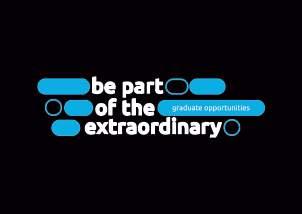



In a speech delivered to Institutes of Higher Learning (IHLs) in March 2023, Singapore’s Minister of Education,

Dr Aaron Tan Director, Learner Advisory & Career Centre Singapore Institute of Management
Mr Chan Chun Sing, called for IHLs to “move away from a meritocracy of grades, towards a meritocracy of skills” with the aim to broaden the definition and pathways of success. This will help Singapore move closer to becoming a nation where everyone’s potential is maximised, regardless of their starting station in life.
With this in mind, SIM’s Learner Advisory & Career Centre (LACC) was set up with the purpose of empowering learners throughout their life journey for sustainable employability. We have set our sights to be the go-to career partner for learners, connecting them to resources and empowering them to fulfil their career aspirations. We do this through a unique ‘High Tech-High Touch’ approach. Career Services, in any institution, is traditionally very resource intensive because we need to serve individuals – helping one ‘starfish’ at a time. Every learner that comes in to our office at Career Connect is unique and we cannot use a one-size-fits-all approach.
However, given the limited resources that we have, it would be difficult to scale our ‘High Touch’ services to meet the needs of our whole student population. That is where we leverage ‘High Tech’ to extend our services via our Career Sense app to provide a one-stop mobile platform where learners can have access to profiling, explore suitable career matches with the help of AI, book career coaching services, register for relevant workshops or micro-credentials, build a resume and get connected to employers – effectively this means that these services can be personalised to each individual any time anywhere, right in the palm of their hand. We hope that Career Sense will be a personal career navigator for all our learners.
All that said, we still do love meeting our learners face to face and we look forward to connecting with you in the year ahead. Meanwhile, we have specially curated content for you in our Career Guide 2024 which we think would be useful. You will find topics covering the services we offer at LACC, tips on how to market yourself and prepare yourself for your first job, and many, many more.
We hope you will enjoy this issue, and we wish you success in all your endeavours!
Your Career is Part of Your Life’s Adventure.
Start Here
Start with Clarity
What journey is ahead of me? What career adventures are out there for me?
Build your Competence
How do I get to where I want to go? What skills can I put into my Career Toolkit?
Grow your Confidence
Whose stories am I inspired by?
How can I be resilient and confident through ups and downs?
I’m an Explorer
Every adventure begins with a first step. Come talk to us about where to begin.
I’m an Adventurer
Discover your Career Values, Interests, Personality and Skills.
Time to level up your career readiness!
I’m a Ranger
Time to gain a competitive edge, fill those skill gaps, and ace the job-search process. Let us empower you, ranger!
Career Coaching
Quick and easy booking for career coaching and advice.
Personality Profiling
Discover your Career Interests Career Values
Personality & Skills
Winning Workshops
There is a workshop to boost your internship and career readiness to support every stage of your learning journey.
Connections to Employers
Secure valuable internships and job opportunities to kickstart your career.
In an era where job markets fluctuate and industries evolve, it is paramount to not just keep pace, but to lead the way in skill enhancement and career advancement.
As the economy picks up pace in recovering from the pandemic, there is a significant increase in job vacancies, with nearly half of these positions being newly created.
According to the statistics from the SIM Graduate Employment Survey (GES) 2022/2023, 85.9% of our fresh graduates were employed within six months of their final examinations in 2022, while 70.3% of fresh graduates secured full-time permanent employment.
In the current competitive employment market, educational certificates alone may not be sufficient to guarantee a job. Relevant skills and internship experience are crucial to set you apart from other applicants. As such, Career Connect is here to support you in developing these skills and allowing you to stand out among other candidates!
Read on to find out what Career Connect offers to our students to boost your employability!
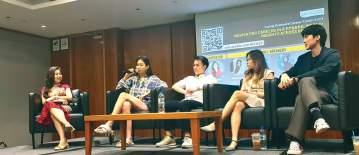
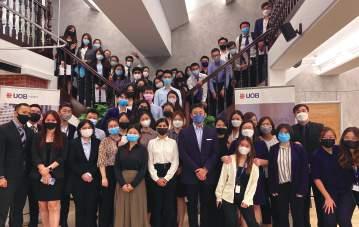

Career Connect is more than just a programme; it is a catalyst for transformation, offering a rich variety of services fostering career growth. From intensive career coaching and personal profiling to diverse workshops and company visits, our offerings are designed to prepare SIM students for the dynamic professional world.
Our seasoned career coaches, drawing from a wealth of diverse experiences, are here to offer tailored guidance to students through:
• Meticulous refinement of cover letters and resumes
• Strategic career planning and job search methodologies
• Insights into evolving industry trends and practices
• “Drop-in Career Advisory” for interactions with industry professionals for role-specific queries
Profiling tools, such as the Myers-Briggs Type Indicator (MBTI®), are also administered to allow for the self-discovery of students, which aids in their career planning.
Monthly ‘Hire Me Series’ workshops cover:
• Networking skills
• Resume writing and interview skills
• Personal branding
• Communication
• Career planning
Moreover, Career Connect champions skill development with specialised workshops in areas such as Digital Marketing, Tech Acceleration, Blockchain, Artificial Intelligence, and more, all offered at accessible rates.
The newly launched CareerSense is a one-stop app that provides SIM learners with resources and tools in their career journey, such as:
• Discover Career Values, Interests, Personality and Skills (VIPS)
• Discover and apply for roles that resonate with your VIPS profile
• Discover new skills via course recommendations
• Seek support via appointment booking with the career coaches
• Digital resource library with a wide range of career tips and selfhelp platforms available
• Craft your resume with AI Resume Builder
SIM Learners can download the app at http://qrco.de/CareerSense


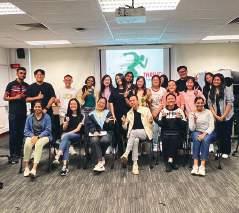
Career Connect hosts multiple Career & Internship Fairs throughout the year, such as DREAMS in February and IGNITE in October, offering students the opportunity to gather information about prospective companies.
SPARKS International Career & Internship Fairs are conducted to allow students to find out about opportunities available in the various international markets.
Students had the opportunity to network with companies across various industries, such as Changi Airport Group, GetGo, TikTok, DBS, Cognizant, PwC Singapore, L’Oréal, JP Morgan, and more!

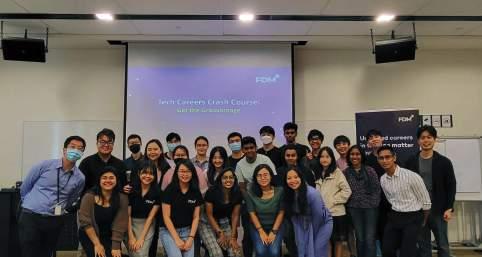
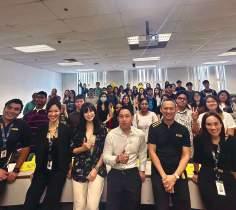
Company visits, such as the tour to Singapore’s Huawei AI Lab, provide invaluable exposure to industry-leading environments and technologies. These visits allow students to witness the practical application of advanced concepts and offers a glimpse into the innovative processes and cultures of prominent industry players.
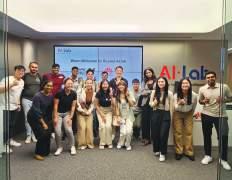


Entering the corporate world might seem daunting, but for SIM students, Project Protégé offers a different perspective. Project Protégé is SIM’s 4-month mentorship programme where participants learn from our alumni and industry mentors about achieving their career aspirations, and for the mentors to impart their experiences and knowledge. Participants can also expect to boost their career potential, discover unique strengths, and clarify career goals as they embark on this mentorship programme.

The employability of SIM graduates is a priority for SIM. That was the message clearly brought across to students during the SIM GE Career and Internship Fairs 2023.
Look out for our annual Career Fairs in February and October!
As the pandemic drove the surge in demand for tech jobs, many students advocated for more opportunities in the tech field. We transcended the confines of IT to embrace a wide array of sectors, from hospitality to finance to media and other industries. This endeavour marked a significant milestone as we proudly welcomed government statutory boards, including HDB and IRAS.
The DREAMS & IGNITE Career and Internship Fair emerged as the ultimate hub of opportunity, hosting over 50 companies such as GetGo, TikTok, TÜV SÜD, UOB, Cognizant, KPMG and more. Our attendees did not merely network; they actively crafted their career journeys by engaging with company representatives to understand the company’s values before applying for positions. Overall, career fairs serve as an eye-opening platform for students to network with their potential employers and forge professional connections even before stepping into the working world. IGNITE your Career DREAMS by joining the SIM Career Fairs!





GetGo is grateful for the opportunity to participate in the SIM IGNITE Career Fair 2023. The fair proceeded seamlessly, and we were impressed by the students’ professionalism and curiosity in understanding our company and the available roles. We encountered a substantial number of students who displayed genuine interest. After the event, numerous students connected with us on LinkedIn, resulting in arranged interviews for various internship positions. As a result, a number of these candidates were offered and accepted our internship roles and some even got a contract role with our company. It was an incredibly fulfilling outcome from the event!
TÜV SÜD is thrilled to join SIM IGNITE and connect with the students of SIM! This event is a fantastic chance for us to explain what we do as a company and show how we can help students find the right career path. We hope the students had a positive experience at our booth and we look forward to participating in more events organized by SIM.

• For Students: careerconnect@sim.edu.sg
• For Alumni: gealumni@sim.edu.sg
• For Employers: employerengage@sim.edu.sg
experiences that contribute to the learners’ development and enhance their employability. We aim to allow our learners to develop appropriate career-ready skills to best leverage career
sessions, resume reviews and mock interviews. Relevant career the working world.
We organise and execute surveys to obtain data on graduate employability, Alumni career progress, and employers’ feedback to monitor learner outcomes. We analyse data and present
monitor and gather job market intelligence to inform career guidance and advisory to learners and employers.
We focuses on building and deepening strategic partnerships with corporates/enterprises that enhance employability and employment of learners.
industry partners and our learners to interact. These are achieved through networking events, industry panel-sharing, career fairs, career/recruitment talks etc.
alumni, encouraging alumni to contribute and share their
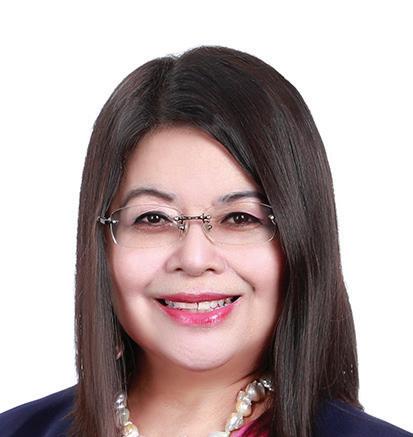









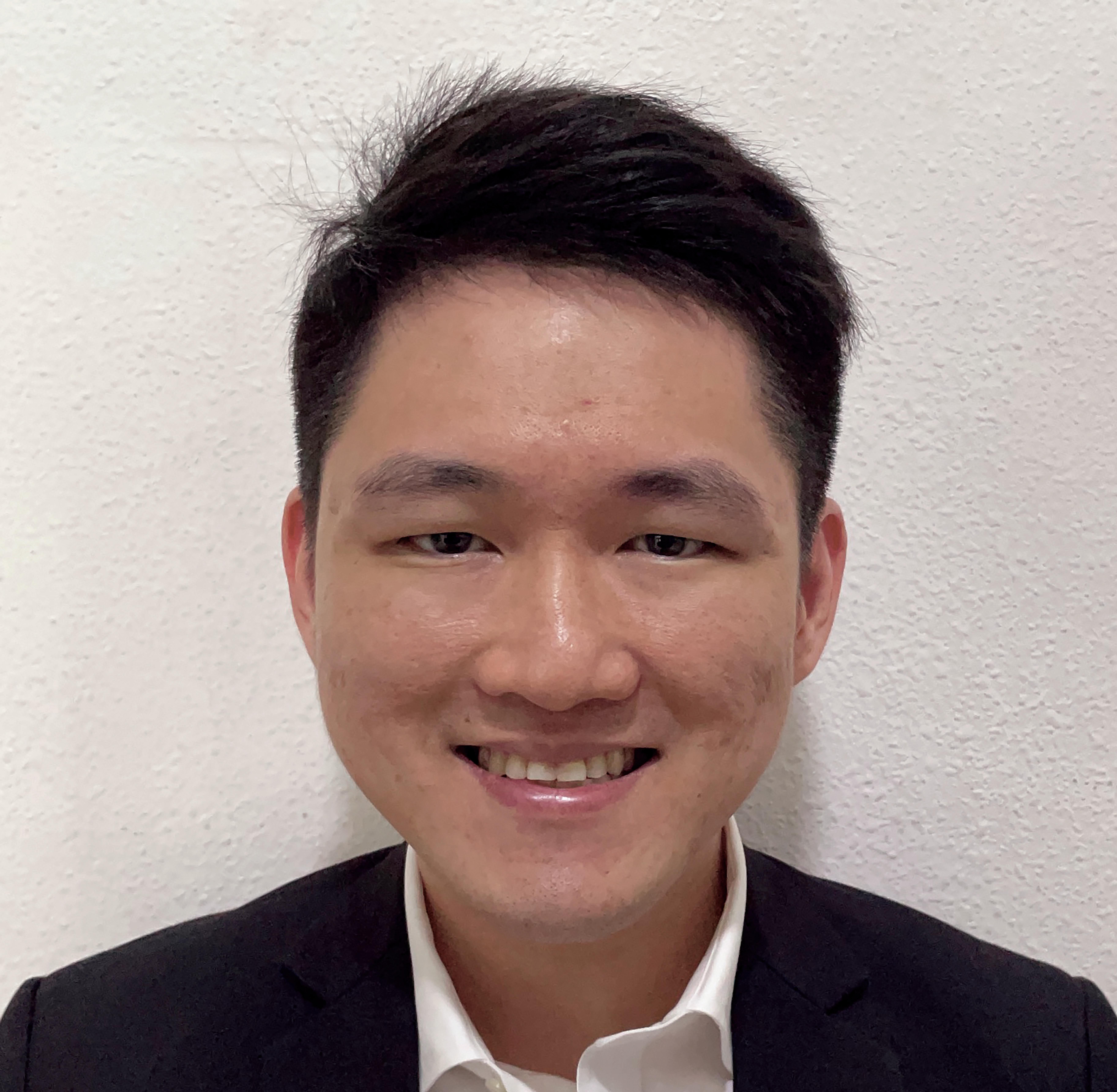



Astructured in-house internship offered by the SIM Learner Advisory & Career Centre, the Talent Development Programme (TDP) has seen more than 300 interns go through the programme since its launch in 2015.
In TDP, we aspire to empower our interns with skills and competencies vital for the corporate environment through the many projects and initiatives. With a structured development plan comprising of training programmes, networking opportunities and on-the-job training, we give them a head start and prepare them for the working world as well as expand their professional networks. TDP is also a platform for like-minded interns to have a collective experience to learn and grow together.
Essentially, we aspire to create an enriching journey for all interns to learn, discover and hone themselves for the dynamic working world ahead. With the TDP experience, our interns have successfully secured internships and full-time jobs in many prestigious organisations such as Google, J.P. Morgan, TikTok, Visa, NCS, Spotify, L’Oréal, IBM, GetGo, PwC and many more!
12/28/23, 1:04 PM

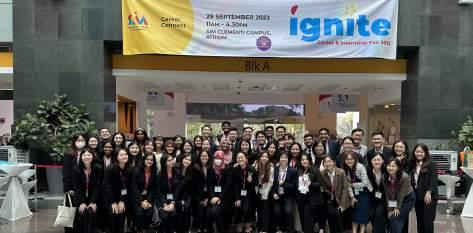

• Recruitment & selection and onboarding of new interns
• Plan career development and progression of interns
• Carry out marketing and outreach campaigns
• Create marketing collaterals for various career initiatives
• Management of Career Connect social media platforms

• Engage with employers for collaboration and partnerships for training programmes
• Conduct industry research
• Plan and organise career events

• Events/Project taskforces taking up roles such as Project IC or involved in the Marketing/ Operations/Logistics of the event
• Emcee for events and presentations to internal and external stakeholders
• Handling students’ enquiries on Career Connect initiatives


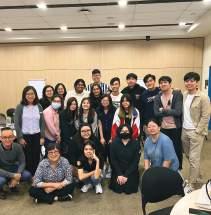

Technology Trainee at Visa
Previous Role in TDP: Youth Director,
Intake 20
Bachelor of Science in Economics
SIM-UOL Class of 2023
“My experience with TDP has been transformative as I have gained vital skills such as effective communication, programsolving, and the ability to be adaptable through this programme. The hands-on projects available gave me practical experience which has made me stand out in today’s job market.
Beyond that, I am grateful for the personal growth and selfawareness fostered, as well as the invaluable connections I have made through this programme. The programme has not only enhanced my resume but also gave me a solid foundation to confidently step into the professional realm.
I would highly recommend TDP as a safe and conducive space that prepares and develops you for the dynamic demands of the working world. My advice for future intakes would be to engage actively, seek and be open to feedback, and build your network throughout this programme as it will surely benefit you in the times to come.”

Account Coordinator at Kantar
Previous Role in TDP: Officer, Intake 19
Bachelor of Science in Business Management with Communications
SIM-UOB Class of 2022
“TDP is a good launchpad for anyone who wants to kickstart their career journey and have a sense of the corporate world. It gives a good opportunity to experience balancing school work and workload at a forgiving level due to the flexibility it offers. It also helped massively to have encouraging peers and mentors for guidance, and to connect with colleagues coming from multidisciplinary backgrounds.
There were multiple opportunities to take on different tasks, and I am glad to have the privilege to take the lead in creating one issue of the quarterly newsletters for Career Connect. It was really fun to interact and work as a team to create a product that I had envisioned, and it also helped to develop new skill sets such as project management and coordination within a smaller scale.
Through TDP, there would be new insights to oneself as you would figure out what you like or dislike about certain aspects. This also allows you to strengthen what you might discover to be good at, and to work on areas which require more work.”

Audit Associate at KPMG
Previous Role in TDP: Officer, Intake 21
Bachelor of Business (Accountancy)
SIM-RMIT Class of 2022
“I joined TDP because I wanted to learn more about business development internships before graduating. Through this experience, I got to meet many like-minded peers who were also career-oriented in finding their path. We were able to support each other through attending workshops together and swapping and sharing our career insights and plans. I enjoyed my time at TDP because of the wide range of events and activities that I was involved in, such as the career workshops, and IGNITE Career & Internship Fair. Fun fact: I secured my current role through TDP, as I got to network first-hand with the recruiters!
I acquired many transferable skills such as resourcefulness, time management, collaborative and communications skills during my time at TDP. The programme is great for SIM students with no internship experience because it lets you meet many like-minded students who want the most out of university and find the best job opportunities for yourself.”
Astudent-led body under SIM Learner Advisory & Career Centre, Career Champs aims to serve the career needs of international students in SIM.
Career Champs actively plans and organises events such as career fairs, career forums and workshops to equip international students with the relevant skills and facilitate their career transition, as well as serve as a platform for international students to contribute to the student community.
Marketing and Communication
• Design EDMs for events and recruitment of Taskforce and executive committees
• Publicise events and information on various social media platforms
• Create a presentation deck for the onboarding session
Events and Logistics
• Initiate and propose new events conducted by Career Champs
• Plan and prepare event overview and rundown
• Acquire events logistics
Talent Curation
• Recruit new talented executive committees and task force
• Plan and execute onboarding session
• Compile meeting minutes report.
• Communicate and coordinate with other stakeholders within the SIM community.
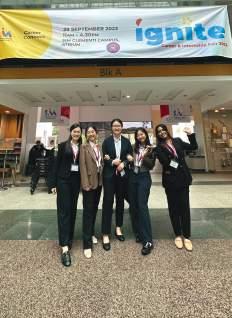



Bachelor of Business (International Business), SIM-RMIT Class of 2022
Executive, Human Resources at Kingsmen Exhibits Pte. Ltd.
Previous Role in Career Champs: Director of Events and Logistics
“As an Exco, the experience has given me a precious opportunity to shape myself to be a responsible and diligent leader. Not only so, I have also learnt the importance of managing human resources as team members are valuable assets towards the community that keep us moving forward.
Notably, during the period of organising the International Virtual Career Fair (Malaysia and Indonesia Chapter) back in 2021, I was fortunate to have also gained comprehensive first-hand experience starting from Business Development, Event Planning, Event Execution, and Event Hosting.
Such opportunities and experiences acquired during my time with SIM Career Champs have benefited me in seamlessly adapting to the workforce upon graduating from SIM in 2022, which has helped enabled me to be a competent employee for my employer in times of intensive workforce competition.”

Bachelor of Science in Data Science & Business Analytics, SIM-UOL Class of 2023
Sales Coordinator at Avi-Tech Holdings
Limited
Previous Role in Career Champs: Director of Events and Logistics
“I joined Career-Champs with the hope of gaining experience and creating a positive impact on campus during the pandemic. Little did I know that it would make a huge impact on my university life.
Although it was still online when I first joined, the atmosphere was vibrant, and filled with enthusiastic individuals who want to help each other in preparing for our future careers. They have been a huge help in teaching me the importance of community, leadership, and the impact that dedicated individuals can have on shaping the student experience.
The opportunity to work with people from diverse cultures was one of the most rewarding aspects of being a part of Career-Champs. To anyone considering joining Career-Champs, I wholeheartedly encourage you to take the leap!”
"Mentoring
is a brain to pick, an ear to listen, and a push in the right direction.” – John Crosby
Project Protégé is a four-month mentorship programme aimed at providing SIM students an opportunity to learn from SIM Alumni and industry professionals from diverse backgrounds.
Mentees are given a platform from which they can enhance their personal development and be one step closer to achieving their career aspirations while Mentors in the programme would also have the chance to share their insights into the industry, provide career advice and job search strategies, as well as give back to the SIM student community.
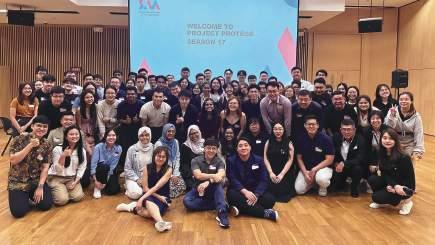

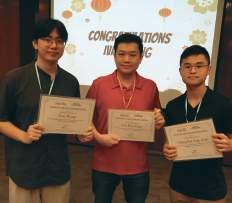
“During the course of Project Protégé, I was matched with some very talented and passionate folks, and it was fulfilling to work with them on shaping their interview and technical skills. It was also extremely rewarding to see them grow during the few months and I even gained a great colleague from offering an internship opportunity. Being a mentor in Project Protégé is an opportunity to guide the leaders of tomorrow in the IT sector. It is more than just volunteering; it is about shaping the future of our industry and giving back to potential talent at school. Your expertise and experience could make all the difference to someone who might be working with you in the future.”
Tan Han Yang (centre), Quality Engineer, Government Digital Services at GovTech Singapore
“My mentor, Han Yang, patiently cleared my doubts about the industry and gave me practical advice. The help he provided me allowed me to focus my efforts greatly on the areas that matter, rather than casting a wide net in hopes of securing a job after graduation. Through this programme, I also managed to get an internship with GovTech and I have been learning something new every day.”
Kirk Ang (right), SIM-UOW Bachelor of Computer Science, Digital Systems Security

“As a mentor, I feel that it is not a one-way traffic where only I share experiences with the mentees, but a co-sharing environment where we learn from each other. Life is a continuous learning process and SIM Project Protégé is a platform where you can grow professionally and personally. When we light the way for others, we light the way for ourselves too. We will gain new perspectives and see a bigger world than just ourselves.”
Marcus Moo (centre), Associate - Projects (Senior Software Engineer) at Cognizant
“As an international student, I did not have much information on the Singapore job market and needed guidance in terms of career and job market. The programme has allowed me to equip myself with the necessary skills and knowledge to make myself competitive in the job market and helped me prepare for job interviews. Furthermore, I was able to foster good relationship with my mentor.”
Lee Yun Suh (right), SIM-UOL Bachelor of Science in Data Science and Business Analytics
Designed to provide provide an all-rounded experience, the 360 Degree Development Programme (360°) is open to selected final-year student leaders of clubs and societies, deemed to be the best representation of SIM.
The programme aims to enhance their development to become sharp professionals and employees of choice. Besides achieving academic excellence, selected student leaders also demonstrate the qualities of an all-rounder with leadership abilities and exemplary participation in their respective out-of-classroom activities.
Participants undergo a series of development training programmes and workshops, while opportunities are also provided to meet employers through networking sessions and professionals through the mentorship programme. In addition, a career coach is assigned to provide guidance on career preparation techniques and career planning.
Participants of this programme have benefited greatly thus far and many are highly sought after by prospective employers.

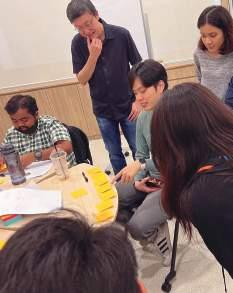

Bachelor of Business (Logistics & Supply Chain Management), SIM-RMIT
• General Secretary at Eco-SIM
• Subcommittee Member – Outgoing Global Exchange at AIESEC
• Business Development Officer at Talent Development Programme
Current role: Supply Chain Executive at Motul Asia Pacific
1. My role and involvement in my CCA/ club/ society
During my time at SIM, I was active in the Talent Development Programme (TDP) as a Business Development Officer. In my role, I connected with various companies to explore collaboration opportunities for the benefit of our students. This included outreach, identifying internship openings, and building relationships with stakeholders. Bridging the gap between students and potential employers, I created internship opportunities and skill development for my peers.
2. How has the programme benefited and better equipped me for the working world?
The 360 Degree Development Programme has played a crucial role in preparing me for the workforce. Through this programme, I acquired essential skills and insights.
Participating in mental well-being workshops improved my stress management. Understanding my strengths and weaknesses helped me make more informed career decisions, aligning my path with my aspirations.
Furthermore, the programme honed my interview-handling skills, proving invaluable in job interviews, and leading to successful job offers. In summary, the 360 Degree Development Programme has been the foundation of my career readiness, providing practical skills and knowledge that have significantly impacted my professional journey.
3. Tips to be an all-rounded student leader
When you encounter a challenge, take the initiative to find solutions. Your actions can have a positive impact on people’s lives and may benefit your future career. Actively engaging in both internal and external events is essential for expanding your professional network. These steps are crucial for your personal and professional growth.

Bachelor of Arts in Sports Studies and Marketing, SIM-UOS
• President at SIM Fencing
• Treasurer at UOS Student Council
• Vice President/Marketing at Board Games Society
Current role: Department Manager at Decathlon Singapore
1. My role and involvement in my CCA/ club/ society I joined the Board Games Society as a subcommittee member in year one. During the last two years, I was part of the EXCO as General Secretary and was then elected to serve as the club’s Vice President. Being a part of this club helped me meet students from different courses and countries. I learnt how to manage people and be more understanding. I also organised events and did social media marketing for the club. Being a part of such an active club helped me learn to balance my time and have fun during university outside class.
2. How has the programme benefited and better equipped me for the working world?
This programme was a unique experience. It is rare for students to have the opportunity to meet people from the industry they are interested in joining. I was able to not only meet mentors monthly but also have the chance to share my work with them. The feedback and recommendations received were helpful to me. They also shared insights which made me feel more prepared when I stepped into the working world right after graduating. My other CCAs also allowed me to experience working in a team and leading one. I feel better prepared when I encounter these situations at work.
3. Tips to be an all-rounded student leader
I recommend students explore outside the classroom during their time in university. Finding new things you might be interested in or want to learn is easy.
Launched in 2017, the SIM EDGE Award is a prestigious award developed in partnership with employers to recognise your cumulative achievements in your learning journey.
Through your journey at SIM, we aim to provide a conducive and supportive environment by creating many opportunities to foster

• Core attributes of resourcefulness, resilience and responsibility;
• Deep professional competencies in your chosen disciplines and equip you with the ability to continue learning throughout your lives; and
• Corporate-readiness by being confident leaders in your own right, being good team-players, taking the initiative to solve problems, and being able to communicate effectively across all levels.
While working towards the Award, you will get the opportunity to demonstrate your learning experiences and skills to potential employers via:
1. University Involvement
2. Community Engagement
3. Work/Voluntary Experience
4. Global Awareness
5. Additional Skills
While this opportunity is open only to final-year undergraduate students, you should start building your portfolio from Day 1 on campus in order to consolidate your best experiences.
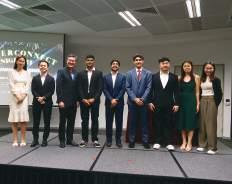
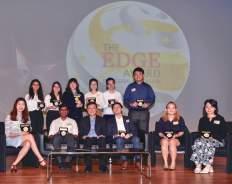
Dea was awarded the Student Ambassador Top Contributor Award of 2022. On top of that, she also held other leadership roles, such as the Director of Events at Peer Mentors, Director of Partnerships and Engagement at Career Champs, Commerce, and Ticketing Committee at InSIM. Other activities she has participated in include being the Business Development Associate at AIESEC and sub-committee at Data Analytics Club. Dea is currently a Business Intelligence at Stockbit & Bibit.
1. Your motivation in applying for the Award

Receiving the EDGE Award means achieving another awesome milestone in my life, so that when I look back to this moment in the future, I will be proud of myself for what I have achieved! Knowing the EDGE Award has existed since my first year, I decided to be active in various student activities so that I could fulfil the criteria of an EDGE Award recipient. For example, I actively contributed to Student Ambassador, Peer Mentors, and Career Champs.
2. One quality that you feel made you stand out from the rest of the applicants
I was able to view and present my ideas honestly and holistically. For instance, not only do I showcase what have I done well in my portfolio, but also the lessons I have gained from my experiences. Additionally, for the interview stage, I did thorough research on the panellists’ backgrounds. They were very impressed and I guess it was one of my several actions that made me stand out.
3. How do you think this Award is able to give you a competitive edge?
I believe putting the EDGE Award in my resume and presenting it in the right way to the recruiters would give me a competitive edge among others. It is simply because the Award is awarded based on stringent requirements and a selection process. Nevertheless, an award is just an award if we do not utilise it well. So, the Award must come together with how we present ourselves
4. My Advice
Make sure to prepare the administrative side well! Check and re-check everything before you submit your application. Prepare well for the interview, such as doing some research on the panellists’ backgrounds, and being confident as well as frank about what you have showcased in your portfolio. At the end of the day, the Award serves as a recognition for your university journey, but do not let it define who you are. Good luck!

Akshaya was the President of Tamil Youth Society. Other leadership roles include the Student Ambassador as well as the Events and Operations Director of the now-defunct Public Sector Career Chapter. Akshaya is currently a Special Needs Educator at Cerebral Palsy Alliance Singapore School.
1. Your motivation in applying for the Award
As a student of SIM, I passionately pursued holistic development that extends beyond academics. Actively participating in diverse clubs, I aimed to cultivate leadership skills and make the most of available resources. This Award symbolises my dedication to comprehensive growth and recognises the efforts I invested in building a well-rounded profile during my time at SIM.
2. One quality that you feel made you stand out from the rest of the applicants
What truly distinguishes me is my unconventional career path—a commitment to working with children with special needs in the field of special education. This distinctive passion not only sets me apart from fellow applicants but also underscores my genuine dedication to making a positive impact in a specialised and often overlooked sector.
3. How do you think this award is able to give you a competitive edge?
I view this award as a testament to my possession of essential leadership skills—resourcefulness, problem-solving, and effective communication—all of which are important in the field of special education. This accolade serves as a compelling addition to my professional journey, providing me a noteworthy competitive advantage and opening doors to more opportunities in my chosen career path.
4. My Advice
For aspiring applicants, I encourage a focus on holistic development. Strike a balance between academic pursuits and extracurricular engagement, and embrace new opportunities with enthusiasm. Give your 100% in all endeavours, cherish the diverse experiences the university offers, and remember: never underestimate your capabilities. University is not just a place for academic learning but also for exploration, growth, and realising your full potential.
Since its inception in 2011, SIM Alumni Relations has been committed to expanding and deepening connections with alumni so as to cultivate mentorship, provide internships, and facilitate career support as well as employment opportunities for students and alumni alike.
SIM alumni may enjoy this membership as a complimentary service upon graduation, allowing our alumni to access SIM services such as career support initiatives and workshops, networking events, campus facilities or partake in reunions and gatherings at our local events (such as Homecoming, CEO Dialogue) and regionally through Overseas Alumni Chapters China, Indonesia, Malaysia and Vietnam.
All new and existing SIM alumni can be conveniently onboarded to our newly launched, one-stop community portal to connect with fellow alumni, access learner programmes, participate in alumni activities, and receive the latest updates on SIM.
Visit www.sim.edu.sg/alumni or contact us at gealumni@sim.edu.sg today!


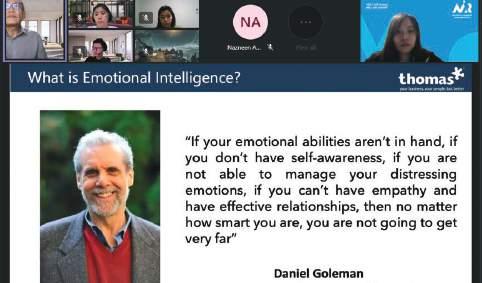
With a plethora of industries at your fingertips, explore your available opportunities.
To make the most of your accountancy and financial qualifications, a wide range of work opportunities awaits you in various organisations. These include the “Big Four” firms, smaller accountancy practices, corporations, and the public sector. This industry provides insights into how businesses and organisations operate.
As businesses integrate technology, such as cloud accounting software and applications, to enhance efficiency in financial management, accounting professionals are encouraged to upskill in data analysis and digital accounting.
Apart from the traditional accounting and auditing services, firms may also offer consulting, assurance management, risk assessment, corporate recovery, tax services, and forensic accounting. Due to the diverse range of services, employers seek candidates with strong analytical skills, attention to detail, and the ability to present financial data clearly.
Graduate accountants typically start as trainees in firms and are required to pursue professional qualifications to further their careers. These include the mandatory Singapore Qualification Programme (Singapore QP) in order to practise as a chartered accountant in Singapore.
Job areas include
• Assurance management
• Auditing
• Financial consulting
• Risk assessment
• Tax consulting
Skills required
• Analytical skills
• Commercial awareness
• Decision-making skills
• Good communication skills
• Numerical skills
• Strategic planning skills
• Get licensed, stay on top of your accounting skills and network extensively within the professional circle.
• A majority of employers use online application forms and conduct competency-based interviews.
he arts and design industry is becoming an increasingly popular choice among graduates, despite the perceived career insecurity it may entail. It encompasses a wide range of disciplines, from visual art to performing arts. The versatility of the industry also allows graduates to apply their skills in various different sectors, including education and healthcare. Career options include becoming a teacher, art therapist or working in fields such as fashion, advertising, and marketing.
A less publicised but equally important career option for prospective hires is arts management. This role is especially suited for those who prefer a technical and conventional job scope.
Job areas include
• Arts management
• Community arts facilitation
• Design
• Light or Sound engineering
• Performing arts
• Visual arts
• Writing Skills required
• Business acumen
• Creativity
• Independence
• Persistence
• Problem-solving ability
• Willingness to work in teams
• Networking is essential, as opportunities in this sector mainly stem from word-of-mouth referrals. Self-employment through freelancing is also worth considering, especially if you want to leverage support and resources from organisations such as the National Arts Council.
• Those aiming for commercial success should cultivate their creativity and professionalism. Aspiring artists must possess a strong personal brand and the ability to market themselves effectively to interested parties or sponsors. More entrepreneurial individuals may even consider launching their own start-up to monetise their work.
These three sectors are interconnected to ensure efficiency within the logistics industry. Supply chains are responsible for the safe and efficient movement of goods, materials and services, while transport planning and management oversee the designing of systems that move people and cargo through land, air and sea.
Singapore’s Industry Transport Map (ITM) for the logistics sector aims to enhance productivity and innovation through the use of technologies such as Artificial Intelligence (AI) and collaborative robotics. Furthermore, the emergence of new delivery capabilities, such as autonomous vehicles and 3D printing, is likely to impact logistics and the design of supply chains.
Job areas include
• Analytics
• Inventory management
• Logistics engineering
• Purchasing management
• Supply-chain management
• Various support functions
Skills required
• Analytical skills
• Good negotiation skills
• Interpersonal skills
• Numerical skills
• Problem-solving skills
• Project management skills
• Strategic thinking
• Willingness to be a team player
• Positions are open to applicants from all degree backgrounds for supply chain and logistics roles. However, some employers may prefer candidates with business or supply chain-related degrees. For positions in transport planning, applicants might be required to possess related qualifications.
• Application procedures usually include online applications and a round of psychometric tests. It may also entail a video interview and a day at an assessment centre.
The banking and finance industry encompasses various specialisations, including asset management, hedge funds, private banking and equity, risk management, venture capital, and investment.
Given Singapore’s status as a regional and global hub for investment and finance, the industry is highly competitive. To enhance your job search, consider securing internships during your university days to acquire relevant work experience and expand your knowledge and professional networks.
Employers value candidates who excel in problem-solving and possess excellent organisational and team management skills. Make sure to stay updated on financial business news regularly to keep yourself informed about the industry. In some cases, employers may prefer graduates with numerical and business degrees, though it is not always a mandatory requirement.
Job areas include
• Business or commercial banking
• Consumer or personal banking
• Corporate finance
• Foreign exchange trading
• Investment banking
• Marketing and communication
• Operations and technology
• Private banking and private equity
• Treasury
• Wealth management
Job hunting tips
Skills required
• Ability to work under pressure
• Decision-making skills
• Excellent communication skills
• Numerical and analytical skills
• Problem-solving ability
• Resilience
• Strong understanding of financial markets
• Secure an internship and ace it.
• Networking is crucial in banking and investment.
• Research potential employers and send in your applications early.
• Graduate recruitment programmes typically involve multi-stage processes, including online applications, psychometric testing, assessment centres, and interviews. Companies without structured graduate programmes generally rely on interviews for their selection.
Graduates seeking careers in this sector can choose to focus on human resources (HR), integrated solutions, management, or strategy advisory work. They may also opt to specialise in a particular field, such as information technology (IT) or finance. Finance consulting is a popular choice for graduates entering this industry.
Many employers provide graduate specialist programmes where you will be assigned to work in teams with a mentor, be part of projects, and acquire practical on-the-job skills.
Additional job perks you can look forward to include the opportunity to explore a diverse range of job roles within the industry, as well as the opportunity to travel. However, do take note that the consulting industry can be a high-pressure one.
As a consultant, you will need to interact with clients, so having strong communication skills is essential. Effective organisational and problem-solving abilities, as well as being a team player, are also crucial skills.
Depending on the role, you might also require professional certifications and licences to practise in certain fields. Therefore, be sure to do your research and consult the relevant parties to help plan your career path.
Job areas include
• Finance consulting
• Human resources
• Integrated solutions
• Management
• Strategy advisory
Skills required
• Commercial awareness
• Excellent interpersonal and communication skills
• Numerical and analytical skills
• Persuasion and negotiation skills
• Problem-solving ability
• Self-assurance
• Willingness to be a team player
Otherwise known as electronic or internet commerce, it involves the buying and selling of products and services to consumers and businesses. The transfer of money and data to complete transactions falls into this category as well.
E-commerce platforms experienced substantial growth during the pandemic and have yet to return to pre-pandemic trends. Instead, they are expected to sustain their growth into 2024. Overall, there are three main types of e-commerce: business-to-business (B2B), business-to-consumer (B2C) and consumer-to-consumer (C2C).
Job areas include
• Business analysis
• Customer service
• Digital analytics
• Project management
• SEO content creation
• Web development
Skills required
• Adaptability
• Commercial awareness
• Commitment
• Loyalty
• Online merchandising
• Self-motivation
• Understanding of online consumers
• User experience
• Willingness to learn
• Stay abreast of the latest developments in this sector through industry events and reading materials.
• Competition is stiff within the industry, hence, landing an internship is the key to getting your foot through the door.
Job hunting tips
• Consulting is a fast-paced and constantly evolving corporate career that requires driven personalities and self-starters with nimble minds.
• Practise case studies prior to applying to ensure you are well-prepared for your interview. These often determine the success of applications.
• Stay updated with business pages for commercial awareness. Look out for successful or innovative advertising and branding campaigns, and analyse them.
Acareer in the education sector is highly rewarding. Despite the long hours and the numerous responsibilities, you find satisfaction in preparing future generations to achieve their aspirations.
Major employers in this sector include the Ministry of Education (MOE), public and private institutions, as well as tuition centres. Besides teaching, you might consider roles in career counselling, educational psychology, or corporate and administrative roles.
Those looking for a career in early childhood education should obtain a Certificate in Early Childhood Care and Education (ECCE) or a Diploma in Early Childhood Care and Education. MOE also offers several programmes where you can study to become a primary or secondary school teacher. Those with an undergraduate degree should look into the Postgraduate Diploma in Education (PGDE) and complete a mandatory stint as a contract teacher to assess your passion and suitability for education.
Graduates interested in teaching university-level classes should have a minimum of a bachelor’s degree in a related field as well as a track record in teaching.
Job areas include
• Career counselling
• Early childhood education
• Education assessment
• Education psychology
• Primary, secondary and tertiary education
• Teaching English as a Foreign Language (TEFL)
Skills required
• A strong belief in education
• Effective interpersonal and communication skills
• Organisational and management skills
• Passion
• Gain some teaching experience as a tutor, volunteer teacher, or substitute teacher.
• Experience is not necessary but highly valued as it exposes you to different student behaviours and helps you cultivate your own teaching style in the classroom.
• MOE typically allocates teaching subjects based on the needs of the school and the teacher’s academic qualifications.
• Private education providers tend to use more specialised, low-key recruitment efforts.
• Approach campus career centres or be proactive throughout your hunt for openings.
ast-Moving Consumer Goods, or FMCG, is a sector that includes products with a quick shelf turnover. These products range from toiletries and cosmetics to processed food and plastic goods, among others.
Many individuals are drawn to careers in this sector due to its potential for continuous growth in the consumer market, indicating ample opportunities for advancement. FMCG companies seek graduates from various disciplines due to the diversity of roles available.
Job areas include
• Food technology (developing and improving existing food products)
• Human resources
• Marketing
• Research and development
• Sales
• Supply chain management
Skills required
• Commercial awareness
• Communication skills
• Good interpersonal skills
• Problem-solving ability
• Willingness to be a team player
• Upon identifying the companies of interest, conduct research on their individual brands.
• Pay special attention to advertising campaigns and make sure you have a good understanding of all the company’s products before applying.
Fintech is a sector focused on providing innovative, modernised and seamless financial service solutions to consumers and businesses. Its goal is to revolutionise traditional financial products, such as swapping out cheques for electronic transfers and online banking.
Singapore is renowned as one of the world’s leading financial hubs with a robust technology infrastructure. These factors have propelled fintech growth, making it one of the fastest-growing industries. While fintech initially began in trade financing, it has expanded into fintech business management, wealth management, investment management, and robo-advisory.
Some in-demand fintech roles include jobs in IT security and vulnerability management, UX and UI designers, digital project managers, and data analytics.
For graduates seeking roles in the fintech industry, it is advisable to engage with collaborative platforms where you can learn about trending technologies, or possess strong logical and critical thinking abilities. Adaptability is also crucial to effectively navigate the rapid changes in the industry.
Job areas include
• Blockchain development
• Cybersecurity
• Data scientist
• Programming
• Quantitative analysis
• UX/UI Designers
• Vulnerability management
• A legal background (for roles in cybersecurity)
• Adaptability
• Awareness of current trending technologies and financial services
• Detail-oriented
• Strong logical and critical thinking abilities
• Strong passion for technology and financial services
ingapore boasts a robust tourism and hospitality industry, with visitor arrivals expected to reach approximately 12 to 14 million by the end of 2023, according to the Singapore Tourism Board (STB). This sector has ample career opportunities for graduates, ranging from hotel management to leisure and events management, as well as supporting roles in IT, marketing, and HR.
The industry plays a pivotal role in Singapore’s economy, contributing about 4% of Singapore’s annual GDP. It also encompasses a wide range of businesses, including hotels, restaurants, travel agencies, attractions and transportation services. While it serves as a holiday destination for many, the hospitality and tourism sector also plays a crucial role in attracting foreign investment, talent, and business opportunities, leading to a multiplier effect that increases the demand for goods and services across other industries.
Jobseekers can anticipate over 4,000 job openings, including positions in sustainability and urban wellness. As of STB’s 2022 estimates, the sector employs approximately 65,000 people.
Although shift work and irregular hours during seasonal peak periods are common, the industry’s culture is dynamic and forward-thinking. Graduates can consider scholarship programmes or internships with STB before entering the workforce.
Job areas include
• Food and beverage (F&B) industry
• Hotels and resorts
• Leisure and recreation management
• MICE (Meetings, Incentives, Conventions, and Exhibitions)
• Attention to detail
• Client-facing skills
• Excellent communication and interpersonal skills
• Knowledge of trends and events in the industry
• Leadership skills
Job hunting tips
• Constantly re-skill and stay on top of trending technologies.
• Have a strong technical portfolio.
• Spa and wellness management
• Tourism and attractions
• Organisational skills
• Patience
• Problem-solving ability
• Service-oriented
• Willingness to be a team player
Job hunting tips
• Hone your soft skills, such as customer service, social skills, time-management skills, as these are crucial for the industry.
• Utilise your multilingual skills to your advantage.
• Be knowledgeable about major, recurring events, as well as important conferences.
No matter the industry, human resources (HR) is an integral department consisting of managers, specialists, and coordinators who manage the concerns and needs of employees. They are also responsible for the recruiting, onboarding of new hires, and managing the orientation process. Additionally, they come up with resolutions in the case of any problems that may arise between employees and manage diversity, equity, and inclusion (DEI) efforts. Specialists within a HR department are often found looking after employees’ payroll, benefits or training.
As digital adoption continues to sweep through the business landscape, HR is also tasked to manage the implementation and integration of technology in order to improve training, staffing, and communication.
Job areas include
• Administration and management
• Employee relations management
• Human resource manager
• Human resources information system (HRIS) software specialisation
• Recruitment consultancy and specialisation
• Training coordination
Skills required
• Adaptability
• Attention to detail
• Leadership skills
• Solid communication and interpersonal skills
• Sourcing and recruitment analytics
• Technical ability
• Time management
• An undergraduate degree is a prerequisite for a HR position. Some companies may consider applicants without a degree if they possess significant relevant work experience. Having a degree in psychology or business administration might give you an advantage.
• Market knowledge, whether in growth industries or identifying talent gaps, is key.
• Enhance your skills by obtaining various certifications to add value to your work.
nvestment banking is a specialised division in banks that focuses on generating financial capital for a diverse range of clients, including public and private companies, institutions, and governments. It operates at three levels: front office (financing, sales, trading, research), middle office (risk management, strategy, compliance), and back office (operations and technology).
Investment management involves safeguarding and managing the money of their clients. This includes various subindustries such as asset management, hedge funds, private equity and wealth management. The list of clients could range from sovereign wealth funds and pension funds to insurance companies, financial advisors, charities, as well as individual investors.
These sectors are considered highly competitive. Although this industry welcomes degrees from all disciplines, strong academic credentials and degrees in mathematics and physics are well-regarded. Candidates should also demonstrate their numerical capabilities and financial literacy.
Job areas include
• Accounting
• Client relationship or client services management
• Fund administration
• Portfolio management
• Research analytics
• Support functions
• Adaptability
• Analytical thinking
• Commercial awareness
• Good interpersonal skills
• Highly motivated
• Numeracy skills
• Resilience and tenacity
• Understanding of international market trends
• Investment banks typically conduct on-campus recruitment once or twice a year, so keep your eyes peeled!
• Demonstrate your familiarity with investment information and showcase your knowledge of industry news and current trends.
• Dabble in the stock market or keep tabs on it.
• Internships are vital to get into investment banking, so develop your knowledge of the financial industry early.
Being a global IT hub, many technology firms have established their offices in Singapore. The IT and technology industry in Singapore includes infocommunication, software and hardware sectors, playing a vital role in the country’s transition to becoming a Smart Nation. However, aside from the tech sector, IT professionals are also needed in non-IT industries such as finance, health, media, and legal services. Some of the more popular roles graduates can consider include technology consulting, systems analysis, network engineering, software testing, and technical sales.
Given the universal need for IT and technology, graduates can anticipate a wide range of opportunities. Financial and banking institutions require the maintenance of IT infrastructures, insurance companies have embraced the digital transformation, and the defence and aerospace sectors are rapidly expanding, necessitating passionate IT professionals to safeguard Singapore’s defences.
This is a sector with continuous innovation and significant growth prospects. Prospective candidates can explore graduate programmes if they are interested in applying to major organisations. However, smaller employers often prefer to hire directly.
Job areas include
• Cloud innovation
• Data analytics
• E-commerce
• Infrastructure
• Information security
• Project management
• Systems administration
• Web and app developer
hunting tips
Skills required
• Adaptability
• Commercial awareness
• Organisational skills
• Problem-solving ability
• Technical proficiency
• Time management
This sector is particularly vital in the FMCG and retail industries, where the prompt movement of goods and services to consumers is crucial. Potential hires may find themselves immersed in cutting-edge technology such as the Internet of Things (IoT), robotics, and artificial intelligence. You will be expected to use these tools to manage inventory, distribution of goods and services, as well as cost management, with recommendations required for enhancing productivity and efficiency.
Typically, the logistics and supply chain industry welcomes candidates from various disciplines. Major organisations may offer management training schemes to prepare graduate hires for the job. These schemes often come in the form of job rotations, allowing potential hires to gain a better understanding of the processes that impact an organisation.
Job areas include
• Customs management
• Demand planning analyst
• Distribution centre supervisor
• E-commerce
• Freight or Global forwarding
• Logistics
• Operations management
• Procurement manager
• Supply chain management and service
• Supply optimisation
• Transport management
• Choose a specialisation in which you can hone relevant technical skills and gain professional experience. This niche could set you apart from other candidates.
• Apply for internship positions in technology companies to develop your technical skills.
• Obtain industry certifications that can add value to your undergraduate degree.
• Build and develop your technical portfolio.
Skills required
• Ability to communicate effectively across all levels
• Budgeting and accounting experience
• Demonstrate leadership qualities
• Detail-oriented
• Good at problem-solving
• In-depth understanding of the market
• Project management
• Some mathematical and statistical knowledge
• Although some employers may favour business or supply chain-related degrees, positions are open to applicants from various disciplines.
• Graduates who thrive in high-pressure and fast-paced environments will be suited to this sector.
• Ideal industry for those who are meticulous with numbers and have strong analytical and problemsolving skills.
• Have some knowledge of the logistics world to stay in the loop with the latest technologies and logisticsrelated news.
This dynamic industry is pertinent to all businesses. Graduates can discover their niche in print, online, and broadcast, or explore areas such as brand management, public relations, database management, copywriting, or market research.
Proficiency in traditional facets of this industry, such as journalism, events, and marketing, is highly valued. Graduates also need to stay attuned to social media and adapt to evolving communication trends.
Despite the breadth of the industry, vacancies are limited and competitive. While large organisations run graduate schemes, most graduate applicants will likely have to apply directly for entry-level jobs.
Job areas include
• Advertising
• Copywriting
• Digital or web marketing
• Events management
• Film or stage production
• Graphic design
• Journalism
• Media purchasing
• Public relations (PR)
• Social media management
• Creativity
• Data management
• Strong analytical skills
• Tenacity and resourcefulness
• Willingness to work in teams
• A comprehensive portfolio will greatly increase your chances of a successful application.
• Networking is crucial for this industry, as it will help you get one foot in the door.
• Apply for part-time or internship roles as a student to build your connections as well as your portfolio.
raduates with a desire to contribute to the community and make a difference can discover their calling in non-governmental and nonprofit organisations. Such organisations prioritise social, humanitarian, and environmental issues. Depending on the area of expertise and the role you apply for, there may be a need for specialist knowledge and skills.
Most employees start an NGO career through volunteering or an internship programme. Additionally, although degrees are relatively well-received, specialist NGO jobs require a master’s degree in a relevant subject. This will help with your career advancement in the long run. Regardless, employers will look out for one crucial trait: passion and commitment to the cause.
This industry offers invaluable experiences and challenges, which can lead to rapid growth for recent graduates. However, salaried positions tend to be on the lower end of the scale when compared to the corporate sector.
Job areas include
• Community relations
• Environmental
• Services (children, youth, family, elderly, special needs, and healthcare)
• Social work
• Volunteer development
• Communication skills
• Organisation skills
• Problem-solving ability
• Technical skills (depending on the role)
• Enrol in relevant online courses or training to understand how NGOs work.
• Identify organisations of interest and reach out to them even if they do not appear to be hiring.
Involvement in the property and real estate market entails a wide range of responsibilities, from sales and lettings to property management and consultancy services. Graduates will work with clients who are interested in investing in residential, commercial, and industrial properties, as well as land for development.
Candidates with degrees in business, economics, law, construction, and engineering are particularly valued in the industry. Nevertheless, opportunities exist for graduates from various academic backgrounds. However, specific roles, such as property surveying, will require qualifications as mandated by the Singapore government.
Aspiring property surveyors and real estate agents must be registered with the Land Surveyors Board (LSB) and the Council for Estate Agencies (CEA) respectively. To become a real estate agent, you will need to attain a Level 5 and above in the Workplace Literacy and Numeracy (WPLN) assessment.
Additionally, you also need to enrol in the Real Estate Salesperson (RES) Course, which costs approximately $800, and take two exams that cost about $420 prior to registering as a licensed agent. Registration as a licensed property agent can go up to about $3,000.
Job areas include
• Auctioneering
• Sales, lettings and acquisitions
• Property management
• Valuation
Skills required
• Detail-oriented
• Discipline
• Commercial awareness
• Communication skills
• Good interpersonal skills
• Problem-solving ability
• Large companies may hold recruitment talks and career fairs when seeking potential candidates.
• When selecting an estate agency, look for one with a robust team culture.
• The real estate agency operates in an unpredictable market; therefore, discipline is key to maintaining a consistent stream of commission.
• Do take note that as a new agent entering the business, you will need to invest money to make money. This spending covers your courses and exams, as well as your application and registration fees.
• Always keep up-to-date with property trends.
This sector is Singapore’s largest employer with approximately 150,000 public officers employed across 16 ministries and more than 50 statutory boards. The subsect of this industry is the Civil Service, working across various schemes, such as the administrative service, legal, education, police and civil defence.
Often dubbed as “the iron rice bowl”, the public sector is considered a stable career path. In addition, you can look forward to subsidised training or degree courses and access to facilities such as the Civil Service Club (CSC) Changi chalets. However, graduates need to be aware that peak periods mean longer working hours, especially before project deadlines and launches of new initiatives.
Roles, job scopes and skills hinge on the ministry that you are hired into. In general, all public sector employees must possess a passion for serving the community, and have good teamwork and communication skills. Maturity in order to draw up and execute national policies is vital as well.
Graduates usually enter the public sector through graduate programmes organised by the individual bodies, but departments and organisations also hire graduates directly. If you are keen to work for the public sector, check in with the ministries that you are interested in for available positions.
Job areas include
• Government agencies
• Ministries
• Statutory boards
• Uniformed groups
Job hunting tips
Skills required
• Communication skills
• Good interpersonal skills
• Organisational skills
• Willingness to be a team player
• Research and identify the fields of work which interest you. Be prepared for a series of interviews and assessments as well.
• The public sector usually accepts candidates from all disciplines for general positions. However, for specialised fields, such as accountancy, legal, and medical services, you will need a professional degree in the relevant field of study.
• Preparation is key during the interview stage. Panel interviews are commonplace in the public sector.
• Identify your values and decide whether they align with the organisation you are interested in applying for.
Sales and marketing are rewarding if you find satisfaction in working with customers, and if you thrive by helping businesses with their growth and development. Professionals in this field aim to generate revenue for companies that offer goods and services.
While marketing creates awareness to attract customers to a company’s product or service, sales persuade people to buy them. Both work in tandem to increase the revenue a company generates through its products.
There are a wide range of careers in sales and marketing. Regardless of the role, whether in sales or marketing, both require some knowledge of the other department. Marketing careers also require some expertise in content creation, managing a brand, and building customer relations.
Job areas include
• Account executive
• Customer access manager
• Digital strategist
• Director of sales
• Marketing executive
• Social media marketing coordinator
Skills required
• Adaptability
• Business acumen
• Communication skills
• Digital marketing
• Negotiation
• Objecting management
• Pitching
• Product knowledge
• Search Engine Optimisation (SEO)
• Self-assurance
• Time management
Job hunting tips
• Candidates should possess a balance of both hard skills, such as digital marketing and analytics, and soft skills, such as self-assurance and communication.
• Research employers and their products thoroughly before applying. There is a good chance you will be given case studies and role plays during interviews.
• Practise marketing yourself. The ability to market oneself is a reflection of your ability to market a product. Be confident and showcase your capacity to think out of the box with concrete examples from past experiences.
Finding the right fit is key to kick-starting your career.
Choosing the right workplace environment is truly where your career path begins. Companies are generally classified into multinational corporations (MNCs), small- to medium-sized enterprises (SMEs), and startups. Each company has its own character and disposition, thus, finding the right workplace is vital when you first set out on your career journey.
MNCs are large firms that have one global head office and maintain facilities and assets in numerous countries other than their home ground. They are typically well-renowned with large operation bases and revenue, as well as a strong and reputable brand value. Procter & Gamble (P&G) and Visa are two examples of such organisations.
MNCs have a global presence, providing opportunities for international travel and diverse collaboration. This gives you an opportunity to work with colleagues of different nationalities and backgrounds.
Moreover, you can rotate between departments internally, which allows for skill development and career progression. Career progression is also fairly straightforward.
MNCs have large revenue means they can afford to spend. Therefore, they generally offer excellent benefits that span from healthcare to corporate discounts. Higher starting salaries are also more typical.
If moving between departments does not interest you, you can still master your trade. As job scopes are more likely to be fixed, you will have the chance to cultivate your expertise in one area of work as training and upskilling will be provided
Maintaining a shared culture is challenging in a company that sprawls across several countries with different values. Rules and regulations are stricter, so as you slowly integrate into the company’s culture, some aspects of your individualism may get lost.
Although there are opportunities for crossdepartmental tasks, most employees find themselves moving within their own job scope with little reason to interact with other departments.
Standard operating procedures (SOPs), workflow and structure can be quite inflexible. The different levels of management also mean that many MNCs are resistant to change, thus resulting in autonomy for employees. In addition, if you need approval for a decision or project, it may take some time for it to pass through all the required processes.
As a single individual in a large company, it can be hard to see how your work impacts the company. It can also be discouraging if you are result-oriented, leading to feelings of frustration and disconnect. Recognition is also hard to come by, and you may end up feeling like an expendable cog in a large machine.
MNCs are highly competitive, with experienced job seekers and fresh graduates jostling for limited positions. Competition among co-workers within large companies can be just as intense, and with countless job seekers raring to join MNCs, a single mistake might impact your career.
2. Small- to Medium-Sized Enterprises (SMEs)
Companies with less than $100 million in yearly sales turnover or a total employee headcount not exceeding 200 people are considered SMEs. These enterprises contribute more than 50% to Singapore’s GDP and provide almost 70% of employment.
There is a higher chance for graduates and job seekers to be involved in various departments within an SME as job roles are less specific. You may also be required to take part in cross-functional tasks that are not part of your job scope. This exposes you to a range of tasks, thus allowing you to develop skills in different areas of expertise, and in turn, allows you to gain knowledge and insight beyond your role that can boost your resume in the future too.
Some SMEs offer alternative work arrangements such as flexible working hours. They also tend to be less stringent on dress codes. Job preferences and personalities are taken into account, and you can use that to your advantage. For example, you will likely get the opportunity to explore your preferred working style.
Culture and environment
Work culture in SMEs tends to be open with flat hierarchies. Employees are usually encouraged to communicate with senior management — even as fresh hires.
The environment is more casual, but driven and integrated. Deep bonds are common, so expect to join a close-knit team of colleagues. Most managers would know employees by name, and there are more chances to interact with co-workers from different departments.
Job satisfaction
Working for SMEs gives you the opportunity to take ownership of your work. As your work is valued, your confidence in yourself and your abilities will rise, leading to better job satisfaction, and enabling you to aim for higher-level roles.
Unlike MNCs, SMEs do not have the resources to bring on more manpower. You might find yourself juggling a variety of different jobs regularly, leading to larger workloads. You might also find yourself settling for fewer benefits than what you would be able to find for the same job scope in a bigger organisation.
SMEs do not usually offer training programmes; instead, you will find yourself learning on-the-job. If training is offered, there is a high chance it will be informal. You will need to be proactive and possess a streak of independence if you want to pick up knowledge and skills.
Career progression and growth
There may be fewer employees competing for a promotion, but the fact that the company is smaller means the number of positions available is limited. There may be less opportunities, and growth can be restricted. If there are no plans for company growth, you may find yourself in the same position years down the road. SMEs that cannot grow usually wind up closing down in the long-run, leaving you unemployed.
Small and unknown
MNCs are widely known and respected; useful when you are looking around for your next role. However, if you come from an SME, you have to talk about your former company instead of yourself and your achievements.
As businesses that have not yet hit the five-year mark, startups depend on scalable business models. They have also established a reputation for offering goods or services that cannot be found anywhere else on the market. Most of the time, people who join startups are considered the most talented and respected in their respective fields.
Work environments in startups tend to be innovative and dynamic, as they are always looking to break into new territory. You will have the space to create and innovate, and the next new fresh design or concept could even come from you.
Hierarchies in startups are not very rigid. They also offer flexible working hours and casual environments. You will also have flexibility in your approach to work; how and when you do it, as long as you can deliver. As there are usually a handful of employees in a startup, interactions with colleagues are also very casual.
Career progression and recognition
Although managers or the founders of the startup might guide you along, most of the time you will work without supervision. Startups serve as excellent training grounds as employees will have to learn how to do almost everything. This is especially useful if you are planning to pick up a senior management role in the future.
You will likely be hired for the skills you can bring to the table, but startups expect more than that. Your learning curve will be very steep. However, the chance of recognition for a job well done is high
Opportunities and experience
Startups grant you the opportunity to forge your own path rather than follow an established route. Most startups focus on your skills and not your experience, seeing as you will do a lot of learning on the job. You will also have the chance to work with other skilled entrepreneurs.
Job satisfaction and ownership
Every bit of effort counts. Your performance will have a direct impact, thus, you will have a larger sphere of influence than in an MNC, or even in an SME. You may even get the opportunity to work on entire projects by yourself, and get all the credit if it is a success.
Job stability, structure and risk
Many startups do not succeed for a variety of reasons. From facing bad economies to switching strategies at the drop of a hat, startups could fall into a state of disorganisation and miscommunication if coupled with first-time founders. Although startup founders may have exceptional ideas and plans to succeed, this does not necessarily make them either good or experienced leaders.
Remuneration and benefits
Your salary will not match the long working hours and commitment you will have to plunge into a startup. Moreover, if there are gaps in resources or funding, you may find yourself with a lower, or even suspended salary, for a time. There are certain perks to offset this issue, such as the chance to work from home.
Work-life balance
Startups usually do not have a work-life balance policy. You will have to eat, sleep, and breathe it. Bringing a startup to life requires a level of dedication and commitment not found in larger companies and, more often than not, the startup will take up all your time.
With a low employee headcount, you will find yourself working long and odd hours, perhaps even on weekends. Potential burnout from working in this high-stress environment is also possible if you do not take care of yourself.
Committing to an internship can give you an edge over other graduate applicants; on top of giving you a chance to gain valuable experience, it is also an opportunity for you to develop the skills and qualities employers look out for.
1. Boost your employability
An internship exposes you to the working world and allows you to see how things work in a corporate setting. With an internship, you can also demonstrate the relevant skills and knowledge acquired beyond the classroom to prospective employers.
Moreover, in this new normal, as the economy continues to emerge from the global pandemic, employers are on the lookout for candidates who stand out, are adaptable and able to contribute. Internships can also set you apart from other applicants who do not have any work experience.
2. Gain a better understanding of yourself
Internships are the perfect avenue for you to experience the industry of your interest and find out if you can see yourself in that line of work upon graduation. Internships can also help you gauge your abilities and working style, and help you figure out how you can further improve your skills.
This preview of the industry of your choice may also help you better manage your expectations when you transition into the working world.
3. Connect with your chosen career
Employers often use internships and work placements as a means to attract talents and later convert them to full-time graduate hires. So, during an internship, try your best to shine!
An internship in your chosen industry will not only help you grow your network of professional contacts – which can come in handy in the future – but may also give you an insider’s perspective into the industry, and the skills and experience needed.
My role

Amirtha Madhavan
Bachelor of Science in Accounting & Finance SIM-UOB
Finance and Business Analyst
Global Consumer Financial Service Department, OCBC
I did a 3-month internship with OCBC through the Frankpreneurship programme, which is a prestigious annual programme for students aspiring to excel in the banking sector. It is highly competitive as only 40 penultimate students are selected across all the universities.
My role was a business and finance analyst under the Global Consumer Financial Service department. I was working closely with the deposits and wealth management team. I was assigned to build interactive dashboards for different parts of the Consumer Business and Customer Segments in OCBC, specialising in Excel, Microsoft Query, and PowerBI. I also focused on the Unit Trust funds and was assigned to map files from a vast database.
How did I stand out from the rest of the applicants?
I have developed deep research skills over the years that allowed me to learn more about the organisation and the programme before going into the interview. This allowed me to prepare myself accordingly and anticipate the relevant questions and tests that were coming along. I also believe I have developed good interpersonal and social skills that allowed me to communicate with the interviewers with clarity and precision. I also keep myself flexible and open to any follow-up questions and be creative with my answers.
My takeaways
I have two major takeaways, namely personal management and being technically strong. Personal management includes good time management, making critical decisions, keeping myself mentally and physically well, and maintaining a positive attitude. These values kept me going during tough times and made me excel in my internship.
Technical skills are truly important in any sector where you need to pick up good soft skills and also learn highly-needed technical skills, like basic programming, Excel proficiency, and relevant banking knowledge and skills. Soft skills involve good communication skills, planning and team management.
These allowed me to complete tasks on time, maintain good progress with all my projects, build a good relationship with my team, and juggle my studies without compromising the quality of my work.
My advice
There is a paradigm shift from schooling life to the working world. Everything is fast-paced and intense. Hence, we must be open to changes and new challenges. We must maintain a positive attitude and be ready to explore and experiment to find out what works best for us. We also need to continue learning more skills and always work on ourselves. Lifelong learning is key. Always build a positive environment around us and take hardships in a positive stride. Keep moving forward and never give up!
My role

Bachelor of Computer Science (Cyber Security) SIM-UOW
Security Operations Specialist NCS
I have been assigned to a client site to support in their daily operations. The focus on Governance, Risk Management, and Compliance, integral components of the cybersecurity domain, is pronounced in this environment. Throughout my tenure at NCS, I had the opportunity to engage with numerous fulltime participants of the Nucleus programme. This exceptional initiative not only equips individuals with comprehensive industry preparation but also presents the prospect of earning a master’s degree in the fifth year of the programme. Undoubtedly, it serves as an enlightening experience for those who are genuinely interested.
How did I stand out from the rest of the applicants?
What sets me apart is my hands-on experience in cybersecurity. I thrive in tasks like privileged account reviews and navigating through the intricacies of government protocols. My friendly approach and knack for building connections also contribute to a positive team dynamic.
As for interview preparation, I have enthusiastically dived into understanding the organisation’s values and ongoing projects, aligning my responses to resonate with the company’s goals. Staying updated on the latest in cybersecurity is not just a job requirement for me; it is a genuine interest that keeps me on the ball. Having interacted with Nucleus programme participants at NCS, I bring a unique perspective on talent development to the table. In a nutshell, my hands-on know-how, attention to detail, and friendly demeanour make me a standout fit for this role!
My takeaways
My internship at NCS enriched my understanding of cybersecurity, particularly in Governance, Risk Management, and Compliance. Delving into privileged account reviews and navigating government protocols expanded my technical skills. Challenges, like adapting to the dynamic cybersecurity landscape, became growth opportunities. Collaborating with diverse teams honed my communication and teamwork abilities. Overall, the experience not only deepened my technical knowledge but also fostered adaptability and effective collaboration—key attributes in the ever-evolving field of cybersecurity.
My advice
Approach each day with a positive and curious mindset! Be a sponge – soak up knowledge, ask questions, and embrace challenges as chances to learn and grow. Cultivate a proactive attitude by taking the initiative and showing enthusiasm for tasks, no matter how small. Do not be afraid to step out of your comfort zone; that is where the real magic happens. Build strong relationships with your colleagues, be open to feedback, and remember that every experience, even the tough ones, contributes to your professional journey. Most importantly, enjoy the ride and relish in the incredible opportunity to turn your classroom learning into real-world skills!
My role

Kayla Chua
Bachelor of Science in Economics & Politics
SIM-UOL
Programming Intern, Sustainable Solutions (Ecosperity Programme Office)
Temasek International Pte. Ltd.
I am a part of the Ecosperity Programme Office, amplifying Temasek’s institutional sustainability-themed thought leadership event, Ecosperity Week. As a programming intern, I mainly worked with my director and programme associate on sustainability-related research, curating programme narratives, speaker research, and liaising, as well as event logistics leading up to Ecosperity Week 2023.
How did I stand out from the rest of the applicants?
Before my interview with the team, I researched the institution as well as what it means to be the role’s ideal candidate. I prepared a list of potential questions and how I could demonstrate that I am the perfect candidate for the role. During my interview, I demonstrated my sincere and enthusiastic commitment to growing within the sustainability sector. I was upfront about my capabilities and was also honest about the areas that I have experience with. Additionally, I emphasised my deep interest and willingness to learn and improve.
My takeaways
As a programming intern gearing up for one of the biggest events that the organisation hosts, I was constantly working with tight deadlines. This has trained me to adopt better time management as I juggle between family and other commitments. Another takeaway is that I have learnt to have more confidence in myself and to be more comfortable with public speaking, as there were times I was tasked with presenting my findings.
My advice
My advice to students is to go into any new experience with an open mind, and try your best, but do not be afraid of making. Always ask questions when in doubt and believe that you are capable of anything if you put your mind to it.

Business Development Intern GetGo Carsharing
As a Business development intern, my role focused on the multifaceted aspects of partnerships with other companies, primarily regarding acquisitions and the retention of partnerships.
I was privileged to be part of the launch of GetGo’s new rewards programme GetDeals, in which I had the opportunity to reach out and pitch various partnership proposals to a variety of partners ranging from F&B companies to even amusement parks. During my three-month internship, my team and I managed to onboard 45 different merchants with notable brands, such as McDonald’s.
Once the partnership was established, it was crucial to maintain these relationships through effective communications, and I was also tasked to track the redemption data of these partners to make weekly analysis reports.
How did I stand out from the rest of the applicants?
For my interview, aside from preparing for the potential questions with relevant work and volunteering experience, I did my best to be genuine in each response. It was important to note that when being interviewed, you should do your best to express your passions and interests that drive you as a person.
In my interview, I replied to the questions in a fun and engaging manner, trying to not be too serious, while also wanting to get to know the interviewees (my future team members) as people. By doing so, I was able to convince them that I gelled well with their working culture and was able to join the team.
One challenge to overcome was the idea of business intuition and learning to be flexible with pivoting ideas. While most business decisions are driven by data, there are times when my team and I need to be quick on our feet and make a negotiation decision based on intuition. This is something that I was not familiar with as I was generally used to following clear-cut instructions.
As an intern, my one advice is to be open to saying yes to stepping out of your comfort zone and exploring other tasks or learning things outside your role description. In a work environment, there are so many opportunities to talk to experienced professionals and you will be surprised how open many of them are to teaching and involving interns. As for me, I was able to have the opportunity to go down for an advertisement shoot for McDonald’s, and although it was outside my job scope, it is an experience that I got to try out, which I certainly do not regret!
My role

Ong Zhi Yu (left)
SIM-UOL
US Commercial Services Intern US Embassy
As a Commercial Assistant Intern at US Commercial Service Singapore, I conducted market research across key sectors, such as Oil & Gas, Sustainability, and Travel & Tourism within the ASEAN region. This research deepened my understanding of market dynamics and their implications for various stakeholders, especially American exporters and Singaporean businesses. I synthesised my findings into market intelligence reports, disseminating valuable insights to local merchants and our Commercial Service counterparts in Southeast Asia and the United States. Additionally, I played a pivotal role in summarising a crucial stakeholder meeting, contributing to a report sent to the Department of Commerce in Washington.
How did I stand out from the rest of the applicants?
I think what made me stand out was my positive demeanour and confidence in my skills and abilities during the interview, knowing what I wanted to take away from the experience and how I could add value to it. I also showed my excitement about the job by preparing and researching about the role’s capacity and impacts, which I believe came through during the interview. I also highlighted the benefits that I could see myself gaining during this internship which conveyed my passion for the role.
My takeaways
My internship at the US Embassy’s Commercial Service expanded my career interests to the public sector, instilling an appreciation for international trade and diplomacy. This experience enhanced my employability by honing interpersonal and communication skills, and encouraging me to speak my mind. Overcoming challenges like managing multiple projects at once improved my time management and boosted my research and analytical abilities; as well as my confidence in my ability to contribute in such meaningful spaces (i.e. trade missions and policy discussions), reinforcing my commitment to a meaningful career uniting economics and national impact.
Having done two internships, I strongly emphasise on having a can-do attitude. When facing a challenge, see where you can contribute to solve it. Be proactive and observant; it not only impresses people when you can spot and remember details, but is extremely handy for problem-solving. Keep a positive spirit as that is infectious and moves others to want to work with you. Lastly, be confident, if not, fake it till you make it – always speak up and believe that what you say matters, especially when it comes to improving workloads, processes, or pursuing opportunities.
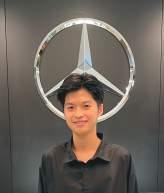
My role
As an IT controlling Intern, I support my team in creating service agreements between Mercedes-Benz Singapore (Provider) and the different Mercedes dealers overseas (Customers). People usually mistake my role as an IT role, but I am doing a finance role as a controller. I am responsible for issuing service requests to customers, ensuring the smooth flow of the workflow from service provider to customer. I also prepare financial and cash flow monthly reports, as well as carry out the planning of different cost centres’ future budgets. I am also exposed to using the SAP FICO module, updating the correct budget figures inside SAP. Since my department deals with IT, I have also done testing in the rollout of automation programmes for Mercedes-Benz.
How did I stand out from the rest of the applicants? Being honest and showing enthusiasm during the interview helped! Read through the job description before the interview and clarify anything regarding the job description to show the interviewer you are prepared. I believe that attending SIM career fairs, and going for job interview workshops organised by Career Connect has also made me more prepared for my interview. Additionally, I went for the resume clinic by Career Connect, where the career coach provided specific advice on how to improve my resume and to tailor it to what employers are looking for.
Doing part-term studies and schoolwork at the same time can be quite tiring and overwhelming. However, I believe that people will grow through hardships. I learnt how to manage my time better, especially when there is work due and test submissions at the same time. Learning how to prioritise the correct task at specific times is very important. Throughout my internship, I got to work with people of different levels, and everyone has different working styles. Therefore, while I faced difficulties with completing tasks, l managed to learn how to tackle such issues professionally.
My advice
It took me quite some time to get an internship, as it is very competitive. However, please do not give up and just keep trying. Having an internship in your resume is better than none. You can acquire technical skills, such as Excel or VBA, among others, and develop soft skills to boost your resume. Do not get discouraged if you do not get the role you interviewed for as there might be better roles out there. When you get selected for an internship, have an open mind and just try to learn as much as possible. You do not need to put too much pressure on yourself as the learning curve can be quite steep and there are things that you do not understand. Ask your colleagues or supervisors about any doubts you have. In the end, just try to make the best out of your internship.

Toh Yii Ying
My role
During my internship, I had the honour to work with the global brand, Fresh Beauty, by coordinating and planning a collaboration event with Love, Bonito. From ideation to execution, I was given the honour to work on this project and watch it come to fruition. Additionally, I was involved in brand management, campaigns, offline retail marketing, and partnerships to liaise with multiple stakeholders on how to expand Love, Bonito’s presence in the Singapore market.
How did I stand out from the rest of the applicants?
Truth be told, I made a mistake in the assessment tasked to me. Amid my busy school work, I misinterpreted the task and submitted the wrong deliverable. However, I believe my genuine and teachable response was what salvaged my chance at this internship. Upon realising my mistake, I quickly apologised and asked to rectify the error by resubmitting my internship assessment. I believe there is strength in admitting to mistakes and most importantly – how to rectify them to ensure such things do not happen again in the future. Therefore, I believe courage was what made me stand out among the applicants.
My takeaways
My biggest takeaway from this internship is watching the ‘Freedom, Reimagined’ campaign my team and I have planned come to life. The end-to-end process was not only fulfilling but also extremely challenging as it required me to be extremely detailed. The many different aspects of the campaign needed creativity yet functionality, and also had to reflect the brand and partners involved as well. This was a challenge – especially with the time constraints. Working on this campaign taught me how to think out of the box and be confident in presenting my ideas, as sometimes our biggest critic is ourselves.
My advice
My ultimate advice is to not be afraid to ask questions! As an intern, it is normal to feel lost and confused in the process, especially with the task assigned to you. The best method to overcome these doubts is to ask others. Most of the time, people are more than willing to clear these doubts or even offer help in the area that you have questions about. All we have to do is ask. What is the worst that could happen?

Alcalvie Leong
Bachelor of Business (Marketing) SIM-RMIT
Growth Marketing Intern - Content Propseller Pte Ltd
role
My primary responsibilities included managing social media, email marketing, social listening, and competitor analysis. On top of that, I was also assigned to projects, such as product launches, market expansion into China and CEA data analysis. These projects allowed me to work with my superiors and colleagues from the other departments. It required utilising a range of digital tools, such as Notion, Canva, Airtable, Gsuite and Capcut. Thanks to the fast-paced nature of a startup, I was fortunate to constantly work on different exciting projects. It gave me a sense of satisfaction building something useful with my team.
How did I stand out from the rest of the applicants?
I believe what made me stand out during the interviews were my ability to think outside the box and my familiarity with tools like Premiere Pro and Canva. This was thanks to the opportunities I had within AIESEC as well as my experience in running passion projects. To prepare for the case study, I first ensured a comprehensive understanding of the company’s ‘why’ and current social media content. I then matched these to the creatives I showcased, drawing inspiration from GoPro’s Instagram. Additionally, I took Propseller’s existing content and revitalised it by putting an aspirational twist to it, hooking potential clients with the prospect of living in a ‘Bali resort’.
takeaways
My Propseller internship was a journey of personal and professional growth, full of learning, challenges, and triumphs. I took on this internship full-time as part of RMIT’s Business Internship module. Thankfully, the assignments helped me consolidate my learnings regularly so that I may maximise this valuable opportunity with ease. This freed up some of my capacity to focus on other modules. I must admit that juggling nine hours of work every day and my studies requires some sacrifice, serious time management and prioritisation. I am also grateful to have a supportive supervisor and strong support from my groupmates.
An internship is not merely a stepping stone towards employment, but rather a golden opportunity for exponential growth. Approach your internship with an open mind and a keen eagerness to learn. Maintain a proactive attitude, seek feedback and always strive for more. Stay dedicated to your tasks, but also invest time in building relationships with your colleagues. While your performance is important, your ability to work cohesively with your team is just as valuable. Above all, strive to make a meaningful contribution to the organisation, and the skills, experience, and connections you build will reward you manifold in your future endeavours. If you want to go fast, go alone. If you want to go far, go together.
My role

Giselle Lien Bachelor of Computer Science SIM-UOL
Technology
Consulting Analyst Accenture
As a Business Analyst Intern, my role was dynamic and multifaceted, primarily revolving around two government projects. In this capacity, I was entrusted with a range of responsibilities that encompassed technical tasks, interaction with clients, and the development of essential reports for government agencies.
How did I stand out from the rest of the applicants?
I think that what sets me apart from other applicants is my ability to connect my academic background and previous internship experiences to the specific role I am seeking. I firmly believe that the skills I have cultivated and refined in my academic and prior work settings are not only valuable but also highly transferable to the role I aspire to undertake.
My takeaways
I believe that my internship has been extremely rewarding as I had the opportunity to delve into the world of consulting and work on real-world projects and collaborate with clients and fellow analysts. It is noteworthy that I took a Leave of Absence (LOA) to partake in this experience, which, in retrospect, was undeniably worthwhile. Even in a technical role, I managed to nurture diverse skills, including effective communication and presentation skills.
My advice
One of the most invaluable qualities you can bring to your internship, in addition to role-specific skills, is your eagerness and openness to learning. Being receptive to constructive criticism and continuously seeking ways to improve not only enhances your personal and professional growth but also positions you for success in your role.
My role

Bachelor of Science in International Relations SIM-UOL
Public Affairs Intern
US Embassy
I was tasked with assisting the Press and Media Coordinators in the Public Affairs Section. Some responsibilities include media monitoring and report aggregation, which included daily media reports, as well as researching and creating biodatas of important Embassy media contacts and personalities, and assisting with Press and Media events. Besides that, I was also introduced to the internal workings of the Public Diplomacy sector, which lays the foundation for me to consider a career in the Public & Media sector.
How did I stand out from the rest of the applicants?
As this was my first internship, being open to advice and criticism helped me improve. My resume was reviewed by the career coach at Career Connect and I was given valuable tips on information and formats I could adopt to increase my chances of landing an internship. Another important factor was researching the organisation and the job role that I was applying for before the interview. Do your due diligence on what skills and values the employer is looking for and ask yourself if you have the passion and drive to learn them during in your internship.
My takeaways
As an International Relations student, I wanted to learn about information dissemination and dialogue between governmental bodies. I had the chance to do so by having a peek into the roles & and responsibilities of various media personalities. This also helped me when I was contacting a Tamil Murasu reporter who interviewed one of the Embassy’s education programmes, as I had a greater idea of her reporting, her background, and her media outlet’s focus. I tutored after my internship hours and during my weekends as well, which demanded time management skills to juggle both commitment.
My advice
Being resilient is important for the working world. As an intern, you are there to learn new skills, which take time and perseverance to build up. Being willing to take advice and criticism from your employers to work on yourself will show that you have a growth mindset.
You must also not be afraid to exercise your curiosity and ask questions along the way. I believe in the adage ‘There is no such thing as a dumb question’ because it has always been proven to improve communication in the workplace and displays your willingness to address your blind spots.
My role

Rebecca Eng
Bachelor of Business (Marketing) SIM-RMIT
Marketing
Intern Invade
I developed comprehensive digital marketing strategies for various social media platforms to drive brand awareness, engagement and conversion. Throughout this internship, I planned and executed social media content and advertisements. I also did copywriting for various collaterals, including newsletters, event games and emcee scripts. I was also able to witness substantial progress for the accounts and projects I was involved in, which included Fleawhere, MOX and Eatbox 2023.
How did I stand out from the rest of the applicants?
I looked for opportunities to create content for small businesses during my studies. My involvement eventually helped me build a portfolio! As this was my first internship in marketing, these experiences also became relevant talking points for interviews. Understanding what the company does and the projects they have done also helped. I believe this showcases eagerness to learn and contribute – a quality many employers seek! Besides impressing potential employers with your past experiences, maintain a positive attitude and always be sincere about it!
My takeaways
Planning and executing several digital marketing strategies led me to learn more about the media landscape. I learnt to set up ads on platforms and gain insights into other media platforms that complement social media content strategies.
I am thankful to be allowed to experience Artbox 2023 through the lens of an event organiser. It broadened my insights into my role in the Marketing Communications department and encouraged me to discover the other aspects of marketing and media planning-related initiatives.
My advice
Identify your ideal role by exploring job titles and descriptions while still in university! I find that this helps provide clarity on the next course of action and directs learning even better. I believe that everyone has a strength. Take the time to understand your strong suits and your passion. There are countless industries and job opportunities in the media landscape. Having a good idea of what the market offers and what you want is a great way to start, especially if you are new to the field like me!
My role

Brent Tan (right)
Bachelor of Arts in Events Management SIM-UOS
Marketing Intern Credence Singapore
I managed the company’s social media platforms, creating content marketing initiatives using software tools like Photoshop and Canva. Collaborating with 12 senior leaders, I helped them improve their social media presence and market themselves as financial services professionals. The internship also provided me with valuable insights into the financial services industry, enhancing my understanding of financial professionals and their services. Attending specialised classes and workshops for financial interns further strengthened my marketing skills and appreciation for the industry’s role in shaping the global economy.
How did I stand out from the rest of the applicants?
My combination of skills and experiences makes me confident to excel in creating engaging content across various formats, including EDMs, newsletters, and articles. To prepare for the interview, I prepared my LinkedIn profile to showcase my achievements and I thoroughly researched the company and its values before the interview, aligning my career goals with their vision.
To create a good impression during the interview, I demonstrated my enthusiasm for the position by asking insightful questions about the company’s operations, future plans, and how my role could contribute to their success. I also expressed gratitude and followed up with HR after the interview, reaffirming my interest in the position.
My takeaways
My mentors’ encouragement has been invaluable for my personal and professional growth, as well as improving my content creation skills. I am also grateful for the support from colleagues who were SIM alumni. Additionally, the internship taught me valuable skills in multitasking and prioritisation. Balancing my studies and the demands of the internship required meticulous time management. As I progressed, I ventured into coaching my peers in building their personal brands effectively through social media platforms. Overall, this transformative experience has helped me to refine my creative abilities and enhance my understanding of crafting compelling content.
To maximise your internship experience, always adopt a positive attitude and mindset! Approach tasks with a willingness to learn, ask questions, and show enthusiasm for assigned tasks. Be proactive in introducing yourself to colleagues, building relationships, and fostering a curious mindset. Embrace setbacks and unsuccessful interviews as opportunities for growth, and remain persistent in your efforts.
An internship is a stepping stone to your professional journey, so make the most of your internship and establish a solid foundation for a successful career!
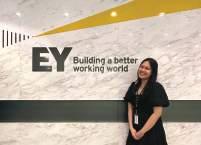
Being part of the People Advisory Services team, I work on people or HR-related client project engagements. Together with my team, I analyse problems experienced by our clients and propose solutions or recommendations based on the frameworks and tools available, as well as working with them to put in place the appropriate recommendations selected. These HR-related projects include, but are not limited to, areas such as HR transformation, employee experience and change management. In addition, I also work with my colleagues and superiors for project pursuits, which include preparing and conducting insight-sharing sessions with potential clients, as well as doing detailed proposals.
How has my internship experience helped me in the transition to my current role?
During my internship, I was exposed to how project milestones are completed, dealing with clients and different stakeholders, conducting corporate workshops and more. I acquired knowledge about the frameworks that were used and also received guidance from my superiors and colleagues. These experiences allowed me to be familiar with how work is done within consulting and specifically, within the team, which made it easier for me as I started my full-time position. I was able to adapt to the team’s work style faster and I was also familiar with how to accomplish certain work.
How did you manage to secure this conversion?
I had an internship with EY People Advisory Services in my final academic semester. While consulting has a steep learning curve, I developed a strong interest in it and found myself enjoying the dynamic learning experience. The magic factor to securing the conversion would be my keen interest in the field and my willingness to learn and perform well in the role. I expressed my interest in a full-time conversion and my internship performance was evaluated where my career counselor collated feedback from all the colleagues and superiors whom I have worked with.
Regina Cheong
Bachelor of Arts (Psychology) & Bachelor of Science (Business Administration), SIM-UB
Ernst & Young
Previous role: Consulting Intern, People Advisory Services
Current role: Associate Consultant, People Advisory Services
The feedback provided was positive that I would be a good fit for the role and the team. Subsequently, I was recommended for employment and approval was granted by the higher management.
What impact do you think your non-academic involvement in SIM contributes to this conversion? Through activities and commitment in external programmes, I was exposed to diverse experiences, cultures and perspectives, and have developed transferable skills such as leadership, teamwork, communication, time management and problemsolving. This broadened understanding and personal development contributed to my ability to work effectively in diverse teams and adapt to different work environments, which was very helpful for me during my internship as I worked with several project teams to deliver work to clients.
Moreover, participating in non-academic activities also boosted my personal growth as they gave me many opportunities to step out of my comfort zone and take on new challenges. This development in confidence, adaptability and resilience helped me to continuously seek improvement in my work, thus positively impacting my internship performance.
advice
Be proactive and take initiative! Do not just wait for instructions or guidance all the time, but instead, take the initiative and seek out opportunities to contribute. Volunteer for projects, suggest ideas and be proactive in finding ways to add value to the work team. This proactive approach will demonstrate your willingness to learn, initiative and commitment.
Embrace a growth mindset too! View your internship as an opportunity for growth and learning. Seek feedback from who you work with and be open to receiving feedback, both positive and constructive, and use it as a tool for self-improvement. Adaptability, resilience and a willingness to learn from your mistakes or past work will help you to thrive during your internship.

As a Business Analyst, my role acts as a crucial bridge between design and technical teams, ensuring seamless communication. Brainstorming solutions using problem-solving skills is a major portion of my role, which includes a lot of documentations and liaising with clients and project managers.
I am involved in analysing reporting interfaces, addressing Data Migration Requirements, and maintaining meticulous documentation, including thorough Data Mapping. I also conduct Functionality Testing to guarantee the robustness of solutions. My colleagues and seniors gave me exposure to using different types of software such as using JIRA for efficient project management, including inputting acceptance criteria and descriptions.
How has my internship experience helped me in the transition to my current role?
When I joined the company as an intern, my mentor walked me through the growth opportunities within IBM which caught my eye! The opportunities that they offered me during my internship got me curious about the number of opportunities that would be available if I joined the company as a full-time employee. Initially, it was quite difficult for me to get hold of the fast-paced environment, but within a month or two, I began to understand the working processes, which made it easier for me to keep track of how the teams work and deliver the work with quality.
Jyotsna Ramnath Vyas
Bachelor of Computer Science in Big Data,
SIM-UOW
IBM
Previous role:
Business Analyst Intern
Current role:
Associate Business Analyst
How did you manage to secure this conversion?
The main magic factor to secure a conversion within the company is networking with your managers, mentors, and colleagues. The key factor is communication, which eventually creates an impression and they can get to know more about your skills and interests. My colleagues recognised the quality of work that I delivered on the project and eventually, they recommended me to my manager which led me to secure this full-time job as an Associate Business Analyst. The quality of work is not the only factor to be considered; it depends on how you establish your communication and how well you network with your colleagues.
What impact do you think your non-academic involvement in SIM contributes to this conversion?
I took up quite a few leadership roles such as Marketing Director at SIM-UOW Student Council, Student Ambassador, and much more. Taking up these leadership roles allowed me to converse with SIM students and prospects, which honed my communication skills. I continue to benefit from these experiences when conversing with clients in my current role.
advice
If you are interning at a company, always approach your manager, seniors or mentors and ask them about the growth opportunities as a full-time employee within the company. Always network during lunchtime or any free time you get at your workplace; by doing this, they will get to know you better and eventually recommend you to be hired by the company.
IA change of pace through an overseas internship might be the right choice, especially if you are looking for a different work environment. 1. Valuable Work Experience
nternships are the next big step in a soon-to-be graduate’s life. While some might stick close to home, others may opt for a change of pace or even a change of environment. An internship abroad allows you to gain practical work experience, expands your knowledge in a field you are passionate about, and builds your independence and confidence.
Benefits of an Internship Abroad
A global internship provides you with an opportunity to work alongside professionals in an industry you are interested in while allowing you to learn more about different work cultures and expectations. In addition to on-the-job training, you gain insight into how the different regions and countries operate and differ from your home market. These factors are extremely valuable to future employers.
2. Expanding Your Global Network
As a fresh graduate, you are eager to learn and connect with like-minded individuals. Doing an internship abroad allows you to meet professionals from around the world. This global network will help you with future job placements or professional advice you may need.
3. Gaining Confidence 4. An Enhanced Resume
Instead of returning home to familiarity, those who opt for overseas internships will be living in a completely unfamiliar environment. However, this is an opportunity to dive headfirst into the professional world, rub shoulders with different people from diverse backgrounds, and listen to their stories. By absorbing and exposing yourself to different environments, you will find yourself learning how to adapt and problem-solve much quicker. This in turn builds your confidence and independence, which are desirable qualities for employers.
Aside from providing character growth, an overseas internship adds value to your resume. It is a rare opportunity for graduates to experience such a transformative experience. Not only have you learnt about a foreign job market, you have set yourself apart from most interns in the local market due to your heightened cultural immersion and the global skill sets you have gained.
Tips for A Successful Overseas Internship
• Communication
- Understanding different communication styles to communicate effectively
• Be Proactive
- Asking questions and taking initiative to go above and beyond in your role will allow you to leave a positive and lasting impression on your supervisors
• Be Adaptable and Open-Minded
- Adapting to other working methods and personalities
- Avoid negative comparisons between your home and host country
For graduates looking for an overseas experience, however, there are circumstances preventing you from moving to a different country, consider remote internships. Remote internship programmes offer graduates an opportunity to explore a diverse range of roles available in the global market.
Interns can log in to online servers or apps from anywhere in the world, rather than commuting to a physical location. This means you are able to work for companies across states, countries, and even continents.
Benefits of Remote Internships
Similar to overseas internships, graduates have access to remote career paths that enhance their job progress. Additionally, you will be able to target and hone a certain set of skills which will be useful when you pursue a career in in-person work situations. Some of these skills include time management, consistent communication, independence, and trust-building with superiors and colleagues.
Flexibility
A flexible schedule is at the top of a remote internship list of benefits. It helps you balance your social, personal, and academic commitments with your work duties. You could opt to do an internship during a semester break or even skilfully juggle your remote internship alongside your studies and social life. Some graduates even opt to juggle two to three remote internships.
Cultural Exposure
Seeing as you are not constrained to a specific location, you can end up interning for a company in an unfamiliar country. Thus, you could be exposed to a new business culture and etiquette, how they run meetings, how differently their emails are written, and how different cultures view work-life balance. Having a global business etiquette is especially useful if your industry requires you to work with international clients and colleagues.
• Create a comfortable and suitable home office
- Separate your work and home space
- Invest in the right equipment to improve productivity
• Time management is key
- Allow yourself short breaks in between meetings
- Stretch your legs and clear your mind to avoid work burnout
• Set boundaries and communicate them clearly
- Set clear boundaries about your “office hours”
• Find ways to socialise
- Organise virtual coffee breaks and online team-building sessions
My role

Kevin Christanto Widjaja Bachelor of Business Information System SIM-UOW
Project Manager Intern at Phileo Limited
I had an internship at Phileo Limited from February to August 2023. During my internship as a Project Manager, I had to research social issues in Indonesia and develop and manage impactful education workshops for underserved community students. Project management was central to my responsibilities, which I used to ensure the delivery of tasks. The management of stakeholders was equally important, and it was here that I cultivated professional connections with clients and partners. Additionally, I was tasked with creating various communication pieces, including presentations and proposals. I also actively worked on projects with the social media and business development teams by supporting them when needed.
How has the remote internship with a global firm prepared you for the working world?
My decision (to be part of this internship) not only affects my grade at school, but also how I can impact others out there. This experience has allowed me to connect with stakeholders in the industry and showed me how thorough preparation is necessary and significant for the working world.
My takeaway
This remote internship provided me with an opportunity to plan an online workshop. It was memorable as it was my first time doing something formally as part of a global firm. I encountered a lot of new challenges. I was assigned to an event report, which was not an easy task at all. The report took me months to finish, working through many feedbacks and comments. Ultimately, it taught me a massive lesson – to create something with a high standard of deliverable quality, and to persevere through it till the end.
My Advice
Be confident through all your tasks. A remote internship does not mean we have fewer responsibilities than an inperson programme. Familiarise yourselves with collaboration technology, be disciplined, and manage your time. Try to communicate effectively and proactively, seek support or help if you need clarification. Stay organised and remember to learn as much as possible.
My role
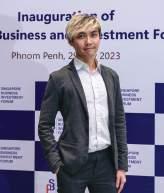
Kok Jun Yan Bachelor of Science in Business Administration SIM-UB
Public Relations Executive (Intern) at Prince Holding Group
As a Public Relations (PR) Executive intern at Prince Holding Group in Cambodia, my responsibilities included crafting press releases, managing social media content, and assisting in event coordination. I also contributed PR strategies for a new project launch, gaining hands-on experience in the dynamic field of corporate communication.
What motivated you to take up an overseas internship?
The allure of experiencing a different work culture and contributing to an internal organisation compelled me to choose an overseas internship in Cambodia. The chance to immerse myself in a unique environment and learn about PR practices from a global perspective was a thrilling opportunity.
My takeaway
The bustling streets of Phnom Penh and the warmth of its people made an indelible impression. Adapting to a different pace of life and navigating language barriers were initial challenges, but they turned into valuable lessons. Overcoming them fostered resilience, and adaptability, as well as improved my communication skills, which have shaped me both personally and professionally.
My Advice
Seize the opportunity! An overseas internship offers a wealth of personal and professional growth. Embrace discomfort as it fuels learning, be open to new perspectives, and engage with the local culture. Adaptability and open-mindedness will not only enrich your journey but also equip you with invaluable skills to thrive in an increasingly globalised job market.
Before applying for that graduate internship, take some time to reflect on these pros and cons.
At long last, you are done with school – congratulations! With your resume, cover letter, and portfolio ready, it is the perfect time to dive straight into the professional world…or is it?
If you do not have any work experience under your belt, this jump might not be the best decision as employers may be hesitant to bring in an applicant without prior experience in the working world. It may not be the best idea for yourself either to enter the workforce without having any exposure to the industry or the job you are applying for. For example, what if the job is not actually what you imagined it to be?
One way to navigate this is by starting with a graduate internship—a way to test the waters. But before deciding, consider both the benefits and drawbacks.
The pros: Why you should do it
1. To get your foot in the door
Regardless of whether you do an internship before or after you graduate, you can get your foot in the door at the company and/or industry you want to work in. Think of this as a long-term strategy – apply as a graduate intern, and give the internship your all to make an exceptional impression on your employers. If your manager likes you, you may just get a full-time job offer at the end of your internship!
It is not uncommon for graduate interns to be converted into full-time hires if they perform well. In fact, many employers find former interns a “safer bet” compared to external candidates. After all, those with prior experience with the company already have an understanding of the office culture and have demonstrated their capabilities.
Even if you do not land a full-time position when your internship wraps up, the experience will still look great on your resume, and you can use the experience as a stepping stone to explore opportunities with other firms in the same industry. You will also walk away at the end of your internship with the relevant experience and skills, not to mention positive testimonials and/or recommendations from your co-workers or manager. But you will need to perform well in the first place!
2. You can expand your professional network
An internship is a golden opportunity to grow your professional network as you will get to work alongside professionals in the industry you are interested in. Not only will you get to learn about what they do, you may even get the opportunity to get to know them personally. This can later be helpful for your future job search.
To maximise your internship experience, participate in as many physical or virtual networking events as you can – such as company or office events – and make a good impression by putting the best version of yourself forward. For all you know, someone who you introduced yourself to at one of these events may be looking for someone to fill a fulltime position in their department! Put yourself out there, and be on the radar.
Making a positive impression is a good start, but making a lasting impression is something you should aim to do as well. Keep yourself in their minds by adding the people you networked with on LinkedIn, but do not forget to ask them if it is alright to do so beforehand. Drop them a personalised message to thank them for their time and for sharing their insights with you.
3. For an insider’s point of view
Doing an internship will help you discover the kind of roles in the industry that align with your personality, skill set and even long-term career goals. It is a great way to learn about how the industry works, and what is expected of the different roles within the industry – especially if you are shadowing a senior co-worker or manager who has rich experiences to share with you.
However, the onus is on you to be proactive and make use of the resources available. You may not always be assigned to a mentor explicitly, but you can always ask someone friendly in the office to share their work-life stories with you, or to answer any burning questions you have about the industry and workplace.
However, avoid grilling a co-worker or manager when they are busy. You do not want to annoy them! Office lunches, gatherings and networking events are typically good opportunities for you to ask questions.
4. To bulk up your resume
If you did not spend enough time on CCAs or gaining other work experience that can help build your resume with relevant points for the industry you want to work in while you are still in school, it is not too late to start after you graduate.
An internship is the perfect way to develop the required skills and gain the necessary experience to make your resume attractive to recruiters. As the saying goes, better late than never!
Pro tip
Get a notebook and jot down your objectives as an intern at the beginning of your internship, as well as your achievements over its course. This will make it easier for you when you update your resume and cover letter. You can also earn some brownie points by mentioning them during your job interviews as well!
The cons: What you should consider
It is no secret that as an intern, you will be paid significantly less than your peers who hold permanent jobs. If you are living independently and supporting your own expenses, it may not be a good idea to pursue an internship.
You also have to think about any commitments you may have. Did you take up a student loan that requires immediate repayment upon graduation? Or do you have a family that requires your financial support? These are questions you need to ask yourself if you are considering an internship upon graduation.
1. The pay 2. The role
Your internship role will likely not be as focused and specific as that of a graduate recruit on a training scheme. Instead, you will be given a variety of tasks that may seem insignificant, and you may find it difficult to develop key industry skills.
If you feel that you are not gaining the exposure you were promised, you could ask your manager or co-worker to assign you tasks that are more relevant to your ideal job. Showing initiative and requesting more responsibilities will not only help you grow professionally; it may also impress your manager and improve your chances of being offered a permanent role at your company.
You should also make sure that you are not simply treated as cheap labour. Interns are protected under the Employment Act just like other employees under a company’s contract, and should not be made to work more than 44 hours a week, or more than 88 hours for two continuous weeks. While it is good to demonstrate that you value the opportunities given, it is also important to stand your ground if you are being mistreated. The trick is to strike a balance between knowing your rights and doing your job as an intern!
That said, best of luck on your internship journey and maximise the experience as much as you can!

Bachelor of Science in Economics & Management, SIM-UOL
TMOD Global HR Intern Continental Automotive Singapore
My role as a Global Human Resources Intern is focused on Talent Management and Organisational Development at Continental Automotive Singapore, which supports initiatives and addresses talents’ needs, as well as their potential for development on a global scale.
My day-to-day activities involve a substantial amount of communication with project stakeholders. Depending on the business needs, there are daily meetings that cover projects ranging from planning to execution in topics on succession planning, diversity management, and leadership development, aimed at building a strong and diverse talent pipeline within Continental.
Why did you decide to do an internship, rather than a full-time/contract job or traineeship?
The decision to pursue this internship was to have the opportunity to extend my exposure not only at an operational level but also from a strategic overview built from a business perspective. It was highly insightful to collaborate and learn alongside the business leaders.
Having an internship opens the flexibility to explore the different pillars of HR to develop big-picture thinking. Internships focus more on gaining practical experience within the field before embarking on a trainee/full-time role that is much more engaged in specialised duties, which help with professional development, where learning is concentrated on performing specific tasks effectively.
My takeaway
I had the opportunity to initiate support in diverse fields of topics like global mobility, mentoring, performance, and potential calibration, which connected me to senior leaders. They have guided me along the way to develop my skillsets, build confidence, and influence a growth mindset.
The fast-paced nature of this role challenged me to find a balance between efficiency and productivity. The process of maximising both elements taught me to have better time and task organisation. As such, I can approach my work with undivided attention.
Communication plays a significant part in my role, and effective communication requires practice and conscious effort to maximise its impact. In addition to delivering against tight deadlines, it became challenging to communicate consistently, ensuring that every team member stays updated to avoid overlapping responsibilities and confusion.
I believe that practising open communication in the workplace is crucial to building shared understanding for clarity and sustaining expectations in a fast-paced and rapidly evolving work environment. Fostering stronger team alignment enhances psychological safety, allowing a laser focus on what is important and a commitment to learning and improving.
Dare to try – Explore beyond your comfort zone and take the chance to learn. An internship provides a safe space for making mistakes and prepares you for the next steps in your professional development. Believe in yourself and the value you can offer to unlock your growth trajectory.
Cultivate self-discipline – “Only the disciplined ones in life are free. If you are undisciplined, you are a slave to your moods and your passions,” said Eliud Kipchoge. Discipline offers control and clarity in your goal achievement process; therefore, work with intentions. It is not just about what you do but why and how you do it.

Sew Cheen Da
My role
I sourced potential collaborations with schools and other organisations to work on programmes that will benefit the community by conducting market research and developing strategies to pursue them. I also created sales and marketing materials, which included preparing presentations, proposals and reports. I had the opportunity to attend various trade shows, conferences and client meetings to seek further partnerships and to market the company.
As the Project Lead for Empowering Youths with ADHD to be Strong and Resilient, I initiated the idea of using my company’s product, GRO! Cards, to support ADHD youths and young working adults in order to explore how our card games can better benefit them. I was responsible for planning the project, collaborating with my team to create the programme outlines, and pitching to the National Youth Council for funding as well as to secondary schools to implement the project. I also facilitated the pilot sessions.
I had the privilege of undergoing training to become a Growth Circle Facilitator, enabling me to facilitate Growth Circles, which provide a safe space for peer support.
Why did you decide to do an internship, rather than a full-time/contract job or traineeship?
An internship in a small company allows me to take on various responsibilities, helping to expand my knowledge and network, as well as gain valuable experience. As I plan to pursue my career in the social services sector, these knowledge and skills make me better equipped to continue to engage with the community and contribute to the betterment of society.
My challenges and takeaways
As my degree is not related to Business Management/ Development, I had a lot to learn, such as proposal writing and understanding the backend operations of a business. I am grateful that my bosses were kind and patient enough to guide my development. I took the extra effort to study past business proposals and drafted proposal outlines for practice.
This internship allowed me to work in different roles beyond business development. I gained insights into social enterprise operations, including programme costing, marketing strategies, and product development processes.
Advice
Seize whatever opportunities come and be open to trying and learning new things; this is when you grow as a person and develop skills through the internship. You might encounter tasks outside your job scope, but never shy away from trying new tasks!
This
is not a foolish undertaking, as it can boost your career opportunities and enhance your self-development.
As you went through university, the idea of picking up an internship, or role, unrelated to your field of study might have sounded entirely impossible, or at least something you might be better off not dabbling in… right?
Although there is some truth in that, the flip side is that while you may not be building specific knowledge, you will have the chance to pick up other skills and valuable experience you may not have the chance to otherwise.
The thing is, internships and jobs take you out of academia and bring you into corporate life, where you learn to network, gain working experience and pick up numerous professional opportunities to broaden your experiences.
These are just a few of the benefits of doing an internship, or getting a role, outside your field of study, so read on to get to know more of them!
If you are having second thoughts about whether you want to continue in a field related to your studies post-graduation, internships and part-time roles can act as an ideal safety net to test the waters. There is nothing wrong with using the time spent as an intern or part-time employee as a platform to explore other options open to you!
For example, if you are studying graphic design but maintain a blog on the side, you can consider internship or temporary roles in publishing houses that entail editing, copyediting, or content creation.
Alternatively, if you enjoy a broad range of music, you can ponder the option to join radio stations where your knowledge of artists and songs can come in handy.
Ultimately, take the chance to pursue your interests and passion – unrelated to your studies or not – and see if they can work out as a viable area of work for you as a fullfledged employee in the future.
When you take on an internship or job unrelated to what you studied, you are going to pick up a completely new set of skills unique to the area you are in. Although some skills may be more niche and specific, you will pick up transferable skills.
For instance, as you will have to learn on the job or take cues from colleagues on how to recognise and resolve problems, practically, you will build problem-solving, teamwork and communication skills. Moreover, just moving into a completely unknown field is already a study in adaptability.
Add these new skills to the skill set you already have courtesy of your field of study, and you will have an edge over other candidates in the future!
Strengthen your resume
Even if you are not thinking of pursuing a multifaceted career in the future, a range of core skills listed on your resume will not hurt your chances of successfully landing a role. Employers are always on the lookout for candidates who show potential to be all-rounders, so your resume will help you stand out from your peers with your variety of skills and experiences!
The jobseeking landscape has become incredibly competitive over the past few years, and the uncertainty brought about by the present pandemic and possible upcoming recession has had a hand in heightening it, as well. Instead of competing for a single area of work, you can create more options for yourself by choosing an internship or role not necessarily related to your field of study.
On top of that, in a time when many internships and roles are being introduced or newly defined, you will find that your experience in different areas and a wide variety of skills will come in handy!
Employers prefer candidates who have broader perspectives and can focus more on building their capabilities, as they do not need to spend the time and resources training them.
Opportunity to build a diverse network
Creating and maintaining a mutually beneficial network is crucial in any industry, and it is impossible to stress the importance of building connections. The broader your professional network is, the more valuable tips and opinions you can get to improve yourself in the future.
Moreover, you will be able to leverage your contacts to keep abreast of market trends and industry developments.
You can even ask around for different perspectives and insights into various areas of work. Your network may even help you land opportunities you may have no access to otherwise!
Although the decision to pursue an internship or job outside your field of study may be a smart one, it requires you to be brave enough to venture out of your comfort zone. Chances are, if you are willing to grab the bull by its horns and charge ahead while giving your all, you will benefit from the experience and boost your self-development after graduation!

As a Factory Integration Engineer, I am tasked with responsibilities ranging from the development of machine learning models and Tableau dashboards to acting as a Business Analyst for Industry 4.0 projects. I am part of a diverse and global operations-based team.

Jegatheesan Sudharsaan
Bachelor of Science in Data Science & Business Analytics, SIM-UOL
Factory Integration Engineer at Infineon Technologies
My role is to gather functional requirements from my team to create dashboards, which track operational stability. Within digital transformation projects, I am expected to be the bridge between key business users and system architects who enable the project team to deliver solutions that digitally empower the user in an Agile manner.
2. Being a Data Science graduate, why have you decided to venture into an IT-related role, which is outside your field of study?
As a fresh graduate, my goals were set to learn as much technical and domain knowledge as possible. My role as a Factory Integration engineer provided the exposure that I needed to develop both my technical and soft skills in a dynamic environment, enabling me to provide value to the organisation. This being a more ITrelated role not only helped me to hone the technical skills that I was taught in university, but also demanded me to learn current and leading technologies in data science such as Generative Artificial Intelligence so that I can enable my organisation to be updated in the use of its technologies.
3. What are the challenges you faced venturing into a different field and how did you overcome them?
Going into an interview for my current role with a highly experienced senior director, I was aware of my shortcomings as a Data Science graduate. Not only did I lack the domain knowledge required to work in a semiconductor manufacturing firm, but I fell short on some of the technical skills desired as well.
Despite these shortcomings, I managed the expectations of my hiring manager by being transparent about my limitations, as well as communicating my strong interest and willingness to learn about my role in the organisation. After joining, using the organisation’s internal
learning resources and networking with other engineers to learn about relevant technical skills helped me overcome my shortcomings.
4. What have you done outside your academic that has prepared you for this switch of field?
Beyond my academia, reading up on the recent initiatives of Infineon Technologies through their company website and LinkedIn posts enlightened me about the direction the company was heading in digitalisation and decarbonisation.
As a Data Science major, educating myself on emerging technologies such as Generative Artificial Intelligence and project delivery methods like Agile and design thinking helped communicate my breadth of knowledge in these areas to my hiring manager. Additionally, reaching out to career coaches in SIM for their guidance in perfecting my resume helped me position myself competitively among many other applicants in this technical role.
5. My advice to students who are venturing outside their field of studies
I encourage all students to be proactive in their job search from early on. Consider giving yourselves enough time to look into jobs and industries that may interest you despite being outside your field of study. Involving yourself in hackathons or business case study competitions can allow you to learn about an industry and its demands. Push yourself and your friends to go for career events such as the SIM Career Fair and company visits that allow you to network with industry professionals and learn invaluable advice that can help you gain an edge against other job applicants.

Arion Kwok Bachelor of Science in Economics & Finance, SIM-UOL
Digital
Media Marketing Officer at CYS
Global Remit
Pte Ltd
As a Digital Media Marketing Officer, I have to not only handle the creative deliverables such as crafting EDMs for festivities and special events, writing articles for our blog, photo shooting (and shopping), and producing video assets where I am in charge of the whole production from start to finish, but also the business marketing side as well. This includes networking with external stakeholders in events, campaign brainstorming, content calendaring and even data analytics.
Moreover, I am also responsible for events management, which includes vendor shortlisting and coordination, events planning and even logistics. I have to source and discern potential events that are suitable for our company, come up with an idea for that event and conceptualise it. In just three months, I have already successfully executed three events, which led to a 20 per cent increase in overall reach!
2. Being an Economics & Finance major, why have you decided to venture into a Marketing role, which is outside your field of study?
It was never a change in mindset, I have always intended to enter the marketing industry even before pursuing an Economics degree. As a matter of fact, I also took up a Marketing internship during my time at SIM. They say from Finance you can enter the marketing industry but not the other way round, right? I guess it was really a ravenous mindset of mine, but I felt that it was great to be exposed to a more diverse skill set. Now, I not only bagged IT and Music from my diplomas (Financial Informatics @ NP & Music Production @ TSMC), I have Marketing and Finance as well!
3. What are the challenges you faced venturing into a different field and how did you overcome them?
I am currently going through a multitude of challenges as we speak! Though we are expanding, my department is currently understaffed and I am the only one in my team (come join my marketing team! You can find us on LinkedIn).
Admittedly, I am a greenhorn in this sector with the switch so even though
every assignment was inherently fun for me, too much of everything is always bad because it reached the threshold limit of my allowable workload capacity. But I enjoyed every bit of my work as honestly, who hates going on free buffets and making friends as a job, right?
As I naturally got better in my efficiency and skills, I found myself able to surmount a workload that was meant for four people to tackle. Not only did this allow me to learn a lot on the job, but it also allowed me to see the capability that I did not know I had in me. Besides, we do not encourage overtime at work, so I still get a work-life balance. Challenges will always be there at every step of the way. It will never end but it is how we tackle them that makes a difference. It gets easier with each hurdle surpassed.
4. What have you done outside your academic that has prepared you for this switch of field?
I proactively sourced for internships during my time at SIM. In addition to that, I went on a multitude of courses related to design and digital marketing. In my case, things like Adobe Illustrator and data analytics are a must-have so go upskill yourself!
5. My advice to students who are venturing outside their field of studies
I would say do not give up. I was met with months and months of rejections before finally landing where I am. I would not sugarcoat this – you will meet more obstacles as compared to others but it is achievable. I have seen numerous cases of mid-career/academic switches that it is practically normal. You just need patience and grit. Talk to your support circle whenever you need that little guide or boost.
Here are some great ways to hone your skills while you are still pursuing your degree!
Studying for your degree is more than just completing your assignments and examinations. Do not miss out on the many co-curricular opportunities to pick up skills that can enrich you as a person and future employee – and make you more attractive to employers!
Join clubs and societies 1
If you are passionate about something, do not wait too long to master it. The best time and place to start is when you are still in school. Employers value candidates who have a life outside of work and do not hesitate to pick up new skills and hobbies – or even venture into new territory fearlessly.
It will also cost you more resources if you pick up a sport, art form, dance, or musical instrument after you graduate from university. On the other hand, when you are in school, you just have to allocate your time efficiently for these CCAs. A side benefit is that they can also spruce up your otherwise monotonous school life!
Winning should not be your only motivation for taking part in competitions. Instead, if you focus on your preparation and give it your best shot, you can dispel any self-doubts. On your resume, participation in competitions also shows that you are unafraid to work diligently towards your goals.
Sports enthusiasts can compete in the annual Universaide Games, and there are other competitions that cater to a wide range of interests. You can even pick and choose which events to compete in according to your strengths and weaknesses.
Employers want to see dedication and commitment to a cause or goal in potential employees, and having a track record of taking part in competitions will strengthen your application.
Find out about talks and forums held on campus, and attend those featuring speakers from the industry or society you are interested in. Do not miss out on the chance to listen to unique stories on personal career journeys, or insights on the latest industry trends.
At forums, do not hesitate to speak up if you have anything important to share on any topic or issue close to your heart. Most importantly, listen and soak up the insights, which will provide useful fodder for you to form your opinions and worldviews in time to come as a young jobseeker.
Build your skills 6
Although getting the internship of your dreams may be tough, the process can be made easier by preparing early. So, before you start looking, identify your goals and interests so that you will have a clear target to work towards. Get your resume ready afterwards. Do not worry if there is a limited experience to jot down – it is expected! Instead, include some modules or areas of study that make you a qualified candidate.
When you begin your search properly, visit your friendly career coaches in your career centre. They will be able to get you acquainted with internships on offer, as well as dispense with crucial advice on how to successfully apply for them. You may also network and apply speculatively, as not all internships are advertised.
As volunteering is an opportunity to freely give back to the community without monetary remuneration, it is an easy and obligation-free chance to gain experience in a particular area, or develop new skills you may need. Because you will be exposed to opportunities and challenges you may never come across in a corporate setting, as well, you stand the chance to gain valuable experience employers usually seek.
Volunteer experience is also a great way to start meaningful conversations with recruiters, and will help you stand out as an interesting candidate when you start your job search process before graduation!
Although life is slowly beginning to return to some form of normalcy, there is still no better time to start building your skills through webinars and online courses. More widespread digital adoption means that they are now much easier and more convenient to attend – and some are even free!
As most webinars and courses are held over online platforms in real-time, make the most out of every event and make your presence felt by asking questions over the live chat, or leveraging the live video feed and microphone to boost your profile.
With so much to learn and acquire, CCAs serve as a critical platform that you can leverage to strengthen your skills and position yourself in the job market after graduation!

Vishakha Raj
Bachelor of Science in Accounting & Finance, SIM-UOL Audit Associate (Financial Service) KPMG
As an Audit Associate, my role is to participate in auditing our clients’ businesses, contributing to the completion of the audit process, and helping to achieve their financial objectives.
Being able to secure a job before graduation, what do you think makes you stand out from the rest of the applicants?
I believe my consistent dedication and goal-oriented personality are the primary reasons that helped me stand out. Right from my freshman year, I was highly motivated to explore various new opportunities such as CCAs, internships, summer school, hackathons, and projects.
I completed an internship at an audit firm in India, which provided me with comprehensive insights into the audit industry and strengthened my foundational knowledge. Additionally, I completed two summer school sessions at the London School of Economics and Political Science (LSE). The first was focused on finance (FM250), while the second covered Business Analysis and Valuation (AC215). These experiences enhanced my understanding of the finance industry, enabling me to approach it with a more progressive mindset. Overall, I consider determination, hard work, optimism and the zeal to prove myself as my guiding principles.
How has your time in SIM helped you in securing the job before graduation?
Choosing to study abroad at SIM, a university roughly 3198 miles away from my home at the age of 18, felt like the most daunting decision. But every single day at SIM made it absolutely worthwhile. SIM provided me with a platform to step out of my comfort zone and try countless new experiences.
I served as the President of SIMSMS, Vice-president of SIMAA, EXCO leader of Career Champs, Student Ambassador, PAL leader for Math 1 UOL, and student leader of KU X SIM Student Exchange. These incredible opportunities enabled me to work with and lead diverse teams, time management, and event planning. Additionally, these experiences helped me identify areas where I needed further refinement and improvement.
In summary, SIM offered me incredible opportunities, transformed me into a better version of myself, and thoroughly prepared me for the professional world beyond its walls.
Always believe in yourself and never self-reject. Be your own cheerleader and maintain a positive mindset. Gather the courage to step out of your comfort zone and try new things. Remember, university is not solely about scoring the best grades. Take time to focus on CCAs and internships, building a solid plan for yourself. Ensure you utilise the 1,095 days at SIM in the most optimum manner so that, upon graduation, you can reflect on the myriad of new experiences that enhanced your personality. Set goals for yourself, work hard, and strive to achieve every single milestone.
Exploring different options is vital to eventually finding the perfect role for yourself, so do not be afraid to pluck up the courage to play the field when it comes to your career.
Have you ever wondered if there are other career options you can explore? Although overseas exposure is becoming increasingly viable with reopening borders, keep in mind that some countries may still request that you commit to a certain period of time in quarantine.
So, how about being your own boss? If that appeals to you, you have the opportunity to plan your own work schedule and pick only the work you want to do.
Transitioning to the working world can be stressful, but even as you navigate your way, remember that it is all right to break the mould and explore other options that may better fit you and your aspirations.
Here are some alternative pathways you can keep in mind.
If you cannot find anything that suits you in the local job market, there is no harm in turning your sights to opportunities abroad. On top of that, graduates with a good command of English are highly sought-after on the international market.
Although travelling can be rather inconvenient with vaccination requirements and the occasional quarantine order, there are plenty of English-speaking countries and international companies in non-English-speaking nations to choose from. Your options are unlimited!
Why you should go for it
• You can pick up and hone skills that are useful and increasingly valued in today’s globalised world, such as an international outlook and adaptability
• You will have the opportunity to meet and work with people from diverse backgrounds and develop an international professional network, something which will come in handy the further you progress in your career
Location: It is vital that you consider the country you will be moving to. Are they accepting foreign travel at the moment? What are their vaccination requirements? What are their procedures when you land? Think about the distance from home, too. While this may break the deal for some – especially if you plan to shuttle home often over the duration of your employment – others may actually want the distance.
Another aspect you should reflect on is the country’s culture. No matter where you decide to go, there will be different cultures and business practices. The good thing, however, is that this can help you develop open-mindedness and the ability to adapt to diverse environments – traits you can bring up and talk about with your future employers in job interviews.
Visa/work permits: Make sure to ask prospective employers if they provide the necessary visas or permits you need to legally work in the country they are located in. As a prospective expatriate, you will find immigration procedures to be a taxing and complex process, so it is important to find out if employers are at least able to give you the support and guidance you will need to get through.
Cost of living: Living costs vary from country to country, so it is important that you conduct thorough research on day-to-day expenses such as food, transport, accommodation and utilities.
But keep in mind that exchange rates also fluctuate, particularly if you will be transferring money regularly across countries. Consider these factors and assess if your pay would be able to sustain such costs.
Although it is common for graduates to work in an industry for a few years before striking out on their own, you can think about starting your own company while you are still in school if you have something workable.
If you need advice and funding, SPRING Singapore’s entrepreneurship page is a good place to begin. There are also other useful links to organisations like the Acton Community for Entrepreneurship (ACE).
• You will have the freedom and flexibility to work at your own pace
• You will be able to pick up and hone essential business skills, such as bookkeeping, collecting debts, marketing and filing tax returns
Risks: All entrepreneurs face the same risks with uncertain market conditions and financial struggles, especially when working within tight budgets. As a result, a lack of funds and market volatility can make it difficult for a business to run smoothly and effectively.
This drives home the importance of having a good and effective business plan, and conducting thorough research before taking the plunge to becoming an entrepreneur.
Attitude: Resilience and determination are two of the most important qualities you will need in the face of building your business.
If you do not have the attitude to remain upbeat and positive throughout, this may not be the path for you.
Network: Before you choose to walk down this career path, it is a good idea to understand the level of commitment needed. One way to gauge this is to get in touch with other entrepreneurs, whether they have succeeded or failed. Their experience and advice will give you valuable insights and context into your endeavour to become a successful business owner.


Ashley Ong
Bachelor of Science in Business Administration, SIM-UB Class of 2023
SIM EDGE Award Recipient Founder of MOKMOK Jewelry
Founded in 2023, MOKMOK Jewelry curates handmade jewellery that is made of high-quality materials and 100% hypoallergenic, tarnish-proof, sweat-proof, and waterproof.
I always had a strong passion for jewellery. In fact, when I was 12, I created an Instagram blog shop where I bought jewellery from Qoo10 and resold them to students.
Real gold and silver jewellery seemed to be too expensive to purchase as a young adult. There is always a risk of losing them and the danger of wearing them around, especially if you are overseas. On the other hand of the spectrum, fast fashion jewellery brands are affordable but the quality is not as good. I recall even getting skin irritations and infections as the materials contained nickel and lead.
I saw the market gap and wanted to bring real 18-karat gold plated and 925 sterling silver jewellery to people worldwide! I went to Hong Kong, Japan, and China to meet with suppliers, curated collections, and created the site mokmokjewelry.com!
2. How has your time in SIM prepared you for this journey?
My time at SIM has been instrumental in shaping not only my academic foundation but also my approach to life’s challenges. The university instilled in me the value of always giving my best, striving for excellence, and aiming for the highest standards in everything I do.
Particularly, my involvement in extracurricular activities has played a significant role in preparing me for my current journey. Being actively engaged in activities such as the President of Innovation & Networking Society (IONS) has contributed to fostering a sense of independence and motivation.
“Know your competitors” was a gem of wisdom my dad imparted to me that I carried through university life, even to my internships and my first corporate role at Amazon. Now as I navigate the realm of jewellery, understanding and assessing other players in the industry is crucial. SIM taught me that if I want to be the best, I have to always give my best. Strive, and aim for the highest.
As a valedictorian, I wanted to inspire others to get out of their comfort zones and try everything as I did. Six internships, four hackathons, two CCAs and three part-time jobs in my four years in SIM have shown me that if I can do that, I can continue making the impossible possible.
3. Benefits and challenges as an entrepreneur
The biggest benefit is building something ground up that you truly believe in and seeing strangers from all over the world support you. Another pro is that you have full autonomy and control over your days. Some challenges you might face include the constant need to stay creative, being consistent on social media platforms, and handling customer emails.
4. Tips for students who want to be future entrepreneurs?
You will find out that starting and grappling your foothold at first is the hardest. I can assure you starting a business might be the most difficult task you have had to navigate. However, it is the most rewarding.
Do not give up! You have to be all in to make it work! There is no easy route!
Exploring your VIPS — values, interests, personality, and skills — can help you determine what is important in your search for the ideal career.
Your career goals may change over the course of your time in the workforce, and it might take you a long time to find yourself in your desired role within an industry. However, your first step as a graduate who is embarking on your career should be to determine what you can and want to bring to the table.
By looking at potential jobs and career paths from a passion point of view, you could see it as something you need to do, rather than solely as a means to make a living. If the idea of waking up in the morning to go to work does not motivate you, and you cannot see yourself persevering through difficult times, it will be challenging to succeed in that particular role or industry.
Finding your VIPS — values, interests, personality, and skills — can help you realise what you love doing and are good at. By understanding and acknowledging your passions, you will be driven to pursue a job that you love and are good at. Chances are, you will find contentment in growing your talent and developing your skills.
What are some factors you need to look at to understand what fulfils you? Here are a few questions you can ask yourself to help guide you as you cross over into the working world.
1. Values: What do you care about?
Values or motivators are something you really care about and which gives you a sense of purpose. This may not only be limited to your personal life, but also in a work situation. Your values are influenced by a number of things: upbringing, family, home life, culture, and education.
Work values specifically relate to the amount of career satisfaction. You need to consider your values as part of the career decision-making process, so that you can get a clearer picture of what type of career will bring you satisfaction and fulfilment.
Your values will also determine whether you will actually do a job, as opposed to whether you are capable of doing the job.
2. Interests: What are you passionate about?
Career interests revolve around activities that spark your enthusiasm. Your career plays a huge part in your life, thus, it makes sense to choose a career which plays to your interests and strengths. The more you learn about your passions, the more you will be able to place your choice of employment in the context of the type of life you would like to lead.
Interest inventories will help you to identify your interests and prioritise them. The premise of this is to help you create a list of activities you enjoy, and match them to prospective careers.
3. Personality: What are your strengths and weaknesses?
Identifying your strengths and weaknesses will influence how you select a career, as well as how you fare in it. You could either choose to improve on your weaknesses by accepting a challenging career path within your industry, or hone your strengths and eventually succeed.
Your strengths and weaknesses can be found across various areas – how you manage and plan your work, the ability to problem solve, as well as how you interact with others. Ultimately, by understanding what characteristics define you as an individual will determine whether you are suited for a job.
4. Skills: What are you good at?
Regardless of the type of degree you have attained, it played a part in raising a specific level of competency in you that is relevant to industry needs. Additionally, take note of your additional skill sets and experiences that will set you apart within the industry.
To succeed in most industries, you will need a combination of strong technical skills as well as soft skills. Utilising what you have learned in school — through academics and participation in extracurricular activities — is key to successfully applying your technical skills in the workplace. You should also be aware of soft skills such as leadership, adaptability, and interpersonal skills that when combined with technical ability, will enhance your employability.
Most employers are looking for “work-ready” candidates who possess clear evidence of job specific skills and a good attitude. Continue to develop your employability by being involved throughout your time at school, and embrace the continuous learning and development opportunities presented to you.
As you begin spending almost 50 hours a week at work, it makes sense to examine each job offer carefully by factoring in your VIPS, instead of chasing after a singular ideal role. Here are some questions to ponder over when considering job offers.
How do you want to work?
Before accepting a job offer, think about the office culture and environment. For example, more companies are moving towards hot-desking in the office, as well as hybrid work. Ask yourself which type of environment will help you thrive.
Where would you take on challenges?
Moving from a school setting into the workforce can overwhelm a fresh graduate. Challenges in school do not seem as large as they do in a work setting, and it will take some time for you tofind develop a problem-solving routine that works. For example, an introvert can carve out a successful career in marketing or sales with good self-awareness skills and a willingness to work in a team. However, they may likely need to take some time off to recharge once in a while.
How can you contribute?
If you are lucky enough to be in your element in a workplace, it is highly likely you will thrive and grow. For example, if you identify yourself as an extrovert or a people person, you can think about pursuing careers in client relations. On the contrary, those who prefer working alone may find themselves gravitating towards a career in engineering or IT, where some roles involve working solo.
Your individual story, experiences, and skills make you different. Creating your own brand is a great way to show your unique personality.
Each person holds a distinct narrative woven from their unique experiences and expertise. While pursuing employment opportunities, fresh graduates traditionally rely on their academic accomplishments and endeavours to stand out. However, crafting a personal brand serves as a means to highlight one’s finest attributes professionally while showcasing the principles they embody.
Developing a personal brand involves a fusion of career aspirations, values, and life objectives. These things change as time goes on, making building a personal brand an enduring investment that goes along with your career path.
Your personal brand reflects who you are, your skills, and your values. Firstly, you need to ask yourself the following questions to figure out what drives you.
• What roles or professions would bring fulfilment?
• Does alignment with personal values and interests supersede monetary gains in job preference?
• Which attributes have garnered praise from others?
• What subjects or domains captivate attention?
• Is a corporate environment more appealing or a startup setting?
• Does envisioning oneself as an entrepreneur resonate?
• Do I envision myself as an entrepreneur?
By self-reflecting on the questions above, it helps you identify some of the values, beliefs, or goals that currently drive you.
Start the process by reviewing social media profiles and eliminating any content that might cast a negative impression on prospective employers. Get rid of anything on your social media that does not match who you are, or think about keeping work stuff separate from your personal posts by using different accounts.
A comprehensive personal brand encompasses not only professional aptitude but also hobbies and passions. If hobbies intertwine with your career trajectory, it is an added advantage. For instance, if you enjoy drawing, investing in art classes could be enriching. Similarly, active involvement in sports can accentuate teamwork skills. Leveraging these talents in personal projects facilitates skill refinement while potentially contributing to your portfolio.
Your personal brand should reflect who you are because that is something employers pay attention to. Being personable helps build good relationships and trust at work.
If you have worked in jobs involving large groups, like being a camp instructor, retail assistant, or part-time in hospitality, it adds value to your personal brand. It shows how well you interact with others, work in teams, and how passionate and committed you are. Employers generally like people who take initiative and are professional.
When you are starting your career, you might not have a mentor yet. But you can look up to someone as a role model who aligns with your goals and dreams. This role model could be a successful business leader, a well-known figure, or simply someone you admire professionally.
These individuals already have a strong personal brand, making them great examples to learn from if you are trying to build your own. Observe how they present themselves and their brand. Use their good qualities as inspiration to develop your own.
Success is not just about things you can touch; it is also about your mindset. Notice how you have reached where you are now instead of only thinking about your physical achievements. It is important to celebrate your accomplishments, even the small ones, by remembering the important moments in your life.
For instance, participating in contests, organising events, or times when you showed leadership skills could be useful when thinking about your career. These experiences might also show how determined and disciplined you are, thus becoming a significant part of who you are.
It is important as a fresh graduate to be informed on the various methods of job applications out there.
Aside from scouring the internet for your prospective job, there are a variety of other options available that you can make use of. By exploring the range of routes available, you expand your chances of finding what you are looking for.
There are a multitude of career portals for you to browse through. However, you should ensure that the ones you join and subscribe to are the ones that suit you best. For instance, gradsingapore.com curates both jobs and internships, and is considered a one-stop resource for fresh graduates and those who are in the early stages of their career.
Company websites and social media pages are alternative options. On top of showcasing available vacancies first hand, they often offer a peek into their work culture. Some platforms also give out insider information about a company’s culture and recruitment process.
Job search portals
Career exploration platforms
Sector-specific portals
Company websites and social media pages
Professional networking platforms
Although we are knee-deep in the digital age, traditional methods can still be a source for job prospects. Employers occasionally place advertisements in printed publications and announce it through traditional media outlets such as radio.
Newspapers, magazines
Industry publications
It is normal to be curious about your future, and where that degree may take you. Whilst still in school, pay a visit to Career Services. They may be able to offer you resources and contacts that are specific and targeted to your course of study.
Remember to be transparent when speaking to your career counsellor so that they have a better idea of how to help you. If you ever face challenges in your job hunt, Career Services may be your best guide.
Leveraging on the wide range of contacts and resources
Defining your career aspirations and goals clearly to your career counsellor
Attending mentoring and networking sessions organised by Career Services
Drop by the Career Connect office at SIM HQ, Block B Level 1 (Opposite Foodfest) on weekdays, from 9AM to 5PM
Whether you choose to attend career fairs on campus or in public, go in with a strategy in mind.
Have your resume at the ready, and keep name cards on standby if you have any. After the event, be sure to establish your connection with your new contacts through email. In the note, include any interesting points of conversation you may have had to help the recruiter remember you out of the many faces they may have met at the event.
Send your resume one more time over email and add in links to your online portfolio or LinkedIn profile.
Find out which employees will be at the fair, and prepare some questions you would like to ask them
Bring copies of your resume to hand out to prospective employers
Email your new contacts after the event
Check out SIM’s annual career fairs; DREAMS (in February) and IGNITE (in October)
Recruitment processes are long and tedious. There are some things you should keep in mind throughout your job search.
Another way you can expedite your job search is by engaging a recruitment consultant service. Although you will have to pay a certain sum, you will be able to meet up with them for consultations to discuss your professional goals and use their connections to potential employers.
Consider
Although you have to pay an initial sum, recruitment services are a valuable resource They can offer you information on how to prepare for assessments and interviews
Many young jobseekers and graduates profit from networks, both personally and professionally when looking for their first job. It is not just about what you know, but who you know.
Consider
Keep in touch with old contacts and make new contacts
Never turn down a chance to network, whether personal or professional
Work placements and internships can lead to full-time positions, especially if you have proven yourself to be a good fit for the company and get along well with your co-workers.
Consider
Write in to prospective employers even if they are not advertising vacancies
Show your interest in the company
Indicate that you have a strong understanding of their field
Demonstrate how you can add value to the company
Enquiring with a company about an available job position, or applying speculatively, has the potential to show that you have a strong interest in the company. However, you would still need to indicate your understanding of the field, as well as demonstrate that you are a good candidate for the position.
Some fresh graduates choose to earn a little more while simultaneously gaining work experience. Consider applying for temporary or part-time positions at companies you are hoping to join. Alternatively, you can also apply for relevant jobs in the market that could provide you with some insight into your profession of choice.
Remember not to worry if your part-time gig has little to no links to your chosen field of study. You will still be able to elaborate on all the invaluable transferable skills you have gained in future interviews.
Make a mental note of all your skills and then look for opportunities wherever they may be; even outside your chosen industry. While this may not be ideal in the long-run, it is an alternative, especially when the job market is going through a rough patch. This way is simply a method of gaining experience and developing your resilience; two notable skill sets that your prospective employer will be impressed with. By keeping your mind open to opportunities, it may even lead to greater job satisfaction.
Additionally, do take into consideration graduate internship opportunities. There is still a possibility of conversion to a fulltime position if you work hard. You could also turn your hobby into a short-term business. For example, selling baked goods or commissioned artwork.
The right first job will set you on the right career path.
As your time at university comes to an end, you can feel the pressure mounting as your friends rigorously churn out multiple job applications. Add this pressure to your parents’ constant queries about potential jobs, you finally decide it is time to think about finding the right first job to kickstart your career. Ensuring you make the right decision when it comes to landing your first job is paramount; however, you might not know where to begin. The process can be daunting, and you might find yourself approaching the job search in a frantic manner. Here are some considerations you should keep in mind as you take your first steps into the professional world.
Although your first job might be a stepping stone to other opportunities, it is still important to keep in mind that it should pan out positively for your future. By asking yourself “Where will this job lead me?”, it can prompt you to analyse how this role might add value to your overall career journey.
Your first job should be able to lead you to future opportunities and help you achieve your long-term career goals. The job should provide you with career advancement opportunities, and a higher level of responsibility as it progresses.
Start by researching the typical career progression pathways for the job you want to pursue and the specific field you aim to work in. If you already have a specific employer in mind, do some background research on employees that currently work, or have worked, in the company, or check out career profiles.
You may be able to gauge a better idea of the type of opportunities available within the company if you do choose to work there. Alternatively, you can also ask the recruiter about career advancement opportunities during the interview stage.
Another important factor to consider is how your prospective employer can help you grow professionally. Your first job should be a chance for you to learn as much as you can, so try looking for a company that provides training or mentorship to graduates or newcomers. You can raise questions about training opportunities with the prospective employer during the interview stage.
Weigh your options and ask yourself whether your prospective employer is willing to spend the time and effort to train newcomers or if they are more open to new employees learning on the job. Some may prefer the former way of learning, however, debate and figure out which method of learning best suits you. Regardless, it is important to understand the initiatives the employer offers to ensure that their employees are constantly learning.
Hybrid working arrangements have become the new norm for the majority of companies since the pandemic. Despite this new practice, some companies still go by in-person work arrangements. By working in the office, you are sharing a physical space, which allows for inperson interaction and collaboration. The downside is, employees will need to spend time commuting to and from the workplace.
On the contrary, working from home, you collaborate and communicate with coworkers using a range of technological platforms. This arrangement provides employees with the flexibility to work from anywhere, not limited to their own homes, as long as there is a stable internet connection. However, this does not mean that there are flexible working hours. Prospective employers might need you to be available during specific times of the day to ensure alignment with employees’ schedules and productivity.
When looking for your first role, you should take into consideration what work arrangements align with you. This includes how you feel about constant human interaction, as well as how it affects your productivity and efficiency.
Your choice of a particular degree has equipped you with a niche set of skills. For example, search engine marketing (SEM) skills for marketing or programming languages for software engineering.
It is beneficial for you to expand your existing skill set once on the job, but it is also crucial to think about building other transferable skills. Such skills include communication and the ability to work in a team.
Your first job is the golden opportunity to gain as much knowledge and skills as you can. Diversify your skill set so that you can become a more well-rounded and marketable individual. This is especially important if you are looking to join another company in the future.
Find out whether your prospective employer allows you to pick up other competencies outside your current skill set. It is also important to inquire about the department culture to see whether they practise interdepartmental collaboration or if it is more independent. Cross-departmental exposure is a good way to learn different skills, while routine tasks may limit you to a single skill set. Hence, it is crucial to have a good understanding of what the role entails.
By doing the necessary groundwork, you boost your chances of standing out in the job hunt.
The easiest part of the job hunt process is scouring the internet and job portals. Attracting recruiters and successfully getting hired is a different ball game altogether. In addition to having an impressive set of qualifications, you need thorough preparation and planning before applying for any job to ensure you have increased your chances of landing that first job.
Landing a job does not happen overnight. Simply churning out applications to prospective employers will not effectively capture their attention. Job hunt preparation should ideally begin while you are still in school since it is a time-consuming process. Not only do you have to gain industry knowledge, you also have to build the right connections. These two factors are crucial in helping you get hired.
• Start your research long before the application process is underway. By starting early, you can maximise as many sources as possible. For instance, you can talk to seniors who are already in the workforce to gain some insight into their experience
• Understand the job market and manage your expectations across different roles. This will help you plan your education and career, especially when applying for internships or even when picking your majors
• Be knowledgeable about local and international current affairs as well as industry-specific news. This awareness will demonstrate your genuine enthusiasm for the job during the recruitment process
Networking is one of the most efficient ways to learn about a particular industry and scout around for job opportunities that may not be openly advertised. It is also an excellent way to meet like-minded individuals sharing the same passion, professional interests, and career goals.
• Families and friends are the easiest way to start growing your network. Discuss your career plans with them, and who knows, they might connect you with someone who could assist with your application
• Stay connected with contacts from past work experiences or internships via LinkedIn or even through email
• Attend networking sessions, be a part of student clubs or societies, organise, and peruse event platforms that promote sessions based on collective interests
Avoid limiting yourself to specific employers or roles. Instead, be open to different job opportunities and stay optimistic throughout your job hunt. Keep in mind that your choice should still align with your overall career goals.
• Do not put all your eggs in one basket. Consider applying to both big and small companies. As a fresh graduate, aim to accumulate as much experience and skills as you can. This can be acquired no matter the size of the company
• Consider different roles with a similar job scope or those that may help you develop skills you are keen on picking up. List them down for reference as you browse through job sites while doing your research
• Not all job vacancies are advertised, so explore beyond job portals and look for leads on employers’ websites. You can also submit speculative applications to showcase your interest in working for a specific company
Job opportunities will not be handed to you on a silver platter. Be proactive and put yourself out there to be noticed. Work hard, and do not let opportunities slip away from you.
• Regardless of the economic climate, you should remain positive about your job hunt. Be patient and keep a positive mindset
• Remain positive about your job hunt, even if it is a timeconsuming process
• Follow up with emails after a meeting or networking session with a potential employer. This can influence a recruiter’s decision to shortlist you as a potential candidate
• Reply to prospective employers promptly as some may be rushing to fill the position
Combine your strong technical ability with a range of soft skills and you might be a big asset to your prospective employer.
Transferable skills are defined as skills that can be used across any sector. These include communication, teamwork, and problem-solving abilities. Here are some of the top transferable skills employers look for, as well as some tips on how you can demonstrate them.
1
Regardless of the company, both big and small challenges are common. It is crucial to adapt to new environments and situations. Employers appreciate candidates who are flexible and can quickly adapt to change. Such candidates tend to be resilient, self-assured, and remain composed under pressure. You can demonstrate your adaptability by:
• Staying calm and responding quickly to assist your team
• Utilising your creativity and resourcefulness and come up with unconventional solutions and ideas
• Describing to your interviewer an instance in which you embraced change positively, and provide them with a scenario where you demonstrated a willingness to try a new approach at work
2
You should not view work solely as a place to get the job done. Instead, companies need their employees to be critical thinkers, as well as have the ability to make decisions by evaluating situations.
Those who can successfully display their ability to solve problems and think outside of the box will be an asset to any organisation. Problem-solving skills are useful especially when the need arises to come up with solutions that can solve or prevent an issue.
Interviewers usually look for insights into your thought process. The STAR method is a great way to keep your responses succinct when you need to showcase your problem-solving ability in your application.
You can demonstrate your critical thinking and problem solving skills by:
• Recounting past problem-solving experiences, while providing concrete examples to show recruiters
• Staying in touch with local and international current affairs
• Finding opportunities to exercise your problem-solving skills, such as embarking on DIY projects
• Use the STAR method
Describe the Situation
Describe the Tasks involved.
What Actions you took.
What Results you achieved. A S T R
3 4 5
Communication is defined as the ability to express ideas and information successfully with others. Not only is communication about delivering a message clearly and concisely, it encompasses actively listening to a conversation. This skill is crucial for establishing a foundation to build and maintain good professional relationships, and in turn, enhances your teamwork and collaboration.
Recruiters typically assess effective communication through your display of confidence, empathy, friendliness and respect.
You can demonstrate strong communication skills by:
• Practising with friends and family members, and asking them for feedback on your strengths and weaknesses
• Making sure your emails are clear and accurately presented
• Practising active listening when interacting with colleagues at work to ensure that their opinions are heard
Being a successful leader is having the ability to inspire productivity and motivate others, while still remaining level-headed and confident during challenging situations. Aside from having to manage a diverse range of personalities, you would need to adapt to different work styles, problem-solve successfully, and be proactive when organising and delegating tasks.
As most work environments function collaboratively, having good leadership skills is essential. You need to be able to work well with others, and utilise the different strengths your team members have in order to work efficiently.
Although attaining a leadership or management position might seem an impossible task at the start, there are always opportunities to lead.
You can showcase your leadership and collaborative efforts by:
• Taking on responsibilities for special projects in and out of work or assist with managing interns
• During interviews, point out instances where you worked efficiently in a team setting to achieve results as a group
• Using your experiences from sports clubs, student organisations, and even part time jobs to showcase how you collaboratively worked towards a common goal
Commercial awareness
Commercial awareness is the intersection between two areas of understanding: familiarity with a company or organisation — such as its goals, objectives, products and services — and a grasp of broader industry trends in the market.
Recruiters seek candidates who can balance both of these factors and figure out how external market forces influence the organisation, as well as how the organisation can best thrive in different market situations.
You can showcase your commercial awareness by:
• Finding out about the company’s products and services, its history and significant milestones, its clients and customers, as well as its main competitors
• Understanding the major industry players and how they are performing in the market
• Learning how to intelligently speculate about the future
• Working on analysing the past in order to successfully predict future trends
Most industries have embraced some form of digitalisation at work. Learn to be comfortable with technology at work, even if it is not the focal point of your sector.
Despite the continued emphasis on transferable skills, graduates should prioritise technical skills as well. Regardless of your sector, you should consider picking up some basic technical skills, seeing as technology plays such a pivotal role in almost every industry.
Computational thinking
Computational thinking – or programmatic thinking – is not a new concept, and if you have encountered big data, you have likely engaged in it.
While it is often thought to have robust links to the IT sector, this methodical and logical way of thinking has become increasingly common in the marketing and advertising industries, among others. Someone familiar with computational thinking will have the habit of analysing and organising data when reacting to a problem.
Today, coding is nearly as important as literacy, and knowledge of programming languages from HTML to Java can go a long way in helping your application. While you do not need to be able to code – understanding the principles behind it is enough – employers have shown a marked preference for graduates who have an awareness of what goes on “behind the scenes” in applications and websites.
How useful is it for you: If you are in the content creation sector, chances are you will need to publish your work online. Knowing how to code just makes your job easier and lets your content look exactly the way you want it to on a website.
This method of thinking relies on data analysis and reason to resolve problems. For example, you jot down your concerns, categorically separate them, and then think of ways to solve them efficiently. Once the issue is resolved, you then gather the data using the most effective method that will help you realise your goal.
How useful is it for you: Being able to rationally think through a problem using logic and then coming up with a probable solution is a critical skill set needed to succeed in the workplace. It paves the way for a potential leadership role in the future.
The term “big data” refers to the colossal amount of data companies generate from their hardware, apps and websites to interpret and use. Data management skills will be incredibly useful in this area, and can give you an edge over the competition, as you will be able to assist companies in turning their big data into usable information. If you are more proficient in managing big data, you will also be able to help businesses predict future trends.
How useful is it for you: If you are in the digital marketing sector, knowing how to manage data will help you decipher your target audience better. It can also be a way for you to quantify the results of your work.
User experience, or UX, is far more than making sure a product is palatable to the eye. It is about perceiving how design plays a part in customer interaction, as well as improvement. It also denotes an understanding of how customers use and value a product or service, along with their limitations and abilities. A strong grasp of a company’s brand, aesthetics and usability is also needed, as is an awareness of current concepts and trends.
How useful is it for you: Products that provide good user experiences tend to achieve better success. Only when customers are happy with using your products will your business succeed.
Data visualisation
A branch of visual communication, data visualisation helps others understand data with the use of visuals. It requires a solid understanding of several elements, from the details of the data you are trying to pass on, to how the target audience would consume this information, as well as determining which visual would best serve its purpose. Though it sounds much like plugging numbers into graphs and charts, data visualisation is more than that, and people with skills and knowledge in this arena can often be found exploring new ways to simplify and convey complicated results and trends – derived from big data – to decision-makers and managers.
How useful is it for you: It is an alternative method to crafting presentations, potentially giving you an edge over other applicants.
If these skills are not of crucial importance to your role at work, there is no need to spend too much time or money on it. Instead, you can start with the many free courses and readings available online, and set aside some time everyday to build these skills.
Check out https://cmc.sim.edu.sg/ to sign up for the relevant Micro Credential Courses!
Supplement your degree with the relevant skills to impress your prospective employer.
The global job market is expected to continue evolving with growing competition and advancing technologies. With another layer of complexity added, firms are quickly switching up their hiring strategies to meet these challenges. Having a varied skill set will serve you well in your career. You should also focus on constant upskilling as part of your professional development. As the business landscape continues to change, these are some of the skills and qualities employers look for in candidates.
• Encryption and cybersecurity
• Artificial intelligence (AI) (e.g. machine learning, neural networks, natural language processing)
• Internet of Things (IoT) and connected devices
• Text, image, and voice processing
• Big data analysis
• E-commerce and digital trade
• Distributed ledger technology (e.g. blockchain)
• Augmented and virtual reality (VR)
• Robots, non-humanoid (industrial automation, drones)
• Power storage and generation
• Accelerated digital transformation (e.g. AI, IoT, VR/AR. Cloud computing, blockchain, and super-fast network protocols like 5G)
• Preparation for inflation and supply chain security
• An emphasis on sustainability, prioritising ecological impact and ensuring their environmental, social, and governance (ESG) processes are the focal point
• Building an immersive customer experience by streamlining processes
• Providing attractive and flexible careers for employees with fulfilling work, all in a diverse, valueoriented workplace
• Continued upskilling and reskilling of existing employees to fill skill gaps and create a data and techsavvy workforce for the future
Navigate the ATS skilfully to avoid your well-written applications from slipping under the radar.
Despite putting in the effort to craft your applications and send them to various companies, it can seem as if you never hear anything back. Before you start questioning whether you are good enough, remember that it might be the Application Tracking System (ATS) working against you. If your application has yet to be automatically rejected, chances are that it is confined to the bottom of a pile, with recruiters unaware of its existence.
The ATS plays a crucial role for most employers, especially seeing as sending an application nowadays is as simple as a click away. Without it, employers could be left swamped with the extent of applications, having no way to deal with it. Thus, large companies employ ATS to help streamline their recruitment process, with smaller firms slowly following suit as well.
ATS tracks applications and resumes, whilst also acting as a filter. The system scores and ranks applications according to relevance before passing them to a hiring manager or recruiter.
Although the system streamlines the process for recruiters, it has drawbacks.
• ATS may struggle with accurate synonym processing, especially on older systems.
• It only recognises exact matches, potentially placing well-written resumes without specific keywords at a disadvantage.
Despite its shortcomings, bypassing the ATS is possible if you understand its requirements
Using a fancy resume template may hinder rather than help. Here are some factors that should give you a one-up over the ATS system.
Optimising your resume for ATS keywords increases your chances of your resume being noticed by the recruiter.
• A resume design that is easy to read and utilises specific keywords.
• Use simpler font types such as Arial, as the ATS might have trouble processing fanciful fonts and images.
• Stick to the standard resume template and use common headings and keywords such as ‘Professional Experience’ and ‘Skills’.
• While most ATS systems can process PDF files, Microsoft Word documents are often processed more accurately.
Before submitting an application, thoroughly read the job description and responsibilities. This will help you select relevant keywords and phrases to use in your resume, which will allow the ATS system to seamlessly process it.
Optimising your resume for ATS keywords increases your chances of your resume being noticed by the recruiter.
• Include role-specific keywords
Examples: Education, certifications, or licences relevant to the role you are applying to, as well as hard skills
• Include industry keywords
Tip: Perform a Google search for “[industry] resume keywords” to find keywords specific to the industry
• Check the placement of resume keywords
Example: In important sections such as education, experience, and skills
• Use correct spelling, numbers, and abbreviations
Although including keywords is important to ensure the system effectively ranks your resume, it is equally important to be honest when describing your past experiences and skills. The goal is to make the resume both ATS-friendly and readable to recruiters. If you encounter trouble drafting your resume and need assistance, you can always reach out to your Career Coaches.
Alternatively, you can contact a recruiter or hiring manager directly if they are contacts within your network. This can potentially help you bypass the entire process and reduce the concern of dealing with the ATS.
Here is a guide to writing effective resumes and putting together applications that work.
Resumes can come in a variety of formats, such as the chronological, skills-based, combination and alternative resumes. The most commonly used format is the chronological resume as it is reader-friendly and easily customisable. Each format has its pros and cons, so do your research and find out which one best serves your needs before deciding on one.
Regardless of which type of resume you choose to use, the idea behind its presentation remains the same. What is more important is to adapt the various elements of the format and tailor its contents to highlight your skills and distinguish yourself from other applicants.
EDUCATION
SIM Global Education – University of London BSc in Business and Management
• Recipient of Commendation Award for excellent academic achievements in 2020 Singapore Polytechnic Diploma in Business Analytics
Aug 2020 – May 2023 (expected graduation) 2016 – 2019
FeynM Company
Customer Service Officer
• Provide support in several investment projects
• Liaise directly with customers in order to assist in better understanding their needs
• Assist customers with relevant queries on products
• Conduct market research on client portfolios
Prepare service and product recommendations reports for clients MNF Company
Intern
• Assisted on customising investment analytics suites for clients Coded programmes to filter and analyse gathered data
• Communicated directly with senior management during the customisation process
LEADERSHIP EXPERIENCE
Singapore Institute of Management Team Captain, Soccer
Feb 2021 – Current
• Represent SIM in the first division and lead the team to win the inter-university Lion Cup in 2021
• Lead and conduct bi-weekly training sessions for 30 members, motivating team members and ensuring their welfare
• Liaise with team captains at other universities to coordinate practise and friendly matches
• Oversee the recruitment and selection process of new members
Singapore Institute of Management Secretary, Economics Society
Aug 2021 – Mar 2022
• Led a group of 8 committee members to publicise events, which successfully increased club membership by 20%
• Encouraged club members to actively participate and help out in club events Managed the club’s budget and resources
VOLUNTEER EXPERIENCE 4 3
Youth Corps Singapore Youth Leader
• Mentor and provide guidance for new batches of youth leaders
May 2020 – Current
• Initiate, propose and execute workshops and events to increase awareness of mental health amongst youths
SKILLS/CERTIFICATIONS
• Proficient in Microsoft Office
• Proficient in Excel VBA and pivot tables
• Knowledge in programming languages such as C++, Python, SQL, R Programming, Java
• Basic knowledge in Tableau
• Certified in Basic First Aid + AED
• Fluent in written and spoken English and Chinese
• Currently self-learning Korean
David used a different font size for his name, and enlarged and bolded it. This ensures that it is the first thing a recruiter sees when they pick up his resume. Putting it in uppercase was a good move too, as it will make his resume easy to find amidst a stack of other documents.
David used action verbs that focused on his role and the results he achieved. 1 2
3
Results speak for themselves
David’s resume is effective in that it lets his results speak for themselves in solid terms (i.e. numbers and percentages).
4
Be more than a worker
David also used his resume to reveal the breadth and depth of his skills, interests and hobbies that frame him positively. He also did not let his resume exceed two pages.
+65 9876 5432 | david.sum11@gmail.com | www.linkedin.com/in/davidsum11 | davidsum.wixsite.com
EDUCATION
SIM Global Education – University of London BSc in Business and Management
2020 – May 2023 (expected graduation)
Recipient of Commendation Award for excellent academic achievements in 2020 Singapore Polytechnic Diploma in Business Analytics
WORK/PROFESSIONAL
FeynM Company
Customer Service Officer
• Provide support in several investment projects
Liaise directly with customers in order to assist in better understanding their needs
• Assist customers with relevant queries on products
• Conduct market research on client portfolios
• Prepare service and product recommendations reports for clients
MNF Company
Intern
• Assisted on customising investment analytics suites for clients
• Coded programmes that helped in filtering data
• Communicated directly with senior management during the customisation process
Singapore Institute of Management
Team Captain, Soccer
• Represent SIM in the first division and lead the team to win the inter-university Lion Cup in 2021
• Lead and conduct bi-weekly training sessions for 30 members, motivating team members and ensuring their welfare
• Liaise with team captains at other universities to coordinate practise and friendly matches
• Oversee the recruitment and selection process of new members Singapore Institute of Management
Secretary, Economics Society I worked closely with some society members to successfully increase club membership
• Encouraged club members to actively participate and help out in club events
• Managed the club’s budget and resources
• Proficient in Microsoft Office Knowledge in programming languages such as C++, Python, SQL, R Programming, Java
• Basic knowledge in Tableau
• Fluent in written and spoken English and Chinese
• Enjoys outdoor sports, particularly soccer and Ultimate Frisbee. Actively participates in marathons
• Enjoys volunteer work
1
Name fails to stand out
David’s name does not stand out on his resume, so there is a chance employers will either overlook it or miss it altogether, especially if it is in a stack of other documents.
2
Lack of powerful verbs
David displays some uncertainty, and shows a lack of action and achievement.
3
Results are unclear
This is just blatant self-promotion on David’s part. There is also no solid indication of results.
David presents only one part of himself
David is more than just a potential employee. In this case, he could have used his resume to reveal the true breadth and depth of his skills, interests and hobbies, and use it to frame himself positively.
Missed opportunity to showcase his passion
David should elaborate on his volunteer work experiences to show his dedication and involvement in activities he cares about.
While you may think a unique font will make you stand out, it may put off employers instead, unless you are going for an alternative resume. Here are some examples of fonts that you should use and some that you avoid.
Arial: The standard sans-serif font. Arial’s clean, easy-to-read feel makes it ideal for a resume. The font sizes 10 to 11 work just fine. Tahoma and Calibri are decent substitutes too. Times New Roman: The standard serif font, Times New Roman is another safe bet that looks slightly more elegant than Arial. Some of the more “easy-going” industries, like IT and media, might find Times New Roman to be too formal, however. Verdana: Another common sans-serif font. If done correctly, Verdana can be used for a very classy effect even if you plan to create an alternative resume.
You need to catch a recruiter’s attention from the very beginning of your resume and reel them in. So, be sincere and genuine in each tailored document sent out instead of sending the same version out over and over again. Understand what each company is looking for and think about what you have that would meet their needs and make you the best candidate.
One of the best ways to customise your resume is to ensure your career objectives and summary of skill sets are set according to what the company needs so that it is more relevant and targeted.
Job descriptions for roles tend to contain keywords that encompasses desired qualities and skill sets. So your resume would need to show that you have the necessary academic qualifications, personality traits and professional experiences – whether from part-time jobs or internships – to fit the role.
Hiring managers do not have the time to look through what you did in your previous positon in detail, but they do shortlist resumes based on specific skill sets. So if you do not have the summary of your skill sets at the top of your resume, be sure to write a few lines at the start of each work experience to summarise the core skill sets in each positon.
Recruiters and hiring managers have a marked preference for candidates with training and experiences relevant to the positon they have posted. There is no need to be afraid of showing of your skills and experience in your resume; it will not come across as bragging if you are merely stating your skills and experience. Include all noteworthy achievements, skills and experiences so that you can get a chance to talk about them during the interview.
Comic Sans MS: The red-headed stepchild of modern fonts, the quirky but dreadfully overused Comic Sans has no place on a resume.
Monotype Corsiva: Unless you are applying for a job as a dramatic actor, Monotype Corsiva’s fancy flourishes are difficult to read and are more likely to annoy than impress a recruiter.
Graduates are often in doubt about personal statements (also known as career aim, profile, or mission statements). What purpose does it serve and should it be included in their resume?
Our answer: a graduate’s resume typically does not need a personal statement because an effective one requires details that fresh graduates cannot provide.
Typically limited to only two to three sentences, good personal statements summarise your career goals as well as unique experiences, achievements and knowledge or skills that you can offer to your prospective employer. These are details that you can only provide after having been in the workforce for some time.
With job search processes and recruiters increasingly moving online, it is a wise move to link your offline resume to your online profile – especially your LinkedIn profile or sites containing your work or portfolio. It allows you to start interacting with potential employers even before the job interview, giving them an early overview of your past achievements.
When including the link of your LinkedIn profile to your resume, make sure to use the public profile’s URL address instead of the link in your browser’s usual URL box when you are logged into your account.
You can also customise your LinkedIn profile’s URL address to build your personal brand and make it more memorable to recruiters and networking contacts. You can do this through the “Privacy & Settings” section of your LinkedIn homepage.
Last but not least, remember that time is precious. Try not to wait till the last minute to submit your job application! Not only will you need time to proofread your resume, but some companies may choose to bring forward submission deadlines due to overwhelming responses.





































































































































If an employer requests a resume, they usually want a cover letter, too. Do not let go of this opportunity to showcase your skills and enthusiasm — it can make a big difference to the success of your job application!
Aconvincing cover letter should always accompany your resume when you apply for a graduate job. It is an extra opportunity to highlight your most relevant skills to recruiters and demonstrate your motivation and enthusiasm for the job. Here is our four-step guide to effectively sell your skills through your cover letter!
STEP #2:
Answer the question “Why you?”
The first paragraph or two should be about you. Convince the employer why you are well-suited to the role by referring directly to the job description and concentrating on how you have the skills, abilities and/or knowledge to excel in the role you are gunning for.
Mix evidence of specific skills and knowledge related to the job with anecdotes from your personal experience. At the graduate level, it is still fine to refer to work experience that is not directly related to the profession you are applying to, as long as you can show how that experience or skill can be transferred to the prospective job.
Use examples from your experiences doing part-time jobs, CCAs and academic work to demonstrate how you developed and practised skills such as communication, teamwork, time management and commercial awareness.
Avoid copying statements word-for-word from your resume. Think about how you can rephrase the information or expand on specific skills and achievements that match the needs of the role.
STEP #3:
Then, answer the question “Why them?”
STEP #1:
Get your opening right
After your salutations, inform the recruiter which job, internship or scheme you are applying for, where you saw it advertised and why you are applying. If the position has a reference number, it is always good to include that for their easy reference.
Always address your cover letter to a named contact. Give the organisation a call to find out who you should address your job application to if a name is not given on the job advertisement or their website. Ensure you correctly address the person’s title, e.g. Mr, Miss, or even Dr. Some recruiters may feel quite strongly about how they are addressed.
The next paragraph or so should explain why you are interested in both the job and the organisation. What is it about the employer and/or the job that made you apply? This is your opportunity to customise your cover letter to show the recruiter your interest in the position, instead of blasting out cookiecutter resumes and cover letters to a dozen different companies.
Re-read the job description and make sure you have done some background research into the organisation. This will help you tell the recruiter why you want to work for their company and why you are interested in this particular role.
If you prefer, you could even switch steps #3 with #2 around and write about why you are applying to the employer first. As long as you answer both the questions of “Why you?” and “Why them?” in your cover letter, the exact order does not matter.
Provide specific reasons when discussing your motivations for applying, such as the training they provide. Avoid vague statements that could be said about pretty much any employer, such as “because you are a prestigious company”.
Your closing paragraph should be strong, clear and short. Reaffirm your suitability for the role and your enthusiasm about working for the employer. State that you look forward to hearing from them and will be happy to provide any further information they need.
Do not forget to sign your letter as if you are sending it through the mail or delivering it in person! Likewise, remember to type out your name if you are sending your cover letter by email. A cover letter should not be longer than one page.
Brush up on modern trends when it comes to writing business letters. For letters addressed to a named contact, finish with “Yours sincerely”. If you are addressing an unnamed contact, end with “Yours faithfully”.
David Sum 17 Brooke Road Singapore 421564
Jonathan Han Recruitment Manager
HR Department
AX Bank
38 Marina Boulevard Singapore 018598 17 March 2023
Dear Mr Han
I am applying for a position in your graduate management programme, as advertised on AX Bank’s website. I will graduate in April 2023 with a Bachelor of Science in Business Analytics (Hons) from SIM-University of London and a projected CGPA of 3.5. I was encouraged to apply after speaking to Ms Tan, your Recruitment Executive, at a talk given at my university.
My interest in business analytics was greatly increased during my second-year internship with MNF Company, a local SME that specialises in bespoke analytics. The stint was an eye-opener that exposed me to the variants of analytics theories and models used in the industry, such as investment analytics and enterprise optimisation. I further developed my expertise by attending various lecture series and panel talks organised by the university, such as those given by Bruce Bueno de Mesquita and Doug Laney in the “Big Data, Game Theory, and Business Analytics Today” lecture series.
My part-time role as a customer service officer at FeynM Co. has also equipped me with good PR, communication and negotiation skills. As a project support in several investment projects, I was given the opportunity to liaise directly with customers and to assist in understanding their needs. Most memorable was my involvement in preparing a service and product recommendation report for a notable client after researching their portfolio. The skills I picked up and refined over the course of my part-time job will certainly lend themselves to the position in question.
I am also deeply involved in the Economics Society, where I work closely with a team of eight people to organise and execute promotional campaigns for our society’s events. My position as treasurer in the society also allowed me to develop and showcase my numerical abilities and understanding of business, especially in terms of financial planning and resource management.
I am sincerely excited to work for AX Bank because of your commitment to socially responsible investments, which I myself strongly believe in. I believe I will also benefit greatly from the rotational approach of your graduate management trainee programme as well as the overseas placements it offers.
Attached is my resume for your consideration. I am sure that you will find me to be an asset to your company. I look forward to hearing from you in due course.
Thank you.
Yours sincerely David Sum
Make some calls to find out who you can direct your letter to. If you are unable to find a name, then use a specific job title instead (e.g. “To the Recruitment Manager”).
Introduce yourself clearly in the first paragraph. Be sure to state the exact position that you are applying for.
It is alright to name-drop if you have had prior contact with the company’s representatives as this shows continuous interest. But be sure to get their business card!
Always mention specifics when promoting your skills and experiences. In this case, David gave some examples of analytics theories to show that she knows her stuff.
Use jargon and names of industrial figures sparingly, unless they are extremely wellknown.
David is selectively vague here since she may have to protect the confidentiality of these projects, but he boosts her credibility with details about his role. It would, however, be more effective if she could link it to the skills that he had listed before.
David Sum
17 Brooke Road
Singapore 421564
Jonathan Han Recruitment Manager
HR Department
AX Bank
38 Marina Boulevard
Singapore 018598 17 March 2023
To Whom It May Concern
I am applying for a position in your graduate management programme, as advertised on AX Bank’s website. I will graduate in April 2023 with a Bachelor of Science in Business Analytics (Hons) from SIM-University of London and a projected CGPA of 3.5. I was encouraged to apply after speaking to one of your representatives at a talk given at my university.
My interest in business analytics was greatly increased during my second-year internship with MNF Company, a local SME that specialises in bespoke analytics. The stint was an eye-opener that exposed me to the variants of analytics theories and models used in the industry. I further developed my expertise by attending various lecture series and panel talks organised by the university, such as those given by Bruce Bueno de Mesquita and Doug Laney in the “Big Data, Game Theory, and Business Analytics Today” lecture series.
My part-time role as a customer service officer at FeynM Co. has also equipped me with good PR, communication, and negotiation skills. As a project support in several investment projects, I was given the opportunity to liaise directly with customers and to assist in understanding their needs. Most memorable was my involvement in preparing a report for MC Company after researching their portfolio.
I am also deeply involved in the Economics Society, where I work closely with a team of eight people to organise and execute promotional campaigns for our society’s events. My position as treasurer in the society also allowed me to develop and showcase my numerical abilities and understanding of business, especially in terms of financial planning and resource management.
I am sincerely excited to work for AX Bank because of your commitment to socially responsible investments, which I myself strongly believe in. I believe I will also benefit greatly from the rotational approach of your graduate management trainee programme as well as the overseas placements it offers.
Attached is my resume for your consideration. I’m sure that you’ll find me to be a committed, driven individual who can become an asset to your company. I look forward to hearing from you in due course.
Thank you.
Yours sincerely David Sum
If you are unable to find out who you can direct your letter to, use “To the Recruitment Manager”. “To Whom It May Concern” is rather awkward and does not state your purpose clearly.
It is better to name-drop if you have had prior contact with the company’s representatives as this shows continuous interest.
Always mention specifics when promoting your skills and experiences. David could have given some examples of analytics theories here to show that he knows his stuff.
Protect the confidentiality of past clients and projects by not mentioning their names. Instead, David should have focused more on his credibility in the role he played in the project by offering details. It will also be more effective if he could link it to the skills that he had listed before.
Cover letters should be treated as a formal business correspondence. Avoid contractions at all times, and get someone to proofread your letter for errors. Also, try to omit clichés such as “committed, driven individual”.
• Using your cover letter to flatter recruiters and hardsell yourself
• Writing only one generic cover letter for multipurpose use. Each job posting has its own unique requirements, and you have to show that you have the relevant skills and experience
• Including cliché or umbrella statements
• Not mentioning your motivations or reasons behind pursuing the position you are applying for
• Leaving out past quantifiable results you have from past projects or internships
• Talking about what the company can do for you, and not how you can value-add and contribute to the company



























































Use LinkedIn to your advantage and attract more recruiters to your page.
It is no secret that LinkedIn is now one of the primary means employers look for new hires. Over 93 per cent of companies around the world use it to make hiring decisions, which means it is critical that job seekers have and maintain an account on the site to put themselves on the radar.
However, simply creating an account is not enough to make yourself stand out from millions of other users. Take things a step further to make your profile more attractive and searchable for recruiters. Here are some basic and additional tips that will help give your profile that coveted “wow” factor!
1. Pick a professional profile picture
LinkedIn is a business-oriented social networking platform, thus a professional-looking headshot is always a safe bet.
2. Include relevant information
Curate your LinkedIn profile as you would your resume. Add in achievements, qualifications, and relevant work experience that are relevant to the industry you wish to pursue your career in. For instance, if you are interested in pursuing a career in digital marketing, highlight skills such as search engine optimisation (SEO) or search engine marketing (SEM).
If you are looking to join a specific field such as the retail sector, emphasising your work experience as a sales promoter or retail assistant would be good.
3. Grow your connections
Once your profile is all set up and updated, the next step for you is to expand your connections. LinkedIn will prompt you to connect with people who you might know through the email account you use to sign in to LinkedIn or through mutual connections. Take advantage of this function and explore the possible contacts you can connect with. When sending an invitation to connect with someone, give it a personal touch by dropping the person a personalised message. Also, if you have pending connection requests, remember to respond promptly and send them a thank you message for reaching out.
If you have previous professional work experience, you can get your former manager or supervisor to write you a recommendation for your LinkedIn profile. Alternatively, you can get your peers or lecturers to write one if your experience is limited to school-related activities such as school projects or student organisations. You can further boost your profile by getting your former coworkers or peers to endorse the skills that you have added to your page and then returning the favour.
Located right under your profile picture, this function presents the perfect opportunity for you to showcase your personal brand by putting in keywords that best define you.
Examples:
• A computer science graduate with work experience “Tech whiz, former programming & web developer intern, e-commerce industry”
• A student or graduate without professional work experience “English language graduate, aspiring writer, media industry”
Keep your headline succinct so viewers simply need one glance at your profile to get an idea of who you are professionally and whether you would be a useful connection to have, both for recruiting and networking purposes
Similar to your headline, you should include keywords in your professional summary that align with your personal brand. The difference between the two is that your summary has more room to showcase your personality. Make this section sound interesting while remaining authentic.
Example of a summary for a finance graduate:
“I am a finance graduate with an interest in managing wealth through wise investment decisions. I am keen on a finance role in the investment management industry, where I will be able to apply the skills I have learnt in university and throughout my internship. Aside from my interest in finance and investment, I enjoy competitive running and have won several medals in multiple marathons across Singapore and Malaysia. The tenacity and mental endurance I possess when I run are traits that I believe I can bring to the workplace. I enjoy the thrill of being challenged and I look forward to the challenges that my future employer presents to me.
If you would like to learn more about how my skills can bring value to your company (or hear about the 68 marathons I have participated in), please send an email my way.”
Search for relevant groups such as organisations or interest groups that align with the causes you care about (e.g. animal rights groups or alumni groups) to get updated on the latest news and trends.
Chime in on discussions if your opinion or information is useful, or if you would like to show your support for someone else’s achievements. You never know – a group member who happens to be a recruiter may find your thoughts to be insightful and may want to connect with you on LinkedIn for a chat. Importantly, keep topics professional and civil.
Also, you can interact with your connections by commenting on their statuses or simply start a discussion by posting a status. These activities will pop up on your connections’ newsfeed and will keep you on their minds.
When contacting recruiters, you should always use effective, simple and natural language to come off as mature and graceful. Follow this guide to use the email medium with elegance.

1. Use an appropriate
If you do not have a professional-sounding email address hosted on a credible domain, it is time to create a new account. The new email address will need to contain your initials, either your surname or full name, and be free from references to your favourite puns, cartoons, or games.

2. Write a clear
A good subject line states the purpose of the email with the recipient in mind. An ideal subject line will be “Application for (Role) – (Your Name)”. Make sure you do not have typos in the subject line as that will make a very bad first impression!

3. Address your email
Before sending out your email, you can either call the company or find out online who you should address the email to, instead of just stating “Dear Sir/ Madam” or “To Whom It May Concern”. Most of the time, though, the name of the hiring manager is often on the job description and hiring notice.

4. Keep your message

8. Craft an effective signature attachments effectively brief and professional to the right person subject line email address
Your email should be succinct. Avoid smileys, emojis and exclamation marks in your emails to recruiters and prospective managers, even though you may be excited about applying for your dream job. Keep the note brief, respectful and professional. Be sure to avoid using acronyms like “btw” and “FYI”, as well.
Do not just rely on autocorrect to spot your typos! Always reread your email draft for grammatical mistakes. Also, read it out loud while putting yourself in the recipient’s shoes.

6. Manage your email 5. Check for errors
Remember to enclose your attachments, whether they are your cover letter, resume, or other documents requested for! When it comes to sending out a few large attachments, you can place them in a zip folder, or create links for downloads.

7. Follow up promptly
Besides replying to emails from prospective employers swiftly, you should send them a follow-up note if you have not heard from them within the stated period in which you are expecting a reply. Similarly, you do not want to miss out on an interview opportunity or potential job offer just because you forgot to check your inbox!

Lastly, your email signature should contain a link to your LinkedIn profile or online portfolio as well as your mobile number, especially for the first email to any professional contact.
To: jhan@axbank.com
From: david.sum11@gmail.com
Subject: Application for the graduate management programme – David Sum
Dear Mr Han,
I am interested in the graduate management programme at AX Bank, as advertised on LinkedIn. I have a 6-month internship experience at MNF Company, and related experience at FeynM Company. My attached resume and cover letter outline my qualifications for the role. Thank you very much for your consideration. I hope to hear from you soon.
Yours sincerely, David +65 9876 5432
LinkedIn: @david_sum
David’s email is concise and to the point, yet professional and mature
David also points out why he is a good match for the role
The subject line is clear, and lets the recruiter know that he is applying for the position in a decisive manner
David’s signature is effective in letting the recruiter know alternative contact details, and where he can be found on social media
To: jhan@axbank.com
From: david.sum11@gmail.com
Subject: Applying for the graduate management programme
Dear Mr Han,
I want to apply for the graduate management programme at AX Bank, as advertised on LinkedIn. I think I am one of the best candidates for this position, as I have internship and other related experiences. My resume and cover letter are attached and show that I am qualified. Thank you, and I hope to hear from you sometime.
Yours sincerely, David
Although David’s email is short and does not ramble, it is too casual and unprofessional
David states that he is a good match for the role, but does not discuss why
While the subject line lets the recruiter know that he is applying for the role, his manner of doing so is indecisive. The email also may not catch the recruiter’s eye, as David did not add his name to help it stand out
David’s signature does not include alternative contact details, or whether he has a LinkedIn account or not. The recruiter may not want to go through the trouble of trying to find him on a social media platform
Wearing the right attire for different scenarios will help you feel more prepared and boost your confidence, especially during interviews or on your first day at your new job.
No doubt both your resume and skill sets are important, however, bear in mind that first impressions carry just as much. From your posture to your handshake, the initial moments upon meeting someone could make or break your chance to an interviewer or recruiter.
These first impressions often stick and can be formed through various ways: from attire to appearance, and even the way you approach others. Recruiters often assess your suitability for the job right from the start. Here are some grooming and style tips to portray you as a put-together individual who is driven and ready to take on the workforce.
• Hair should be as natural as possible, and you should avoid eye-catching colours
• Brush out your hair or retain it in a neat updo
• Ensure your fringe is not falling into your eyes by styling or pinning it back
• Keep makeup natural
• Dresses are suitable for office wear, but if you would rather play it safe, choose dark pant suits or skirt suits
• Bring a blazer or jacket to complete your outfit
• Ensure you can sit comfortably and that your overall outfit is not too tight
• Blouses and shirts should be of a neutral palette, and you should avoid wearing spaghetti or strapless tops
• Make sure the hemline of your dress is slightly above your knee, with a respectable length remaining when you sit or bend down
• Ensure your fabrics are not too sheer or bright in colour. Look out for low necklines or gaps in between buttons
• Hair should be well-groomed, short and tidy, with the fringe out of your eyes. Refrain from dyeing it in bright colours or putting it up in outrageous styles
• Nails should be clean and trimmed
• Keep facial hair neatly trimmed or clean-shaven
• Keep it sophisticated with a fitted cotton shirt, suit, and a tie. Match your ensemble with plain dark socks and shoes
• Make sure the jacket of your two-piece suit fits your shoulders and waist snugly
• Classic black-and-white colour combinations work, but you can opt for navy blue or grey as well
• When seated, your pants should cover your ankles
• Simple studs as earrings will suffice
• Depending on whether you are standing or walking a lot, favour comfortable footwear options such as flats or two-to three-inch heels in plain colours
• Nails should be neatly trimmed. If you are planning to paint your nails, stick to a colour that matches your lipstick
• Avoid backpacks and clutches and opt for messenger, satchel, or tote bags instead
• Ensure the colour of your shoes match your belt, and that your belt buckle is of a simple design
• Wear dark- or neutral-coloured ties that do not fall past your belt when worn
• Do not wear more than one ring, and stay away from earrings or studs completely
Smart Casual
When an occasion does not call for formal attire but requires you to look presentable, follow this dress code. It is common in the engineering and IT industries, most startups, as well as R&D roles.
Him Her
• Dress (can be in fun colours or prints)
• Button-down shirt or blouse
• Skirt or jeans
• Wedges, flats, or low-to-medium heels, loafers, sneakers
Business Casual
• Polo tee or shirt
• Pants, jeans, chinos
• Dress shoes or loafers
This dress code caters to people from the public sector, media, and FMCG industries, among others. Those with client-facing roles typically wear this attire.
Him Her
• Dress (neutral colours)
• Blouse or shirt with three-quarter or long sleeves
• A-line or pencil skirt
• Dress pants
• Wedges, flats, or low-to-medium heels
Business Formal
• Long-sleeved shirt
• Pants
• Dress shoes
• Cufflinks, tie, and jacket if desired
Usually found in industries such as the banking and finance sector. Follow this style of dress for networking sessions and job interviews with potential employers, as well.
Him Her
• Work dresses
• Tops or shirts with long- or three-quarter-sleeves
• Pencil skirts
• Dress pants
• Flats or low-to-medium heels
• Business suits or blazers
• Long-sleeved shirts
• Pants
• Dress shoes
• Cufflinks
• Plain ties
• Dark-coloured suits
Interviews can be daunting, but there are ways to not let the nerves ruin a prospective job interview.
After customising countless
resumes, penning numerous cover letters, successfully outsmarting the applicant tracking system (ATS) and applying for a number of job postings, you are finally granted a golden ticket to an interview. Suddenly, you realise that you will be facing a hiring manager or a panel of interviewers in a room, or hopping onto an online platform for which may seem like an interrogation session. Ultimately, your goal is to stand out from the crowd if you want to score that desired role, no matter how anxious you may be feeling Interviewers are mostly understanding of your nerves, especially if you are a fresh graduate. Use these quick tips to keep cool and stay calm – or at least, appear to be.
Take deep breaths
Whether you are doing an inperson interview or a virtual one, take a moment to take a few deep breaths. It helps calm your nerves and helps you to think clearly prior to your interview.
• Breathe in deeply through your nose, feel your stomach expand
• Slowly exhale through your mouth
• Centre your thoughts
• Repeat this process three to four times
Mind your hands
Talk slowly and clearly
Especially for in-person interviews, keep your handshakes firm and as dry as possible. No one likes flimsy handshakes, so do not go overboard with them either. During the interview, gesture appropriately to emphasise your answers.
It is normal to ramble on when you start talking or get overly excited. During interviews, keep your answers brief and take the time to explain them. Remember to pause between sentences for a second or two. Ideally, practise with your career coaches or friends, and ask them to provide you with feedback to ensure your speech is smooth and natural.
Consider your posture
Sitting up straight gives recruiters a more confident impression of you. Stay comfortable throughout the interview, but avoid excessive fidgeting, and do not slouch. You can change your posture when your interviewer speaks, by leaning forward to show interest in what they are saying.
Fidgeting is one of the tell-tale signs of nervousness. To come across as confident and assured, you can clasp your hands on the table or keep your hands on your lap. Although you might be doing a virtual interview, recruiters can hear your fingers tapping on the table over the microphone and they will be able to see you squirm in your seat. Do a few mock interviews with your career coaches or friends and ask them to call out any nervous habits you may have.
Some common fidgeting habits include tapping fingers, touching your hair, nails or nose, leg shaking or foot tapping, biting your nails, and chewing on your bottom lip.
Make eye contact
Maintain a steady and natural eye contact in order to convey your confidence without even speaking. However, do not stare intently at your recruiter. Instead, take breaks over the course of your interview by casually looking down at your resume, portfolio, or other interesting knick knacks in the room. For virtual interviews, look at your camera instead of your screen. Most importantly, remember to blink!
Dress up
Do not underestimate the power of looking good. Pulling on a smart outfit for your interview can give you an instant confidence boost. Add the fact that you will leave a stellar first impression on your recruiter, the benefits outweigh the cons of sifting through your closet.
Although it is okay to make slightly less effort on your appearance if you are meeting your interviewer(s) over a digital platform, it will still be just as embarrassing, and detrimental to your chances, to experience a wardrobe malfunction on camera.
A checklist for your interview etiquette
• Smile naturally, but do not overdo or fake it
• Fresh breath matters so keep some breath mints on standby
• Be aware of your tone of voice
• Avoid breathing from your mouth. Heavy breathing is not presentable, especially over a video call
Make a good first impression in under a minute.
Trying to answer questions such as “What do you do?” and “What is your background?” in under a minute all while portraying a positive first impression sounds almost impossible. This is where your elevator pitch comes in handy. Despite its moniker, elevator pitches can be used anywhere, whether physically at career fairs, networking sessions and interviews, or virtually during an online interview. Elevator pitches are especially effective because they present you as a focused individual who is unafraid of outlining your strengths.
An elevator pitch is designed for you to sell yourself to prospective employers in a short time and usually lasts 60 seconds. However, you should not rush through and cram in as many words as possible at that time. Instead, choose your words carefully before including them in your pitch. Here are some guidelines for a successful elevator pitch.
Summarise yourself
Come up with a rough idea of the kind of topic you would like to talk about. If you are interested in engineering, your pitch theme should revolve around technical and numerical abilities, as well as current trends on Artificial Intelligence (AI), machine learning (ML) or robotics. Focus on the modules you studied in school, or even your internship and work experiences.
Recruiters are invested in learning about your takeaways and hobbies related to the work you do. Three-quarters of your pitch should be dedicated to your academic background and work experience.
Be brief but not boastful. A pitch should be a teaser, and your goal is not to tell them everything in a minute or less. Instead, you are looking to pique their interest in a clear and concise manner.
It is also important to portray an image of a competent jobseeker, so clarify your goals and what you are on the lookout for in a company.
Practice makes perfect
An important factor in helping you master a successful pitch is how much practice you are willing to put into it. It might sound absurd, but practise talking to yourself before bed, or during lunch breaks if you have the time, and hear yourself out. Keep practising until you sound natural, and not rehearsed. Find someone who can help you identify errors and issues with your flow, and even simulate potential situations for you to improvise in case it happens to you in real life.
• Keep your pitch brief, but detailed
• Make it as clear and concise as possible
• Be natural
• Add quick anecdotes
• Rehearse and practise
• Adapt and customise your pitch according to the audience and occasion
• Create a sentence or two about yourself and your background before elaborating on a few personal or professional experiences
Networking might be daunting, but good preparation and practice will ease you into the process.
You have probably heard your fair share of seniors, peers, and even career advisors reiterate how important it is to build the right network. Unfortunately, networking events can be daunting, even to the most eloquent. Aside from needing to obtain information and meeting new acquaintances, you still have to strengthen old ones and maintain a professional image in front of potential employers. With all the multitasking going on, you may find yourself getting anxious and overwhelmed, whilst also questioning your next steps. Here are some tips to help boost your networking skills.
Networking is not something that comes naturally. Instead, it is a learnable skill that requires constant practice. Most of your contacts can be categorised into:
• Casual networks
Met at open networking or mixed industry events
• Knowledge networks
Contacts from professional associations that cater to improvement and regulation of a specific industry
• Strong contact networks
Contacts from groups established exclusively for building professional relationships
• Online networks
Contacts you know from social media platforms
These categories serve as a guideline to help you expand your networks. You do not necessarily need to collect contacts in all four categories to be successful in your job search, but you can diversify the categories according to the needs of your desired job.
For example, a career as a social media strategist should build a stronger online and knowledge-based network. Alternatively, marketing personnel might find casual networks more useful.
The ability to make small talk is also a crucial skill you need. Start practising with friends, people you meet during student club activities, or recruiters at career fairs. Be in tune with current affairs both locally and internationally as they make good conversation starters. When in doubt, ask the other party about themselves.
Your university’s careers services centre may also organise workshops or courses on how to network successfully. These events are almost always free to current students. Start networking early, and find an approach that works best for you. Ultimately, it is all about rehearsing until you are confident enough to carry a conversation during any networking session.
Focus on your “VCP”
Although the purpose of networking is to open up your doors to new opportunities in collaboration, you need to develop familiarity with your contacts and build trust and confidence between individuals. There are three primary components to this:
• Visibility
Your contacts need to know who you are
• Credibility
Contacts need to be aware of your intentions, character, and capabilities
• Profitability
Contacts need to know they can trust you, so that they would be more willing to help
Recruiters do not expect new graduates to be overachievers, but they want to see your interest in them, their company and your sincerity in applying. Make it a point to show up at multiple company events, approach them and make your interest in the company clear and consistent. If possible, always take the time to catch up with the same individuals who you approached before so that you can develop a rapport with them. They might be the one to put in a good word on your behalf when the time is right. The same basic rules of building relationships still apply: never lie and avoid “overselling” yourself. Not only is it detrimental to your relationship if they discover your falsehood, but it can also damage your professional reputation.
Open with an “elevator pitch”
The average person’s attention span while performing a task lasts no more than 10 to 20 seconds. So remember that you only have a limited time span to highlight your selling points before the other party’s focus turns elsewhere.
Come prepared with a 30-second “elevator pitch” so that when recruiters ask you the ubiquitous “What do you do?” question, you will not be floundering around for an answer. Be sure to include the necessary information – who you are, what you are studying and where your interests lie – and keep it concise. Alternatively, prepare two or three introductory points about yourself if you do not feel like giving a 30-second pitch. Just choose something that you are excited to talk about, and you will be able to portray yourself as a knowledgeable and capable person.
Another way to establish your reputation as a great conversationalist is to connect with others on a level beyond business. Recruiters and company representatives are also people with hobbies and interests, and are often happy to meet others who share the same passion. Bond over common interests, such as food, movies, fashion, or sports teams. Put your observation skills to use, too.
Distinctive cufflinks, keychains and jewellery can evoke interesting topics that will leave an impression! Use this opportunity to also show your keen eye for details. If you are nervous, speak to other students, interns or the event organisers first. Find out what are some good small talk topics that you can use. It is also a good idea to stay away from touchy subjects like politics and religion. These are topics reserved for deep discussions over a cup of coffee between close-knit friends, not new acquaintances.
As one of the most important aspects of networking, it is often always forgotten. Make the effort to follow up with any new contacts you have made. If you have promised to give someone a call, send an email, or connect person A to person B, do it as soon as you can. Keeping your promises in a timely manner helps build your reputation as a prompt and responsible character. Put the business cards you have collected to good use. Write a proper email thanking recruiters for their time and insights, and sign off with a memorable detail from your conversation that may leave an impression on them.
Although it sounds easier than networking in-person – for starters, you do not have to worry about bad breath, something stuck in your teeth, or sweaty palms and handshakes – it does not mean that you can take virtual networking less seriously or strategically.
• Update and refine your social media accounts
Remove any traces of embarrassing posts or photos or set certain personal posts to “private”. Update your LinkedIn profile by making sure you are using relevant keywords and are actively linking up with people you already know, such as friends, lecturers and even family.
Look for and join relevant groups on LinkedIn, whether the groups are related to your future career or simply your hobbies. Take part in the discussions to increase your knowledge and make connections along the way. Once you set up your digital presence, take some time to understand how you should act and communicate with others.
• Adopt proper networking etiquettes
Good manners is key when networking. The difference between networking face-to-face or virtually is slim when it comes to etiquette, but you will still need to behave well in a professional setting. Always put yourself in the other person’s shoes and re-read your messages before clicking “send”. Chances are, if you dare not say something in someone’s face, you should not do it online either.
• Connecting with someone
When you are ready to connect with someone new, it is important to craft the right personalised message. The first thing someone will ask themselves when they receive a connection request is “Do I know this person?” If they do not, you have 300 characters available to explain your intention, and increase your chances of them accepting your request, as well as replying and engaging with you. Always be sincere, transparent, and polite when reaching out to others.
Establishing the connection is not the end of the story. Be sure to interact with them, be it congratulating them on a milestone or commenting on their posts.
• Strengthen your network
It is not about the quantity of your connections, it is about the quality. This means bringing the relationship beyond LinkedIn and preferably to video calls, which are practically today’s version of face-to-face meetings anyway. Virtual meetings are also a great way to make the setting more comfortable and less awkward. For example, order your favourite beverage and get on a video conference to discuss your career aspirations and get advice on how to prepare for your future job search.
• What are your thoughts abou the latest news in your industry?
• Where do you see this field going in the future?
• What is your biggest challenge at work currently?
• What training or courses should I take up to help me get into your field?
• How can I help you?
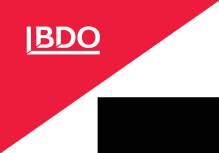


Implement the following tips to shine on your first day at work.
The moment has arrived for you to turn from a fresh graduate into a working adult. As your first day of work approaches, you can expect your nerves to be on overdrive. It is completely normal to experience the first day jitters; however, it is also important to make a good impression from day one in order to set the pace for a successful new chapter. By understanding and implementing some key workplace basics, you can go a long way to impress your new boss and colleagues, despite how anxious you might be feeling.
day before
• Know exactly where you will be based Find out where to report on your first day. Check the map on your phone and note down the directions to get there.
• Remember the name of your reporting supervisor Avoid showing up at the front desk looking clueless and disorganised. Know exactly who you are supposed to meet upon your arrival.
• Plan your journey Give yourself ample time to accommodate for unexpected bad traffic, MRT breakdowns, or bus delays. If you are unfamiliar with the area of where your office is located, consider also including additional time in case you get lost. If you are driving, figure out the nearest parking space. Take note that not every office building offers parking for those without season parking passes.
• Revise any specialised knowledge or skills Brush up on the specific skills you need for the job. Although you may lack experience, you should still have your theoretical knowledge to guide you.
• Research and read up about the company Refresh your memory and tune in to the company’s latest news. You can also check out their social media profiles, read the history of the organisation, their vision and mission, or what they are currently working on.
• Ensure you have enough work-appropriate attire Depending on the industry, some employers might be quite particular about their dress code. Check with your reporting supervisor in advance, and make sure you dress appropriately.
• Pack your bag the night before with essentials Essentials could include extra money, snacks, a notebook and a pen. Bring along a blazer or a jacket in case the office is cold.
• Establish your working hours
Although the stipulated working hours are stated in your contract, it will be good to confirm your lunch timing and how long it is.
• Keep your desk neat and tidy
Simply put, a clean desk is a clear mind. Not only does it leave a good impression, it helps boost your productivity as well.
• Take note of email protocols to adopt Find out if there is a particular signature file, salutation or sign-off. The tone of your email should remain formal and professional at all times.
• Observe meeting etiquette
For your first day, it might be awkward to openly participate in meetings. You should clarify beforehand whether your input would be welcomed, or if you are expected to sit and observe. Regardless, take meeting notes and use the time to learn more about what the company does.
• Take your time
This applies to various factors. In particular, do not feel pressured to be immediately familiar with your new surroundings. Ask questions to fully understand your task. It is the ideal time for you to break out of your shell and learn on the job.
• Bring extra cash
Always be prepared in case there are no ATMs nearby your office.
• Check in at the end of the day with your manager(s) Before leaving for the day, ask your managers if there is anything else they need your help with.
Embarking on your first day at a new job will likely have its challenges and awkward moments. The unfamiliar surroundings, people, and protocols can undoubtedly make you feel out of place. However, remember that this is just the beginning of your journey. As you continue to immerse yourself in your role and the workplace, things will gradually become more familiar, and those initial anxieties will transform into confidence. So, embrace the learning process, take it one step at a time, and rest assured that the first day is merely the first chapter of a much larger and rewarding adventure ahead.
To better prepare for your interview, learn the type of questions that are typically asked depending on the type of interview conducted

Also known as face-to-face interviews, this type of interview involves being asked a series of questions to evaluate your suitability for the job. Some companies prefer using several rounds of one-on-one interviews for different department heads to meet with the potential candidate before making their decision.
• Ask relevant questions to show your interest. Some examples include questions about the role and its day-to-day tasks, the work culture, or the career path
• Describe how the role aligns with your aspirations, career plans, and relevant interests
• Demonstrate specific examples of skills required for the role you are applying for, and discuss relevant transferable skills you obtained from school or work experience
• Body language is just as important as verbal communication. Maintain a decent level of eye contact throughout the interview, sit upright to exude confidence, and remember to smile

While video or virtual interviews can be seen as straightforward as signing in, turning on your webcam, and talking to your interviewer, they can be intimidating as there are potential technical pitfalls to navigate.
One factor is that each employer has a preferred platform. “Live” interviews generally make use of platforms such as Google Meet or Zoom, where you speak with your interviewer in real-time. In contrast, pre-recorded interviews require applicants to submit a video recording of themselves answering a predetermined set of questions.
• Practice makes perfect. Start getting used to appearing on-screen by switching on your computer’s webcam and recording yourself as though you are running through a practice interview
• When recording for a pre-recorded interview, ensure you do not come off as too rehearsed. Instead, try to “interact” with the recruiter who will be watching your video
• Set the scene by being appropriately dressed, and making sure that the area around you looks like a professional workplace
• Ensure your Wi-Fi connection has good signal strength so that the video conference does not drop midway through your interview. You can check this by streaming a video on YouTube
• Remember to look at the camera and make it seem as if you are making eye contact
• If you are taking the call on a laptop, remember to plug it in to a power source – you may be online longer than you think

Such interviews usually involve anywhere from three to eight interviewers – usually three for graduate interviews. They will likely consist of a mix of HR personnel, business managers, and some departmental specialists.
Do not be lulled into a false sense of security if such panel interviews are conducted virtually. They tend to be more rigorous and meticulous than individual interviews, and you will be juggling questions from multiple sources. Although this may sound overwhelming, the interviewers are there to find out the same information as at any other interview: whether you are a good fit for the company.
• Maintain direct eye contact with the interviewers. If the interview is in-person, answer each question by making eye contact with the respective interviewer. If it is held virtually, speak to the camera instead of the video feed on-screen
• Address the interviewers by name when speaking to them. Try to get their name cards at the beginning of a face-to-face session, and then arrange them in front of you according to the interviewers’ seating arrangement
• Stay calm if one of the interviewers looks bored. Given their different backgrounds, not every member on the panel may be interested in your response to a question asked
• If you happen to be asked the same question twice by mistake, do not second-guess yourself. Instead, keep to the same version of your story

These are mainly screening exercises, where employers check some basic information prior to scheduling a face-to-face or virtual interview. It is also to sift through suitable candidates early on in the recruitment process. The relative anonymity of a phone interview may allow you to speak to your interviewer without the stress of travelling to an unfamiliar place in professional attire. Nonetheless, do not let your guard down.
• Much of the impact you make comes through your voice, so sounding attentive and enthusiastic is important
• For reference, take note of the keywords in the questions as they are asked
• Do not be distracted by your surroundings or lose track of the conversation. As best as you can, avoid filler words such as “umm” and “uh-huh” or constant requests to repeat the questions
• Have your resume and completed application form next to you in case you need to refer to them during the phone interview
• Choose a conducive, quiet environment for the phone appointment to prevent background noise from ruining your session
Mainly used to assess your ability to analyse information. There is usually no right answer, and questions are aimed to test logic, critical thinking skills and creativity.
Opinion
Personal views are what interviewers are looking for when they ask such questions. These questions also tend to be important to assess if your values align with that of an organisation. There is also no right answer.
Questions of this sort look to evaluate your motivations, personality, and even the actions that result from that, and how it will affect the company. Be prepared to speak about past experiences, highlighting your resilience and adaptability. You can also demonstrate instances in which you worked well with others under challenging circumstances, such as tight deadlines, and kept them motivated.
Performance-based
These questions evaluate your individual behaviour, and give interviewers a glimpse into how you will perform in a role. Try using real-life examples of how you handled specific situations as it helps provide a better idea of how you will perform at work. You might want to use the STAR method when answering these questions as well.
The STAR method:
• Describe the Situation
• Explain your Tasks
• Describe the Actions you took
• Talk about the Results
Examples:
• How many White Rabbit sweets will I need to fill up the Shoppes at Marina Bay Sands?
• How will you describe a sandwich to someone who has never eaten one before?
Examples:
• What is your proudest achievement to date?
• What is your favourite management style?
Examples:
• Tell us about the time you failed
• Tell us about the time you assumed leadership of a team
Examples:
• Describe a time you made a mistake and corrected it
• How do you handle multiple tasks and tight deadlines?
Examples of tricky (and timely) interview questions
• Which of your achievements or experiences best demonstrate your key strengths?
• How do you see your career developing over the next few years ?
• You mentioned this role requires me to perform a particular task. Could you describe what this task entails?
• How do new employees joining your team generally progress? What would be a typical timescale?
• What sort of training does your organisation provide for its employees?
• Your competitors seem to be doing Y. Is it important for your company to be doing Z? How does this set you apart from them?
• What are some benefits I can get if I get hired?
• What does your company do?
• Can I apply for other positions in this company if I get hired?
• Do you monitor my emails and social media accounts?
• It was not stated in the job description, but can I work from home?
There is always a reason behind every question asked during job interviews.
While job interviews can be nerve-racking for you, the truth is that there is often also tremendous pressure on interviewers to get the right candidate for the job.
If you are worried that they are analysing your every word, remember that they are also worried that they cannot read you well enough. The secret is to know the unspoken intentions behind seemingly typical interview questions, and how to answer them accordingly.

1 2

“Does the candidate have the basic skills to get the job done?”
Recruiting and training new staff members can be expensive and time-consuming. As such, the greater your pool of skills, the greater the chance that you can hit the ground running as soon as you can.
Having the relevant skills for the job is no doubt much more appealing to recruiters than the prospect of grooming you from scratch.
What your interviewer may ask you
• Could you tell me about yourself?
• Tell us about your greatest strengths and weaknesses
do I answer this?
When asked to describe yourself, skip the biographical information. Instead, focus on your skill sets, recent work-related experiences and your most important achievements – and use them to explain why these make you the best candidate for the position.
When describing your strengths, relate them to the company or position you are applying for. Be sure to promote yourself through specific examples and portfolios.
As for your weaknesses, you should show that you have taken steps to counter them. Alternatively, you can express willingness to take opportunities to learn and improve yourself.
“Is the candidate really interested in this job?”
The last thing employers want is to hire someone who is unenthusiastic about the job and who may leave a few months after starting – or worse, pull out of the work arrangement right before starting work.
They also do not want to employ someone who will be unhappy in their role, so they will be looking out for genuine interest in the job during the interview.
What your interviewer may ask you
• Why do you want this job?
• Where do you see yourself in five years’ time?
How do I answer this?
Share your motivations for pursuing your chosen career path and how you were inspired by the industry and/or the organisation. Storytelling adds a human element to your response, making it persuasive and believable.
Questions on your expectations in career progression are typically asked to find out how committed you are to the job.
As such, it is important to research the kind of progression you could realistically expect within the industry and company.
Alternatively, you can also speak about the skills you would like to build upon if you get the job.

3 4 5
“Does the candidate have other interviews or job offers lined up?”
Recruiters are not just trying to meet their bosses’ expectations; they are competing with other companies for talent as well.
As a result, interviewers will want to know whether you are being courted by any other organisations so that they can decide how long they can take to evaluate their pool of potential candidates and possibly extend a job offer to you before someone else does.
What your interviewer may ask you
• Which other companies have you applied to?
• Which other positions are you currently interviewing for?
How do I answer this?
Do not be shy about talking about other roles that you have applied for. If they are similar to the one you are interviewing for, it shows your genuine interest and dedication. After all, recruiters want to see the consistency of your career aims. However, avoid pitting recruiters against each other just to get a better deal. Instead, admit that you have applied to other places as well, and give real examples that are consistent and relevant to the role on offer.

“How well will this candidate get along with colleagues and clients?”
Recruiters want to avoid hiring someone whom they suspect may compromise relationships between colleagues or clients.
As such, interviewees who come across as rude, cynical, difficult or arrogant will most likely be struck out from the list.
On the other hand, those with good interpersonal and communication skills will be favoured for the job.
What your interviewer may ask you
• Have you ever disagreed with a senior whose approach you felt was wrong?
• How would you manage conflicts with colleagues who may not agree with your work methods?
How do I answer this?
Instead of denying that you have ever been involved in any negative situation, just be as honest and authentic as possible. Conflicts and disagreements are regular workplace occurrences, and what is important is how you go about resolving and managing such situations.
Describe the situation, the reason for the disagreement, and the final outcome as diplomatically as possible. Ideally, you should describe a situation where things ended in a win-win.
However, if things do not end on a good note, it is not the end of the world. Your interviewers are also interested in assessing your ability to maintain your integrity.

“Does this candidate fit the company culture?”
Company culture varies from organisation to organisation, and how it resonates with your own values, goals and preferences will affect how comfortable you are in your work environment.
Someone who fits with the company’s culture will more likely be happier in the company, thereby producing better results at work. However, choosing the wrong candidate may lead to unwanted conflicts in the workplace.
What your interviewer may ask you
• What do you think about our company’s mission statement and values?
• What do you think are the core values an employee should have?
How do I answer this?
Needless to say, for you to respond to such questions, you need to have a good understanding of the values that the organisation stands for, along with its vision and mission. Always do your research beforehand – even before you apply for the role!
This is also a chance for you to ask the interviewer about the company’s work culture beyond what is showcased on their website to determine your fit for the role.
After the interviewer has answered your questions, take the initiative to describe your interests, beliefs and motivation, and explain how they align with the company’s culture.
Assessment centres are not reality TV shows – you will not be seen in the boardroom à la The Apprentice and you will not be the victim of an onscreen sacking, either. So do not feel obliged to behave like you are taking part in a television show.
You are put into a room with a group of strangers, asked to play games and then observed to see whether you will go through to the next round or if your progress ends there. The situation is ripe with uncertainty, and it sounds just like a scene from The Apprentice.
Unfortunately, that is where some participants at assessment centres take their cue from, and that is where they also come undone. Here is why being at an assessment centre is, frankly, not at all like being on a reality TV show.
First of all, and most importantly, there is usually more than one winner at an assessment centre – you are not in direct competition with the other candidates. You are being assessed against the employers’ criteria, not against each other, and it is important for you to show how well you can work in a team. In other words, you need to find a way to work together with your “colleagues” to achieve the goals and tasks set.
Secondly, remember that assessment centres are also a two-way street – this is your chance to evaluate a prospective employer and see if the shoe fits. Better to find out now than a few months down the line!
There are group tasks for you to complete.
You need to strike a balance between fitting in and standing out from the crowd.
You entertain a mass audience.
Your host reveals the rules of the game.
At some point, you will face a judge on the show.
You will need to get on the right side of the judge.
You are tempted into undermining your colleagues.
Graduate employers design their own assessment centres to test for skills and aptitudes that are right for their own organisations. However, most of these assessments typically contain similar elements and exercises. You can expect to do a combination of the following in most assessment centres:
• Group work exercises
• Presentations
• Aptitude and psychometric tests
• In-tray/e-tray exercises
• Case studies linked to the job function
Assessment Centres
There are group tasks for you to complete.
You need to strike a balance between fitting in and standing out from the crowd.
You entertain no one.
The task is described, but not the underlying rules.
You will probably never meet the people who write the assessment done on you.
You will be judged on how well you performed the tasks given to you. There is no boardroom “execution”.
The secret is to be who you are and get on with your colleagues.
Recruiters will assess you for a number of things, including how you demonstrate core graduate skills and competencies such as communication, teamwork and problem-solving skills.
The group setting also makes it easier for them to evaluate how well you work with others, how you influence and persuade those around you and how others respond to you.
The good news is that these exercises make it much easier for you to showcase a broader range of skills and competencies than you can at a one-on-one interview, though most assessment centres will also include at least one personal interview.
This is why some employers feel that assessment centres are a fairer and more effective way to select graduates than traditional interviews. Feeling worried? Do not be! We will show you how you can get past these exercises and even have some fun in the process!
not lose concentration
It is going to be a long and tiring day, so try to make sure you have a good night’s sleep beforehand! You will need to stay alert and engaged the whole day.
Even if you are assured that the informal food and drinks do not play any part in the selection process, you should be careful not to gorge yourself. It is best to assume that if you let your hair down too far, someone will notice
Get your hands dirty
Do not stand back and turn your nose up. Group exercises are designed to see how well you work with others, so make sure you take part. Be enthusiastic and make an effort, whatever the task. Besides, concentrating on the task at hand will help you forget your nerves.
Be professional
Arrive on time and look the part. Be friendly but polite. The assessment centre is partly a social exercise, so do chat with the other candidates during breaks and over lunch. Be prepared to initiate conversations. While it is fine to make small talk with assessors, do not be too familiar with them.
not fake it until you make it
BBe yourself, but be the most positive version of yourself. Try to relax and behave naturally. You might even find it is possible to enjoy yourself despite the inevitable nerves. Do also remember that a smile is more likely to make a better impression than a face frozen in fear!
You know you are on track when:
• You have achieved a mix of taking charge and taking a back seat
• At the end of the day, you realise you actually managed to enjoy yourself
Things are not going so well if:
• You do not meet anyone, fellow candidates and assessors, whose company you enjoy
• You walk away feeling suspicious, judged and anxious
Psychometric testing is a fair and equitable way of recruiting candidates, so what can you expect from it?
Graduates who apply to a big organisation have a higher chance of encountering a series of psychometric tests as part of the application process. These tests are impersonal, standardised, and objective assessments designed to assess an applicant’s cognitive abilities, as well as their behaviour in a workplace setting.
Psychometric tests can be administered at different stages; after submitting your application form, alongside a first interview, or at a later stage as part of an assessment centre.
Aptitude or ‘ability tests’ measure your potential to form conclusions based on logical thought processes, your numeracy, and literacy. These tests are usually set under timed conditions and you will have a few minutes to answer each question.
Examples
• Numerical
Quizzes that test basic mathematical skills and ability to interpret data, graphs, charts or statistics
• Verbal reasoning
Explore your ability to understand and evaluate written information
• Non-verbal reasoning
Geared to reveal spatial awareness and ability to spot patterns
• Logical reasoning
A way to showcase your ability to draw conclusions from basic information
• Problem-solving
Determine your ability to identify mistakes accurately
These aim to identify your personality traits, thus providing an employer with insight into your motivations, interests, and preferred working style, and whether these align with the company’s culture and the requirements of the role. Do not second-guess your answers and think about what the employer wants to see. Such questionnaires assess consistency in responses, so be honest.
Examples
• Myers-Briggs Type Indicator (MBTI), Dominance, Influence Steadiness and Conscientiousness (DISC)
The best way to approach psychometric tests is to practise and become familiar with the typical formats they come in, and the way questions are asked. It also helps you improve your speed and accuracy, and identifies areas in your ability tests that need improvement. You can find such tests on Google or drop by your school’s career services to see if they have any available.
To accept or not to accept a particular job offer, that is the question.
Your job hunt is finally paying off, and you have received some job offers. What if some aspects of the job are not up to your expectations; whether it be a smaller-than-expected remuneration package, or having to work on weekends? Perhaps that means you should wait for a better offer. However, the economic uncertainty is breathing down your neck and in the back of your mind, you feel as if you might have wasted the time and energy you have invested into the job hunt process. Here are some factors you can consider that might help you come to a decision.
you should accept
You will get the experience you need
You do not have a clear idea of what your dream job is
On occasion, the job is almost identical to the dream job you had in mind, barring a few aspects that do not appeal to you.
The role might not be your dream job in your dream company, but it is a stepping stone that is worth taking.
The harsh truth is that financial needs can sometimes force your hand and cause you to take an offer you are not too enthusiastic about.
Taking a job can help keep your finances buoyed and put you in a better place for when you start your job hunt again in the future. Additionally, you will have better flexibility and stable finances.
It is common to only have a vague idea of what your dream job is. Consider being adventurous and trying out jobs that may not initially pass off as your dream job. Take up the offer that best suits your present likes and dislikes.
This exploration will give you a better sense of what your dream job may be, while providing you the time and experience you need to refine your career goals.
You have a solid plan leading to your dream job
You know what aspects of a job will make you miserable
There is no value in the job for you
If you have done thorough preparation and have a comprehensive job search plan with a solid timeline, you can choose not to accept the offer.
However, you might need to crunch the numbers and figure out a budget for yourself to see you through the duration of the job search. Aside from ensuring that your resume and cover letter are well-prepared, all that is left is to work towards getting a role in your dream company.
By turning down an offer, you most likely have a clear idea what the right job is and company culture for you. A solid understanding of the factors that are must-haves are paramount in guiding you through your career path.
Jobs should always add value to you in a meaningful and purposeful way. Thus, you should avoid applying and accepting a role that could make you miserable.
In certain circumstances, the initial job description might be completely different to what was described in the interview. Weigh the pros and cons, and see if there is still a silver lining to accepting that particular offer.
While stuck in this dilemma, assess your priorities and compare them to your career goals.
Ajob offer is a signal of your success. It means you have lived up to a potential employer’s expectations and are good enough to be offered a job. It also translates to financial security and another step closer to attaining your dreams. With no second thoughts, you may be inclined to say yes.
However, there is a lot more to the process than you think. Accepting a job offer leads to another round of formal processes. It might also lead to a realisation that the employer or the role is not suitable for you, or you disagree with the hiring terms and conditions. In such situations, you will need to practise proper etiquette to make sure you do not burn any bridges when you decline the offer.
In most cases, recruiters will make the job offer through an email or a phone call. However, job offers – whether conditional or otherwise – are not considered formalised until they are produced in writing, such as an offer letter.
Once an offer letter is signed, it is a binding contract. Make sure to go through the printed details thoroughly and check that everything is as you have discussed with the recruiter.
Pay attention to:
• Job title
• Salary and benefits (including travelling, phone and entertainment allowances)
• Additional incentive compensation
• Employee education
• Probation period
• Notice period (the length of time between resigning and your last day of work)
• Hours of work per day or week
• Holiday, sick pay entitlements and insurance
• Starting date
If a recruiter hands you an offer letter early, do not feel pressured to sign it on the spot. Instead, ask for some time to go through the document before reverting.
It is alright to nitpick the specifics as you go through an offer letter. If there are points you do not understand or are different from the agreement made during an earlier discussion, be sure to clarify with the employer as soon as you can. If you are applying into a graduate programme or scheme, check if your offer is conditional on gaining a specific degree classification. This means you are temporarily accepted and will only be confirmed upon receiving a particular grade or degree.
If everything goes well and you are keen on the job, go ahead and sign your acceptance. This is sufficient in most cases, but some employers may require you to write a short acceptance letter or email formally accepting their offer to join the company. Turn to your career advisors if you need help with this.
Attribute your success to those who have helped you along the way as well, such as the contact who recommended the opening to you, and your referees. Send them a simple thank-you note over email to show your appreciation. You can also ask for further advice on how to prepare for your first day on the job.
On the off-chance you find you are not suited for the role, be sure to decline politely in the form of a letter expressing your intentions and why you have decided to decline the offer. Responding will help prove your integrity as a responsible job-seeker and employee. Thank the recruiters and interviewers for their time as well. Be honest and polite, and always keep your tone professional. If handled properly, job declinations can become good networking opportunities.
Sometimes you may even receive an offer before you even begin your job hunt. This is common for those who have been interning over the years, and impressed your ex-employers.
In such cases, do not drag the offers for too long without getting back to the recruiter.
Multiple job offers indicate your competence, so it is a good problem to have. It also means tactful management of your recruiters.
If all your offers are in, you are left with comparing them and making a decision. Compare the salary, consider training and progression opportunities, health benefits, additional compensation, and the office culture. Choose the offer with the best opportunities that you are most comfortable with.
• List down the criteria to prioritise what is important to you and your career goals
• Compare them against your job offers Tips!
If you have an offer but also have more interviews lined up, it will require you to stall or time before responding to the offer. You can nudge your second recruiter a little as well.
Most employers will not mind giving you the extra time. If the recruiters you have interviews lined up with are unable to give you an earlier interview or verdict, you will have to make a decision on whether you want to accept the first offer or not.
Do not renege your contract. Once you sign and accept a contract, it is unethical to change your mind and/or join the recruitment processes of other companies. Remember to be professional when discussing and negotiating, and do not pit them against each other.
Other no-gos include signing and accepting multiple offers, but not turning up on the first day, as well as delaying your response to multiple job offers for a long time to compare your prospects without informing the recruiters who are waiting for your decision.
So many job o ers!







Discover how we empower you to take your career into your own hands.
We take ownership of our professional and personal growth journeys.
We are an innovative, winning team.
We create a positive impact in our community.
A combination of good grooming habits and thorough preparation are key factors that could land you that all important position.
After a long and gruelling application process, it is finally time for you to tackle the interview with your prospective employer. Breaking down the run-up to the interview into a series of manageable chunks and actions can help a lot. Aside from keeping up your grooming habits, here are some ways you can thoroughly prepare for your big day.
One week before Face-to-face interview + video interview
Keep your dress code in mind
Figure out how to look the part of an impressive candidate
Whether it is virtual or physical, your interview is an opportunity to show how you are a good fit for the company. Maintain your appearance by making sure your attire is clean, fitted, and pressed. Cover up any tattoos if you have any, and make sure your teeth are stain-free.
Prepare everything you need in advance
Have everything ready to go, so you will not rush the next day.
Hang your interview outfit out in the open so you will not have to waste time stressing out about what to wear on the day itself.
Do not forget to pick a handy, compartmentalised document bag or folder to store your stuff in. Prepare two additional printed copies of your resume for additional interviewers who might show up unannounced too.
Depart for your destination. Arrive at the interview venue with plenty of time to spare
Traffic can have a strange way of going against you when you need to get somewhere in a hurry. Leave early to arrive at the location before your appointed time. Remember that when it comes to job interviews, arriving “on time” is tantamount to arriving late.
Arrive at the premises and get comfortable with your surroundings or log on to the interview platform and get comfortable with the platform to decrease your initial stress and get into a positive frame of mind
If your interview takes place virtually, practise how you would connect with your interviewer over the camera, such as making eye contact with the camera to speak instead of only focusing on the video feed.
Meet and greet the interviewers and treat the interview as a meeting rather than a one-way
The interviewers will begin with an overview of the company and the role you are being interviewed for. They will also briefly explain the interview structure. This preamble is the most “non-judgmental” part of the interview, so enjoy it and use the opportunity to ask questions.
Demonstrate your skills and experience you have learnt from various sources
Introductions are then followed by the most time-consuming part of the interview: questions to find out your competency and whether you have the motivation to do a good job.
Finally, you will get a chance to ask your own questions. In some instances, you may also be given a short test to complete before or after the interview. This is usually to establish the level of your skills pertinent to the job, or is a generic evaluation of your preferred working style. Follow the instructions carefully, and work out how much time you need to allocate to each part of the test.
It is normal to feel overwhelmed during the transition from graduate to working adult. However, prioritising your mental health and well-being is critical in the long run.
Mental health is an integral part of your life, yet it is not freely discussed in the workplace. It is not limited to mental health issues, such as depression or anxiety, but the absence of mental health simply means the absence of positive characteristics. For instance, in a professional setting, a positive characteristic for mental health is a good work-life balance.
Fortunately, there is rising mental health awareness and more graduates are turning to employers who offer a good work-life balance and mental health support. There are multiple ways to manage your mental health at work, whether you are working from home or in the office.
Aside from dealing with being the new boy or girl in the office, you feel the need to get up to speed with your new job. In turn, you might not have as much experience as your peers around you, and you are pushing yourself to complete a list of tasks given by a certain deadline.
Although the offer of help is typically extended to new hires, you will still likely feel as if you are buried under a mountain of work. This overwhelming feeling will likely be accompanied by constant flitting from task to task as you finish one and try to decide what to focus on next.
Instead of succumbing to the emotion, make “to-do” lists. You will be able to get your thoughts in order and feel accomplished everytime you check something off that list.
Keep your “to-do” list simple and specific. Include a time frame for every task and reward yourself every time you meet it.
Remember to tick them off when completed.
We cannot deny that gossip does offer an outlet for entertainment. It even provides an opportunity for you to get to know your new coworkers better. However, it can cause conflicts and disrupt team harmony if you are not careful.
If you are facing issues with a colleague at work, speak directly to the person. This will reduce miscommunication – which often results in frustration and poorer mental health – and may lead to a quick resolution with minimal stress. Consider getting your supervisor or manager involved as a mediator if required.
Diplomatically avoid such situations by smoothly changing the subject, and focusing on ‘non-gossip’ bits of the conversation. You can also consider steering away from the topic by revisiting a previous talking point. If that fails, simply walk away and concentrate on your work.
Exploring a new place over the weekend and letting a part of your mind rest is a break. But a five-minute jaunt to the kitchen or pantry for a slice of cheese or chips constitutes a break, as well. A few minutes taken here and there will be enough to let you unwind and destress a little before you jump back to the demands of your “to-do” list. To ensure you are getting enough “me time” to keep yourself mentally buoyed and healthy, though, you can schedule 25-minute work blocks, with five-minute breaks in between.
Scrolling through the news feed and reading something unrelated to your work. Alternatively, you can sit still for a few minutes, or take a walk around the office.
Looking at little personal touches at the desk you are assigned in the office can help you destress when working life threatens to overtake you. These little decorations can help you re-centre yourself and recall positive memories that will keep your mental health up. Remember to check with your company on any guidelines they might have.
If decorations are allowed, take note to not clutter your desk with too many pictures or reminders of your hobbies. At the end of the day, you are still a working professional in a corporate space.
Decorating your desk with a pillow for comfort, or a shawl or a jacket for warmth. Other options include framed inspirational quotes to motivate you, or even pictures of your pets and family.
Enhancing wellness through workshop and activities
At SIM, we believe that healthy, well-balanced and engaged individuals are more likely to do well in life.
Our Student Care team of the Student Development Division regularly organises programmes to encourage healthy living, wellness, stress management, and soft skills workshops that will help you be life-ready.
For some of you who may be feeling overwhelmed or facing challenges such as managing your studies or adjusting to a new environment, our qualified counsellors are ready to offer support and guidance.



If you would rather speak to a peer, our passionate SIM Peer Mentors look forward to lending a listening ear in a safe space.
Specially curated activities and events at the Student Wellness Centre are designed to help you relax and unwind.
We are located at Block B Level 2 B.2.11 and the operating hours are from Monday to Friday between 1pm – 5pm (excluding public holidays).




Building healthy, nurturing and supportive relationships
SIM Peer Mentors have a mission to promote a culture of care and support. We would like to promote wellness and be a dependent pillar for the Student Body of SIM.
• Be the eyes and ears to students who are in distress/need help and be the bridge between the latter and the counsellor
• Befriend and provide support to new students in their transition to life in SIM


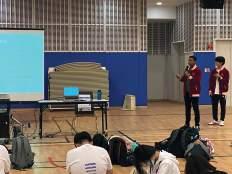
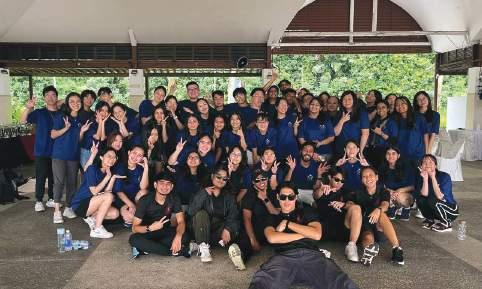
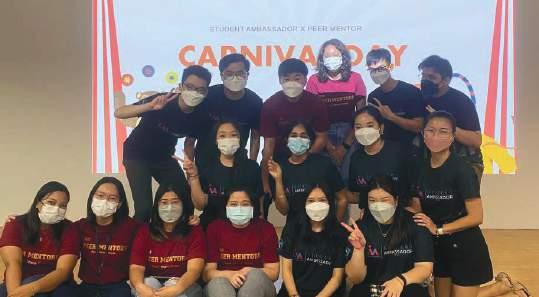



For students who have excelled in academic studies, sports or arts-related accomplishments, the SIM Scholarship & Bursaries Admin team offers the Scholarship as a recognition of your achievement. The Scholarship not only serves as an encouragement, but it also acts as a beacon that potential employers gravitate towards and helps facilitate career successes for our students.
We also believe everyone deserves a chance to get the best possible education at SIM. If you are seeking financial assistance, we offer SIM GE Bursary and SIM GE Crisis Fund to students who are genuinely in need of financial support.
For more information, please visit our websites at:
• Scholarship – https://www. sim.edu.sg/degrees-diplomas/ admissions/scholarships
• Bursary - https://www.sim.edu. sg/degrees-diplomas/admissions/ bursaries-and-financial-aids/simglobal-education-bursary
• Crisis Fund - https://www. sim.edu.sg/degrees-diplomas/ admissions/bursaries-and-financialaids/sim-ge-crisis-fund.
Let us hear from two of our SIM Scholars on their experiences.

Bachelor of Arts (Events Management), SIM-UOS SIM GE Scholar (Sports & Artistic Talent)
Share your experience on how you work towards obtaining the scholarship.
I have been playing volleyball since I was 13 years old and have represented Singapore in many international competitions, including the South East Asia (SEA) Games.
I applied for the Sports Scholarship with the hope that it would bolster my resume for the future. Additionally, having the scholarship would help me with my tuition fees and allow me to focus more on my studies and sports.
How has the scholarship further developed/helped you?
Prior to receiving the scholarship, I actively participated in the Volleyball Club at SIM, where I honed my leadership skills by taking up the role of captain from my teammate. I dedicated myself to attending all training sessions to enhance my skills and contribute to the team’s pursuit of championship titles in upcoming competitions.
Receiving this scholarship has motivated me to further develop as a leader and a team player. It has enabled me to dedicate more time to my training and studies.

Why did you apply for the scholarship?
Adapting to online classes was not the easiest task for me, but I strived to cope well with the class arrangements by actively participating and interacting with lecturers. This effort eventually led to my excellence and the completion of my diploma with outstanding results. It motivated me to challenge myself by applying for a bachelor’s degree scholarship, despite the competition among many other SIM students.
At the same time, as an international student here in Singapore, I always wanted to help my parents by attaining this scholarship to ease their burden on financing my studies and I felt this is a starting point for me to make them proud.
Share your experience on how you work towards obtaining the scholarship
My experience as the President of the Student Council in high school might have been ages ago, but I cannot ignore the fact that it was something that brought me here. I was then awarded with a Diploma Scholarship for my Diploma. I continued the journey by joining Student Ambassador, which was the first ever community that I managed to be involved in. I was appointed to the organising committee for Student Ambassador’s main events such as the Appreciation Event, and was also chosen to be the group leader for Teambuilding activities.
Through these experiences, I managed to pick up leadership and soft skills, and valuable lessons in event planning. These transferable skills helped with my promotion to the role of the Student Ambassador’s Vice President in 2022. By managing the “Engagement Department”, I had the opportunity to lead on key activities such as the recruitment drive, mass training, and Teambuilding.
In addition to the above, there are two major things I was focusing on –the essay and interview preparation. I worked on the preparation for the essay early and gave myself a deadline so that I can submit it before the actual closing date. To prepare for the interview, I consulted my seniors who had previously applied for the scholarship. They were willingly giving me suggestions and tips on acing the scholarship application, and I am so thankful to be able to meet these inspiring people as well.
That was definitely intense for me, but at the end of the day, I managed to prove that I am able to manage my time properly between my studies and my CCA involvements.
Has your scholarship further developed or helped you?
The Scholarship has allowed me to be the best version of myself in both academic and leadership involvement, being able to represent SIM and international students from different countries.
With the scholarship, I am involved in many more CCA contributions. Currently, as the President of Student Ambassador, General Secretary of SIM International Affairs Society (IAS), Head of Admin for the University of Birmingham Student Council and active member of SIM Peer Mentor. Through these various CCA involvement, I have been given the opportunity to explore different tasks. They have been a great highlight of my journey here in SIM, where I had a chance to meet peers from different university partners and to contribute back to society.
As I am approaching the end of my undergraduate study, it has been such a blessing to be awarded this scholarship and I am deeply grateful to SIM for giving me such opportunities.
Lifelong learning is important to keep yourself relevant in the new normal.
Today’s recovering economy has intensified competition in the job market like never before. Many soon-to-be graduates are experiencing pressure to distinguish themselves from their peers, who are also actively seeking jobs. In such competitive times, postgraduate education has emerged as a popular strategy to gain an edge in the job market. While many students typically consider pursuing a Master’s degree or PhD as postgraduate options, there are other considerations.
Here’s a brief overview:

SIM offers a suite of post-graduate programmes. Blended learning is an approach to education that combines online lesson delivery and interaction with traditional face-to-face (F2F) classroom learning. It requires the physical presence of both the teacher and student, with some elements of student control over time, place, path, or pace. While students still attend physical lessons with a teacher, the lesson delivery is combined with computer-mediated activities for students to do more independent learning with guidance
• Graduate Certificate in Business Analytics
• Graduate Certificate in Business Sustainability
• Graduate Certificate in Software Automation
• Graduate Certificate in Industry 4.0
• Graduate Certificate in Business Digitalisation
• Graduate Diploma in Business Analytics
• Graduate Diploma in Human Resource Management
• Graduate Diploma in Digital Marketing
• Graduate Diploma in Industry 4.0
• Graduate Diploma in Business Sustainability
With the Graduate Diploma in Business Analytics / Human Resource Management, you can apply Singapore University of Social Sciences (SUSS): Master of Management, Master of Analytics and Visualisation, Master of Human Capital Management.
• Entitled of 10 units of Credit Recognition with CGPA 2.4 and above, and meeting institution’s admission requirements
With the Graduate Diploma in Business Analytics, you can apply to: University of Wollongong (UOW): Master of Computing (Data Analytics)
For more information on the above programmes, go to https://www.simge.edu.sg/programmes/programmelisting/?discipline=business-programmes&academic_ level=postgraduate
“My purpose for upskilling is to close skill gaps in today’s world by accelerating my learning curve and developing business insights through a data-driven approach.
The GDBA programme provides a framework for students to comprehend, formulate, and apply relevant data science modelling techniques and tools for business analytics problems. This was a good fit for my learning needs. With my newfound knowledge and hands-on experience, I can now handle, visualise, and predict data more efficiently, as well as present analysis in a more professional manner.
If you are looking to learn how to handle big data and investigate business operational data, the GDBA programme is a great place to start.”
Gayathriy Rajoo Muthukrishnan
Graduate Diploma in Business Analytics Class of 2022
Manager, Operational AI Singapore

The University of London (UOL), established in 1836, stands as one of the oldest and largest universities in the UK. As a federation of 17 prestigious members, including UCL, LSE, and Goldsmiths, UOL has a rich academic heritage.
University College London (UCL), founded in 1826, is a leading multidisciplinary institution, securing the 9th position in the 2024 QS World University Rankings. UCL oversees the academic direction for SIM’s Master of Science in Professional Accountancy and in Accounting and Financial Management programmes. The former caters to chartered accountants, while the latter is tailored for non-accounting graduates.
The London School of Economics and Political Science (LSE) holds the 45th position in the 2024 QS World University Rankings. LSE excels in offering a diverse array of undergraduate and Graduate Diploma programmes in Economics, Management, Finance, and the Social Sciences. Individuals with a degree can enroll in a one-year Graduate Diploma in Business Analytics, Data Science, Economics, Finance, or Management. This programme can serve as a precursor to advanced studies at the master’s level or act as a bridge for those transitioning into a new and related field.
Goldsmiths, renowned for its pioneering work in creative applications for computing technology, is ranked 75th in the UK according to The Complete University Guide 2024. Goldsmiths leads a suite of one-year Graduate Diploma and six-month Graduate Certificate programmes in Machine Learning and Artificial Intelligence, Mobile Development, Web Development, and User Experience. These specialised programmes are designed for IT graduates seeking to enhance their skills and earn a prestigious qualification from Goldsmiths, University of London.
“I thoroughly enjoyed my course of study. The programme was well-designed and allowed me to acquire new knowledge about the industry. The quality of the learning resources and student support provided at the SIM campus was extremely impressive. I have to say my favourite module was “Global Issues for the Finance Professional“. It challenged me to think about how the evolving world and economies could impact the decisions we make as accountants. Not only does it add value to my academic journey, it complements my professional skills. I am glad I made this move to obtain a postgraduate qualification.
To my fellow accountants who are keen to pursue a postgraduate degree, it is never too early or too late.
Follow your dreams and be prepared for a challenging but highly rewarding academic experience with SIM-UOL.”
Loo Sing Tien MSc in Professional Accountancy Class of 2021 Finance Manager (APAC) ACI Worldwide
“The completion of my BSc in Business and Management with SIM-UOL laid the groundwork for my postgraduate studies. As the world becomes increasingly data-driven, I took on an additional Graduate Diploma in Business Analytics. I like how the subject guides provide a good overview of the modules. It gave me a clear indication of what I had to learn.
The programme helped to widen my perspective on business analytics; the sound knowledge of transforming data into insights to scale up business objectives drove me to pursue a career in this area.
For those who intend to embark on this journey, prepare yourself for the academic rigour and always remember to be consistent.”
Jeraldine Ng Graduate Diploma in Business Analytics
Class of 2021 Systems Analyst Synapxe

The University of Birmingham was founded in 1900 and is now one of the largest in the UK, offering degrees across a wide range of disciplines. It is a major centre of research and academic study with an established international reputation for excellence.
• Ranked 91st in the world (QS World University Rankings 2023)
• Ranked the 14th university in the UK (The Complete University Guide 2023)
• Most frequently targeted university for graduate employment among the UK’s top employers (The Graduate Market in 2021, High Fliers Research)
• Gold rating for consistently outstanding teaching and learning in the UK (Teaching Excellence Framework 2017 – 2020)
• A member of the prestigious Russell Group of 24 UK research-led universities
A range of full-time postgraduate programmes are available at SIM. These are developed, fully taught and awarded by the Birmingham Business School, and the school is triple-crown accredited by the AACSB, AMBA and EQUIS in recognition of its quality and rigorous standards in business and management education.
Master of Science
• Financial Management
• International Business
• Management
For more information on the above programmes at SIM, go to https://www.simge.edu.sg/programmes/programmelisting/?finder_university=university-of-birmingham
“My prior studies provided me with profound insights into financial analysis, modelling, and international treasury management. This knowledge has been essential for addressing complex financial challenges and conducting in-depth research in finance.”
Stephanie Louisa UOB MSc Financial Management “MSc Financial Management Prize” awarded by UoB
“Throughout the programme, I have acquired a great deal of fresh understanding about how international business functions in many industries. This has increased my eagerness to become an entrepreneur with the ability to expand the company internationally.”
Sindy UOB MSc International Business “John Samuels Student Prize” awarded by UoB

Grenoble Ecole de Management (GEM) is one of the few leading French business schools globally recognised for its expertise in the management of technology and innovation. Through its own education model and innovative pedagogy, GEM is a centre for experimentation, study and creation to train qualified professionals to overcome the challenges of tomorrow.
• Ranked 38th in the QS World University: Masters in Management Rankings 2022
• Ranked 40th in the Financial times European Business School Ranking 2022
• Ranked 8th in the Le Point, French Business School Ranking 2022
GEM is affiliated with the Grenoble Chamber of Commerce and Industry; triple-crown accredited by the AACSB, AMBA and EQUIS, and regularly ranked by major international economics newspapers and magazines. The following programmes are currently offered at SIM.
Master of Science
• Fashion, Design and Luxury Management
• Management in International Business
For more information on the above programmes, go to https://www.simge.edu.sg/programmes/programmelisting/?finder_university=grenoble-ecole-de-management

The University of Stirling is an international university with a pioneering spirit, and a global reputation for high-quality teaching and research. They are passionate about creating impact in everything they do. The University of Stirling has been awarded five starts in the areas of Teaching, Employability, Internationalism, Facilities and Inclusiveness by QS Stars University Rankings 2023.
• Ranked 4th in Scotland and 43rd in the UK for research impact (Times Higher Education Research Excellence Framework (REF) 2021: Impact Scores rankings)
• Top 10 in the UK for Postgraduate Student Experience, Teaching and Learning, and Top 20 in the UK for Postgraduate Student Support (Postgraduate Taught Experience Survey 2021)
• Ranked 49th in the UK (The Guardian University Guide 2022)
• Ranked 50th in the UK (The Complete University Guide 2023)
“The programme comprises insightful classes, international exposure and company visits. These helped me to better define my professional goals.”
Kyden Choong Zhi Min Treasury Consultant, Software Company Master of Science Management in International Business Class of 2020
“It has been delightful to learn from our professors who are experts in their fields. They often dive into specifics in order for us to understand key concepts better and treat us as managers and consultants and not just students.”
Pratik Patwari Student
Master of Science Management in International Business Class of 2021
The University of Stirling is home to the Dementia Services Development Centre, an international centre of knowledge and expertise dedicated to improving the lives of people with dementia, through advising governments and academic institutions in the UK, Europe, China and Australia on dementia-related issues, and training and consultancy for the private sector. There is international focus and opportunity to learn from a variety of researchers, practitioners and businesses.
Master of Science
• Global Ageing







































































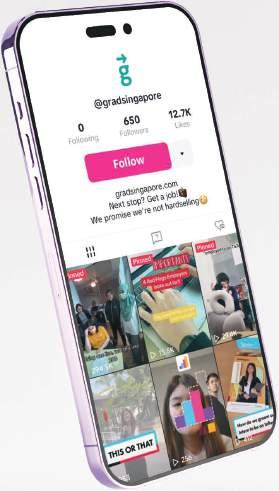

BAKER TILLY TFW LLP
600 North Bridge Road, #05-01 Parkview Square, Singapore 188778
TEL (+65) 6336 2828
WEB https://www.bakertilly.sg/english/careers/graduate-recruitment/ EMAIL hr@bakertilly.sg
LOCATION(S)
• Singapore
• International - Baker Tilly’s global network spans across 145 territories
BUSINESS FACTS
Baker Tilly Singapore is a full-service accounting and advisory firm that offers industry-specialised services in assurance, tax, deal advisory, governance and risk, restructuring and recovery, outsourcing and corporate secretarial.
We are one of the 10 largest accountancy and business advisory firms in Singapore and a member of Baker Tilly International, a top 10 global network of independent accounting and business advisory firms in 145 territories with 41,234 professionals. As of December 2022, the combined worldwide revenue of independent member firms is reported at US$4.7 billion.
With a rich heritage since 1954, Baker Tilly Singapore today operates as a 350 strong firm with 27 partners/principals/executive directors and ranks among the top 10 largest accounting and business advisory firms locally.


@bakertillysg
@bakertillysg
@bakertillysingapore
We are committed to and passionate about providing quality services to our clients while at the same time developing our people’s potential. We provide a nurturing environment where our people have opportunities to realise their aspirations and goals.
We welcome highly motivated and committed individuals who share our core values to join us. We are committed to our values of leading by example, delivering quality services with integrity, communicating openly, acting ethically, and fostering a community built around civic responsibility and teamwork.
CAREER SECTOR(S)
• Accountancy and Financial Management
• Consulting
• Tax
APPLICATION PROCEDURE(S)
Check out the available roles and apply online at www.bakertilly.sg/english/careers/ graduate-recruitment/

Name: Marie Lee
Degree: Bachelor of Science (Honours) in Accounting and Finance, SIM-UOL, 2010
Role: Director, Restructuring and Recovery Department
Employer: Baker Tilly TFW LLP
I am the Director of Restructuring and Recovery at Baker Tilly Singapore and I am a Licensed Insolvency Practitioner. I take appointments such as Receiver & Manager, Scheme Manager and Liquidator of companies and my role is to safeguard assets and maximise recovery for stakeholders. I also manage a team of professionals specialised in restructuring and insolvency.
I was fortunate enough to land an interview with the Partner leading the practice. The interview had a natural flow to it, which is what I now look for when I meet fresh graduates. Our line of work requires substantial client servicing, so I usually pay attention to how adept the interviewee is at communication and expressing themselves. I usually consider it a good interview if it felt more like a conversation or a discussion, rather than a Q&A – that is where the magic is.
THE HIGHS AND LOWS
My job provides a lot of networking opportunities, which is great for building a strong professional network of peers, mentors and collaborators. These can sometimes yield pleasant surprises as well – for instance, I had the opportunity to attend a Blackpink concert in the National Stadium Executive
Suites by a stroke of luck after making an acquaintance at a work event. Client management can be intimidating at the beginning, but I take pride in being able to understand my clients’ needs and offer novel solutions for the most complicated issues. I still find myself intrigued by what a new day will bring at work because I am still avidly pursuing knowledge and honing my experience every day.
MY HAPPIEST MOMENT AT WORK
Victory comes especially sweet when we grind through the night to meet deadlines and produce a superb deliverable at the end of the journey. Nothing compares to the moment when I received a pat on the back from my Partner and the stakeholders recognising the effort I put in.
SOME ADVICE
My advice is to list down what sustains your interest such that you are able to derive satisfaction in a job and remember to have a balance in your professional and personal lives. Lastly, never turn down any opportunity and always take each of them as a lesson to refine your list until you can find what you didn’t know you were looking for.








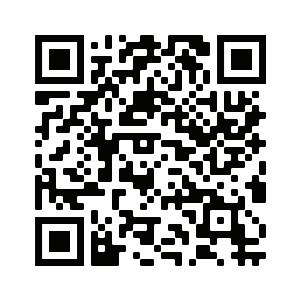



BDO LLP
600 North Bridge Road, #23-01, Parkview Square, Singapore 188778
TEL (+65) 6828 9118
WEB www.bdo.com.sg/en-gb/careers
EMAIL career@bdo.com.sg
LOCATION(S)
• Singapore
• International – BDO’s global network extends across 164 countries and territories
BUSINESS FACTS
Established in 1972 and a member firm of BDO International since 1979, we offer a full range of services including audit, tax, business advisory and cybersecurity. Our clients are from most fields of business in Singapore and include subsidiaries of multinational corporations, and public and private companies operating in diverse industries, including transportation and publishing.
Some of our clients are well-known, while many are medium-sized emerging businesses. Our size is at its optimum, it is large enough to enable us to provide the full range of world-class services, and at the same time, allows clients to benefit from our breadth and depth of expertise as the world’s fifth largest accounting network.
Simply, our services begin with your needs. Whether you are a start-up or an established enterprise looking to take the next step up, we are well-equipped to assist you from ground level to the highest stratosphere of success.

CHANGI AIRPORT GROUP (SINGAPORE) PTE LTD
Singapore Changi Airport, PO Box 168, Singapore 918146
WEB careers.changiairport.com


@changiairport
@changiairport
LOCATION(S)
• Singapore
BUSINESS FACTS
Changi Airport Group is first and foremost, a service company. We operate Singapore Changi Airport, the world’s most awarded airport, and help develop and manage airports worldwide. Our people are the most important asset in our mission to becoming the world’s leading airport company, growing a vibrant air hub in Singapore, and enhancing the communities we serve worldwide.
We aspire to build a company where ordinary people achieve extraordinary results.
Our people are passionate about for service and are committed to teamwork, integrity, and excellence. Working with our colleagues and partners, we deliver innovative services and create a world-class experience for our customers.


@BDOSingapore
@bdosg
@bdo-singapore
@BDO_Singapore
JOB ROLES
• Accounting
• Business Administration
• Finance
CAREER SECTOR(S)
• Accountancy and Financial Management
• Consulting
APPLICATION PROCEDURE(S)
If you believe you have the right values and attitude in wanting to be part of our big BDO family, send in your detailed resume and a recent photograph to career@bdo.com.sg
@Changi Airport Group
@changiairport
@changiairport
We also offer a unique work environment in a global, vibrant and exciting community. With a set-up of multiple businesses, we present challenging work and diverse opportunities for our employees to further their personal and professional growth, provide a platform for them to develop and see through their ideas and contributions, making an impact on our organisation and the communities we serve locally and globally.
CAREER SECTOR(S)
• Aviation, Transport and Supply Chain
• Hospitality, Leisure and Tourism
APPLICATION PROCEDURE(S)
Apply online at careers.changiairport.com



One Raffles Quay, North Tower, Level 18, Singapore 048583
TEL (+65) 6535 7777
WEB www.ey.com/en_sg/careers/ go.ey.com/graduate-careers
EMAIL gr.eys@sg.ey.com
LOCATION(S)
• Singapore
• International – More than 700 offices in over 150 countries
BUSINESS FACTS
EY exists to build a better working world, helping create long-term value for clients, people and society and build trust in the capital markets.
Enabled by data and technology, diverse EY teams in over 150 countries provide trust through assurance and help clients grow, transform and operate. Working across assurance, consulting, law, strategy, tax and transactions, EY teams ask better questions to find new answers for the complex issues facing our world today.
JOB ROLES
At EY, we believe that a better working world starts with our people. You’ll have the tools, learning, flexibility, and diverse and inclusive culture to get your career off to the best possible start.
We hire across academic disciplines. From business, accountancy and computer science to science, technology, engineering, and math (STEM) majors and more, we invite all students to apply our graduate positions and internships now for an exceptional experience that will unlock doors anywhere.



@EYCareersSingapore @eysgcareers
@EY
These are the teams you can join:
• Assurance
• Tax
• Strategy and Transactions
• Consulting
CAREER SECTOR(S)
• Accountancy and Financial Management
• Banking and Financial Services
• Consulting
• IT and Technology
APPLICATION PROCEDURE(S)
Explore our latest internship and graduate positions and apply online at https://go.ey.com/graduate-careers

BUILDING THE BEST VERSION OF HIMSELF AND A BETTER WORKING WORLD FOR ALL
Name: Samuel Kan Wei Hao
Degree: Bachelor of Science (Honours) in Accounting and Finance, SIM-UOB, 2022
Role: Assurance Senior (Financial Services)
Employer: EY
As an Assurance Senior, I perform audits on financial statements to provide companies, investors and regulators with a peace of mind and confidence in the annual reports that our clients release to the public. This involves a thorough examination of reports, interacting with clients to ensure that their accounting methods are in accordance with the relevant reporting standards and documenting these procedures in our workpapers. In addition, part of my role involves providing guidance and support to junior associates when they encounter challenges in their work. Drawing from the knowledge gained in my earlier years as an associate, I assist them in developing a deeper understanding of their tasks and working to achieve the audit objectives as a team.
The interview and selection process comprised of two stages, one with the recruiter and another with a senior manager. Among other behavioural and skills-based questions, I was asked about why I wanted to join the Financial Services team, which provides services to clients in banking and capital markets, insurance, wealth and asset management, as well as private equity sectors. In response, I explained my deep-rooted interest in financial markets and elaborated on the knowledge that I acquired about the finance industry and markets during my time in university. I believe this gave me an edge over other candidates.
I enjoy taking on new challenges, such as being tasked to audit sections that I have not completed before. These new experiences allow me to learn different methods and techniques in audit and enhance my understanding of how different departments in a company interact with one another. While it might involve a steeper learning curve at the initial stages, EY managers and seniors are very helpful and always willing to guide me on any doubts and queries.
MY HAPPIEST MOMENT AT WORK
The sense of accomplishment and satisfaction after successfully completing an engagement is one that I truly look forward to after working tirelessly on an engagement for several weeks. After conquering major milestones, I would usually celebrate with my colleagues over dinner or drinks to relax before continuing to work hard for the next engagement.
SOME ADVICE
I would say that internships are invaluable in giving you a preview of a day in the life of auditors and the everyday tasks that they perform. It will also help you prepare for the challenges that lie ahead. While the journey is demanding, my experience increased my conviction that a career at EY will allow me to build a solid foundation for a rewarding career and deepened my drive to persevere through challenges to realise both personal and professional growth.

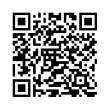




1, Joo Koon Circle, #13-01, FairPrice Hub, Singapore 629117
WEB https://www.fairpricegroup.com.sg/join-us/ EMAIL ta@fairpricegroup.sg
LOCATION(S)
• Singapore
BUSINESS FACTS
FairPrice Group was established in 2019 through the formation of four entities comprising NTUC FairPrice, Kopitiam, NTUC Foodfare and NTUC Link, with the purpose of making life better for all and to fulfil a vision of being a leader in everything food. FairPrice Group looks to optimise the resources of all four social enterprises and leverage their respective strengths to put customers first, provide better value for all and to make everything about food easy.
With an extensive network of close to 570 touchpoints, FairPrice Group seeks to provide an integrated array of products and services, from groceries, ready-tocook, and ready-to-eat offerings, to on-premise meals, food take-aways, and a rewards programme that delivers personalised and delightful experiences.
For more information on FairPrice Group, visit www.fairpricegroup.com.sg.
@FairPrice Group
JOB ROLES
• Corporate Function roles in Human Resources, Internal Communications, Finance, Marketing, Procurement, Legal, IT, Customers, etc.
• Digital & Technology roles such as Data Analytics, Business Analytics, Software Programmings
• Retail Specialisation roles such as Category Portfolio & Business Planning, Branch Operations, Pharmacy Operations, Shopper Experience & Strategic Store Layout
• e-Commerce roles such as Visitors Analytics, e-Merchandiser
• Supply Chain roles in Warehouse Operations, Automation
• Food Specialisation roles such as Research & Development, Nutritionist
• Internship in various functions and many more!
CAREER SECTOR(S)
• Fast-Moving Consumer Goods (FMCG)
• Healthcare and Pharmaceutical
• Hospitality, Leisure and Tourism
• IT and Technology
• Supply Chain
APPLICATION PROCEDURE(S)
Visit FairPrice Group career page (https://www.fairpricegroup.com.sg/join-us/) and apply to the available roles in the respective entities.

Name: Wong Pei Yi
Degree: Bachelor of Business (Marketing), SIM-RMIT, 2019
Role: Executive, Category Portfolio and Business Planning
Employer: NTUC FairPrice Co-operative Ltd
As a Category Assortment Executive in the FairPrice Category Portfolio and Business Planning department, I oversee the micro space planning of our supermarkets. My primary duty is to analyse product data, customer behaviour, and store layout to gain insights and pinpoint areas to improve. Effective communication is crucial in my role, as we work closely internally to discuss and propose viable solutions to help the business grow. Essentially, I am provided with an opportunity to enhance my planning and decision-making skills through the utilisation of technological solutions.
Securing a job during this difficult time was a challenge, however I was presented with an opportunity through a referral from a friend. Nonetheless, it is vital to maintain the right working attitude, which not only helped me gain recognition from my friend but also led her to present me with this opportunity.
Additionally, my marketing background equipped me with the experience and knowledge to distinguish myself. Besides that, one of my favourite pastimes is to visit and browse at supermarkets, allowing me to observe the store visually prior which helped me to suggest improvements during my interview.
To increase my chances of being selected, I made sure to thoroughly understand the company, and fully grasp the job description which enabled me to be more confident communicating during my interview.
I find it most enjoyable and fulfilling is the opportunity to learn every day alongside like-minded colleagues which keeps me constantly motivated. In addition, I have the autonomy to independently make decisions and plan before presenting my proposal to stakeholders.
One of the challenging aspects I faced when I first started was the steep learning curve such as lacking comprehensive skills to fully utilise Excel which is vital to my daily task. This was frustrating to me, however I look at it in a positive light as climbing this steep learning curve not only expanded my knowledge, and skill sets but also enhanced my value as a team player.
One of my proudest and happiest moments is during my performance appraisal, where both my manager and assistant manager shared positive feedback and recognition. I demonstrated the ability to learn and execute tasks efficiently with minimal supervision, which resulted in me being entrusted with more responsibilities within a short period of time.
Be genuine, and never be afraid to make mistakes – not just at work but also in life. Mistakes, rejections and failures make you stronger, and help you grow. These bumps on the road will help you reach your destinations! Also, when it comes to work, hard skills are important, but so are soft skills such as communications and teamwork. As it not only helps you during the interview, but also when you are working. So work on both, and make yourself a valuable individual to compete against others.
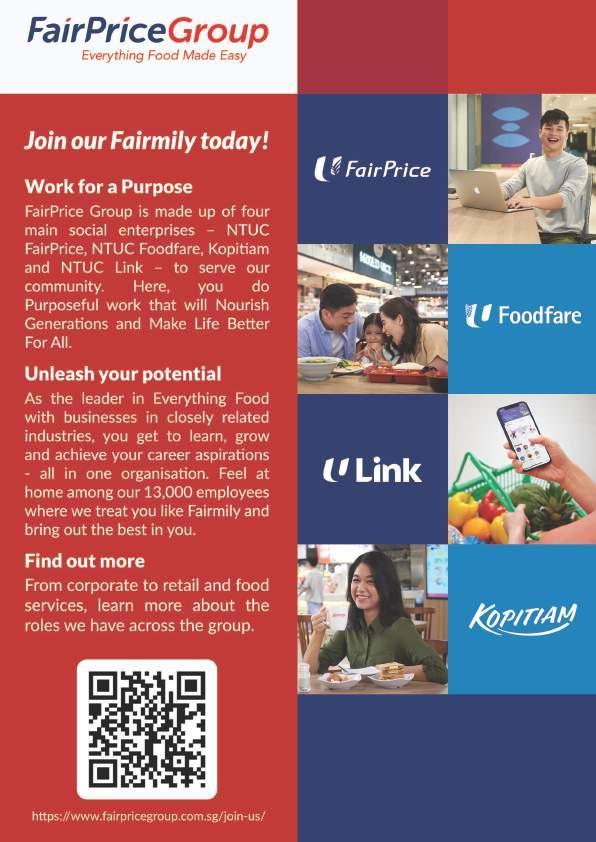

Nexus@One-North, North Tower, 1 Fusionopolis Link, Level 5, Singapore 138542
TEL (+65) 6812 4000
WEB https://careers.cognizant.com/sg/en/job/42840/Graduate-Analyst-2024
LOCATION(S)
• Singapore
• International
BUSINESS FACTS
Cognizant engineers modern businesses. As one of the largest global professional services companies we help clients modernise technology, reimagine processes and transform experiences so they can stay ahead in our fast-changing world. Together, we are improving everyday life. As the partner they turn to execute on their digital priorities, we focus on IoT, AI, Software Engineering and Cloud—the technologies that are changing the nature of business.


@Cognizant
@cognizant
@Cognizant
@Cognizant
JOB ROLES
• Software Engineering
• Business Analytics
CAREER SECTOR(S)
• Consulting
• IT and Technology
APPLICATION PROCEDURE(S)
Apply to: https://careers.cognizant.com/sg/en/job/42840/Graduate-Analyst-2024.
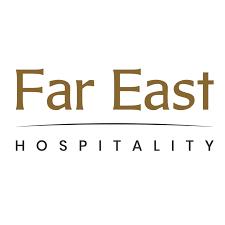
6 Eu Tong Sen Street #04-28 The Central, Singapore 059817
TEL (+65) 9824 3629
WEB https://www.fareasthospitality.com/en/joinus EMAIL hr@fareastorchard.com.sg
LOCATION(S)
• Singapore
BUSINESS FACTS
Far East Hospitality is an international hospitality owner and operator with a diverse portfolio of ten unique and complementary brands of hotels, serviced residences and apartment hotels, including Oasia, Quincy, Rendezvous, Village, Far East Collection, A by Adina, Adina Hotels, Vibe Hotels, Travelodge Hotels and Collection by TFE Hotels.
Far East Hospitality owns more than ten hospitality assets and operates a combined portfolio of over 16,500 rooms under its management across close to 100 hotels and serviced residences in ten countries – Australia, Austria, Denmark, Germany, Hungary, Japan, Malaysia, New Zealand, Singapore and Switzerland, with more in its development pipeline.


@Far East Hospitality
@fareasthospitality
@Far East Hospitality Management (S) Pte Ltd
@Far East Hospitality
JOB ROLES
• Senior/ Guest Service Executive
• Reservation Sales Executive
• Assistant/Sales Manager
CAREER SECTOR(S)
• Hospitality, Leisure and Tourism
APPLICATION PROCEDURE(S)
Submit your application through https://careers.fareast.com/go/ Hospitality/3503501/ or email your resume, salary expectations, and contact details to hr@fareastorchard.com.sg.

GRANT THORNTON SINGAPORE PRIVATE LIMITED
8 Marina View, Asia Square Tower 1, Singapore 018960
TEL (+65) 6805 4110
WEB https://www.grantthornton.sg/careers/students-and-graduates/ EMAIL career@sg.gt.com
LOCATION(S)
• Singapore
• International
BUSINESS FACTS
Grant Thornton is a global professional service network of over 68,000 people in over 130 countries. Our team in Singapore is growing rapidly and we know this success is made possible by our people. That is why we make sure our people have the right tools and environment to thrive.
Each individual at Grant Thornton Singapore is empowered to be themselves within an inclusive team. Our supportive structure gives our people the autonomy to shape their careers and drive positive change in the firm. It is an exciting time to join us as we grow with organisations of all sizes and industries in Singapore, across the region and in the world.
JOB ROLES
• Visit this link to see internship roles: https://www.grantthornton.sg/careers/current-vacancies/?q=intern
• Visit this link to see graduate positions: https://www.grantthornton.sg/careers/current-vacancies/?q=fresh%2bgraduate#filters

NCS PTE LTD
Ang Mo Kio Street 62, NCS Hub, Singapore 569141
TEL 6556 8000
WEB www.ncs.co/opportunities
EMAIL reachus@ncs.com.sg
LOCATION(S)
• Singapore
• International - NCS has offices in more than 20 cities globally: Australia, China, Brunei, India, Malaysia, Philippines, Sri Lanka
BUSINESS FACTS
Be part of making the extraordinary happen NCS’s mission is to bring people together and harness technology to advance communities. As a leading technology services firm, operating across Asia Pacific in over 20 cities, our diverse 12,000-strong workforce delivers large-scale, missioncritical projects for governments and enterprises locally and regionally. Our NEXT capabilities of digital, cloud, platforms as well as our core offerings in Applications, Infrastructure, Engineering, and Cyber Security provide end-to-end technology solutions and services to our clients.
Your role is only the beginning
Join NCS and experience a collaborative work environment where you can develop and grow your career through well-defined career tracks. As part of our Nucleus Graduate Programme, you can work on impactful projects with a team that is passionate about making a difference. Through certification programmes, professional coaching and purposeful projects, you will be on your way to attain a Master of Technology with NUS-ISS or industry-recognised certifications. You will also have access to multiple ‘playgrounds,’ such as Project Teams, and Centersof-Excellence based in Singapore, Shenzhen, and Melbourne.

@grantthortonsg
CAREER SECTOR(S)
• Accountancy and Financial Management
• Banking and Financial Services
• Insurance and Risk Management
• Legal Services
APPLICATION PROCEDURE(S)
Look for our current vacancies at our career page: https://www.grantthornton.sg/ careers/students-and-graduates/. If you are interested in this exciting opportunity, click on “Apply for this position” in the career page. Please complete the Job Application Form and indicate Job ID ## in the Job ID field. An email will be sent to you within 10-15 minutes for you to submit your CV/resume.


@NCSGroupSG
@ncsgroupofficial
@NCSGroup
@NCSGroup
@ncsgroupofficial
JOB ROLES
• Software Engineer
• Infrastructure Engineer
• Data & Analytics Consultant
• Cyber Consultant
• Communications Engineer
• Sales Consulting
CAREER SECTOR(S)
• IT and Technology
APPLICATION PROCEDURE(S) Apply online at www.ncs.co/opportunities
80 Robinson Road, Level 20, Singapore 068898
TEL (+65) 6317 6600
WEB https://sg.havas.com/careers/ EMAIL talent.sg@havas.com
LOCATION(S)
• Singapore
• International – We operate in more than 100 countries around the world
BUSINESS FACTS
Havas Singapore is part of Havas, one of the world’s largest and most integrated communications groups. Our Singapore operations are made up of a network of award-winning agencies comprising Havas Media, Arena Media, Socialyse, Havas Red, and BLKJ Havas, offering services across media, social, PR, and creative. Operating under the vision and mission to make a meaningful difference to brands, businesses, and people, we are committed to building a diverse culture where our people can grow, thrive, and feel that they belong. We have gained recognition for our efforts, winning Best Agency Culture (Gold) at Marketing Interactive’s Agency of the Year Awards 2023, and are a Great Place To Work® Certified™ agency. Since 2015, we have had an unbroken streak of Agency of the Year (AOTY) wins across disciplines.
Globally, Havas employs 20,000 people in over 100 countries, adopting a fully integrated model through 70+ Havas Villages around the world – the Havas Village offers a truly unique proposition, where cross-discipline teams work together, ensuring agility and a seamless experience for our clients. We bring our expertise to work with organisations that are solving the biggest challenges our world faces today.


@HavasVillageSingapore
@HavasSingapore
JOB ROLES
• Integrated Media Executive
• Digital Media Executive
• Account Executive (Advertising, PR & Social)
• Junior Copywriter
• Junior Art Director
CAREER SECTOR(S)
• Media and Advertising
APPLICATION PROCEDURE(S)
Candidates who wish to find out more about opportunities may reach out to our talent team at talent.sg@havas.com.
Name: Rachel Lim
Degree: Bachelor of Business (Marketing), SIM-RMIT, 2018
Role: Manager, Business Development and Marketing Employer: Havas Singapore
As a Business Development and Marketing Manager at Havas Singapore, I am responsible for managing new business opportunities in the Singapore market. This involves everything from pitching, client engagement to business reporting. On the marketing front, I help to shape the agency’s branding and communication strategy across various marketing channels, including public relations and social media.
I began my career with Havas five years ago, starting in client servicing for our creative business. As a fresh graduate then, I appreciated the refreshingly candid and two-way interview process, and how I was assessed not simply by qualifications but also my personality and aptitude. Since then, I have worked on numerous interesting clients and campaigns, and was eventually offered the opportunity to transition into my current role in business development for our media business.
THE HIGHS AND LOWS
One of the best aspects of being in Havas is having mentors who exemplify dedication and passion. They do not simply talk the talk, but actively guide and empower you to navigate challenges, both personally and professionally. Furthermore, there is hardly a boring day when you get to tackle business challenges of all natures — from FMCG, gaming, finance, automotive to entertainment.
Conversely, the fast pace and ever-evolving nature of the industry is as much unpredictable as it is exciting. It’s crucial to get very comfortable with multi-tasking, keep abreast of changing trends, and adopt a highly adaptive problem-solving approach.
MY HAPPIEST MOMENT AT WORK
Rather than pinpointing a single highlight, my greatest sense of fulfilment comes from reflecting on my career journey and growth over the years. Challenges that once seemed insurmountable have evolved into today’s experience. Furthermore, I have also made countless memories with some of the most passionate and interesting people I get to call colleagues and close friends. From epic agency parties to overseas trips, nights out, and everything in between — it is the meaningful connections along the way that truly make the journey worthwhile.
SOME ADVICE
Do not be afraid to embrace and explore new things as more often than not, experience is the best teacher. Mistakes along the way are inevitable, but how you bounce back from them is what really matters. Last but not least, it is also essential to marry passion with stamina.



GROUPM
18 Cross Street, China Square Central #04-01/03, Singapore 048423
WEB https://www.groupm.com/ EMAIL talentacquisitionsg@groupm.com
LOCATION(S)
• Singapore
• International – Offices across APAC, North America, Europe, Middle East & Africa and Latin America
BUSINESS FACTS
GroupM is the world’s leading media investment company responsible for more than $50B in annual media investment through agencies Mindshare, EssenceMediaCom, Wavemaker, and m/SIX, as well as GroupM Nexus that comprises of the world-leading addressable specialists who provide media activation services and proprietary solutions that offer addressable solutions across Search, Social, Programmatic, Ad Ops and eCommerce. GroupM’s portfolio also includes Data & Technology (Choreograph), Investment and Services, all united in vision to shape the next era of media where advertising works better for people. By leveraging all the benefits of scale, the company innovates, differentiates and generates sustained value for our clients wherever they do business.
JOB ROLES
We are hiring for media / digital executives. You will be involved in the whole media planning or execution process inclusive of reporting and analysis of media campaigns.
CAREER SECTOR(S)
• Media and Advertising
APPLICATION PROCEDURE(S)
Apply through our Career Site and a Recruiter will get in touch with you! https://jobs. jobvite.com/groupm-apac/jobs/locations?r=Singapore

Name: Shu Ting
NATIONAL HEALTHCARE GROUP
Degree: Bachelor of Business Management, SIM-UOB, 2022
3 Fusionopolis Link, #03-08, Nexus @ one-north, Singapore 138543

MY JOB
TEL (+65) 6496 6000 WEBSITE https://corp.nhg.com.sg/HMAP/Pages/default.aspx Linktr.ee/NHGHMAP
Role: Performance Executive Employer: GroupM
I am part of the GroupM Nexus social team, specializing in the implementation of campaigns across prominent social media platforms, including Meta, TikTok, and LinkedIn.
LOCATION(S)
• Singapore
BUSINESS FACTS
On a daily basis, I collaborate closely with the agency team, focusing on the implementation of campaigns and continuous optimization aligned with the brand’s advertising strategy. My role also involves comprehensive reporting, ensuring that campaign performance metrics are tracked and leveraged to enhance future strategies.
HOW I GOT MY JOB
The National Healthcare Group (NHG) is a leader in public healthcare in Singapore, recognised at home and abroad for the quality of its medical expertise and facilities. Care is provided through an integrated network of seven primary care polyclinics, acute care and tertiary hospitals, national specialty centres and business divisions. Together they bring a rich legacy of medical expertise to our philosophy of integrated patientcentred care.
Navigating the interview process presented its challenges, particularly during the panel interview with department heads, where a series of scenariobased questions were posed. The interview was not only focused on my professional experiences but also problem-solving abilities and suitability for the role.
NHG’s vision is “Adding Years of Healthy Life”. This vision goes beyond merely healing the sick to the more difficult and infinitely more rewarding task of preventing illness and preserving health and quality of life. With some 22,000 staff, NHG aims to provide care that is patient-centric, accessible, seamless, comprehensive, appropriate and costeffective.
THE HIGHS AND LOWS
As the Regional Health System (RHS) for Central- North Singapore, it is vital for NHG to partner and collaborate with stakeholders, community advisors, and voluntary welfare organisations.
I thrive in a collaborative and dynamic team environment where collective efforts contribute to delivering exceptional work for our clients. Given the fast-paced nature of our industry, the constant opportunities to learn and acquire new skills regularly serves as a motivator for me.
Together with our patients, their families and caregivers, we aim to deliver integrated healthcare services and programmes that help in Adding Years of Healthy Life to all concerned.
EMAIL healthcaremap@ttsh.com.sg FACEBOOK @HealthcareMAP INSTAGRAM @nhghmap TIKTOK @wearenhg
JOB ROLES
One of the challenges I faced revolved around adapting to the frequent changes within the industry. Initially, it took some time for me to become accustomed, but I manged to overcome this hurdle and developed resilience that helps me to navigate the dynamic landscape of the industry.
Management associates
CAREER SECTOR(S)
MY HAPPIEST MOMENT AT WORK
• Healthcare and Pharmaceutical
APPLICATION PROCEDURE(S)
Please submit your application to:https://corp.nhg.com.sg/HMAP/Pages/default.aspx
You may also visit our career page at https://corp.nhg.com.sg/Careers/Pages/ WorkingatNHG.aspx for other job opportunities
Completing the Media Masters training program was a pivotal milestone for me which gave me a great sense of achievement. The diverse rotations equipped me with valuable skills for a seamless transition into my full-time role within the company. Furthermore, working collaboratively within the team to overcome challenges brings great satisfaction, and it makes the work that we do more rewarding.
SOME ADVICE
Embrace continuous learning and stay adaptable, it will challenging at times, but there is opportunities for growth.

INCOME INSURANCE LIMITED
WEB https://www.income.com.sg/

@incomeinsurance
@incomeinsurance
@incomeinsurance
LOCATION(S)
• Singapore
BUSINESS FACTS
Income Insurance Limited (income Insurance) is one of the leading composite insurers in Singapore, offering life, health and general insurance. Established in Singapore to plug a social need for insurance in 1970, income Insurance continues to put people first by serving the protection, savings and investment needs of individuals, families, and businesses today. Its lifestyle-centric and data-driven approach to insurance and financial planning puts the company at the forefront of innovative solutions that empowers the people it serves with better financial well-being.
Additionally, income Insurance is committed to being a responsible business that champions the environment and builds stronger communities by supporting financial inclusion, education for youth-in-need and seniors’ well-being. For more information, please visit www.income.com.sg.
CAREER SECTOR(S)
• Insurance and Risk Management

INLAND REVENUE AUTHORITY OF SINGAPORE (IRAS)
Revenue House, 55 Newton Road, Singapore 307987
TEL 1800 356 8300
WEB https://www.iras.gov.sg/careers
EMAIL careers@iras.gov.sg
LOCATION(S)
• Singapore
BUSINESS FACTS
Taxes for Nation Building – The Inland Revenue Authority of Singapore (IRAS) acts as an agent of the Government and provide service in the administration of taxes. IRAS also represents Singapore internationally, on matters relating to taxation. Being an award recipient of the Public Sector Transformation and Pro-Enterprise Initiative Awards, we consistently strive to be the leading revenue authority in the world. Our commitment to the public can be shown through efforts of digitalisation to improve our tax systems, administering, or disbursing various enterprise support schemes – such as Progressive Wage Credit Scheme, Jobs Growth Incentive and many more.
In terms of work culture and environment, our organisation strongly believe in nurturing talents to ensure they are well equipped for current and future needs. With a nurturing environment and a growth mindset mentality, talents can easily seek assistance from their colleagues while having numerous resources to aid in honing their skills.


www.facebook.com/irassg
@irassg
@iras_sg
@Inland Revenue Authority of Singapore (IRAS)
@irassg
@irassg
CAREER SECTOR(S)
• Accountancy and Financial Management
• Public Sector
APPLICATION PROCEDURE(S)
Interested individuals can visit Careers@Gov (Filter by Agency) to apply for positions that aligns with their skill sets!


Name: Kelvin Tan
Degree: Bachelor of Science in Computing and Information Systems, SIM-UOL, 2005
Role: Senior Assistant Director (Infocomm Division)
Employer: IRAS
Presently, I am engaged in project development and assume multiple roles within my team. At times, I function as a Scrum Master, and at other times, I take on responsibilities of a Business Analyst, Solution Analyst, or even a developer. I work closely with various stakeholders to identify, and proactively mitigate any potential risks or impediments that could affect future developments.
My journey in IRAS has been incredibly fruitful and marked by memorable experiences. In the Infocomm Division, we operate at the forefront of technology.
I have had the privilege of participating in significant core transitions. While these transitions have presented challenges, it is inspiring to witness the seamless collaboration between the business and IT departments, uniting as a cohesive team.
Beyond professional milestones, I truly cherish the personal connections forged with colleagues. Many of them have evolved from acquaintances into genuine friends and buddies. Navigating life and work together has created a bond that extends beyond the workplace.

One of the most significant projects I have been involved in was the digitalisation of how IRAS communicates with taxpayers. This two-year endeavour posed the challenge of managing the expectations of eight divisions and aligning them towards a common goal. However, the transformation we achieved, which encompassed implementation of email and SMS notifications, redesign of notices, and enhancement of digital services, proved to be highly rewarding.
Name: Steven Halim
Degree: Bachelor of Science (Honours) Computing and Information Systems, SIM-UOL, 2019
Role: Manager (Infocomm Division)
Employer: IRAS
As a software engineer at IRAS, I develop enterprise systems to streamline and optimise Singapore’s tax administration. Presently, I am a member of the Property Tax team within the Inland Revenue Interactive Network (IRIN) 3, our core tax administration system project, specializing in fullstack development and technical design.
Creating efficient systems for internal and external customers constantly motivates me to strive to improve our systems. What adds further satisfaction is receiving positive feedback from taxpayers and internal colleagues acknowledging that our team's work has facilitated their taxrelated responsibilities or daily tasks.
A significant challenge in my role is harmonizing user requirements, technical system designs, security considerations, and overall system performance, all within the constraints of project deadlines. Nonetheless, the opportunity to make a meaningful impact remains a driving force behind my work.
I am proud to have been part of a multi-year project, having successfully concluded IRIN3 Phase 2 of our core tax administration system project, and now transitioning to Phase 3. Phase 2 entailed a comprehensive overhaul of the Stamp Duty system, marking IRAS' inaugural foray into cloud-native systems. Notably, it stands as the first system within the public service to leverage Microsoft's Azure Cloud.
Beyond work, I value the strong familial culture at IRAS and am grateful for the close friendships I have cultivated with my colleagues over the past four years.

KPMG SERVICES PTE. LTD.
12 Marina View, #15-01, Asia Square Tower 2, Singapore 018961
TEL (+65) 6213 3388
WEB www.careers.kpmg.com.sg
EMAIL sg-fm-kpmgcampus@kpmg.com.sg
LOCATION(S)
• Singapore
• International – 143 countries and territories
BUSINESS FACTS
A bold new world powered by dynamic new possibilities.
At KPMG in Singapore, we believe in transforming today’s ideas into tomorrow’s growth — through the power of insights.
Part of a global network of professional services firms operating in 143 countries and territories, our diverse team of dedicated problem solvers across the audit, tax and advisory services are connected by a common cause — to define and deliver positive impact for people and planet.
Leveraging advanced technology and global expertise, our solutions provide sustainable, future-ready strategies that help turn risk into opportunity and create lasting value for our clients.
Our open and dynamic work environment inspires new ways of thinking, fusing together innovation and ingenuity to create new capabilities for a more resilient tomorrow.


@KPMG Singapore
@kpmgsingapore
@KPMG Singapore
JOB ROLES
• Audit Professional
• Management Consulting Consultant
• Tax Consultant
CAREER SECTOR(S)
• Accountancy and Financial Management
• Consulting
APPLICATION PROCEDURE(S)
Interested candidates may apply for available positions by visiting our career portal at sg-fm-kpmgcampus@kpmg.com.sg.

Name: Toh Xueliang
Degree: Bachelor of Science in Accounting and Finance (First Class Honours), SIM-UOL, 2012
Role: External Audit Senior Manager (Financial Services)
Employer: KPMG Services Pte Ltd
At KPMG in Singapore, my journey as an Audit senior manager is often presented with challenges that provides opportunities for one to adapt and learn on the job. My primary responsibilities require me to collaborate with various teams and functions to provide consistent, high-quality audits as well as bringing added value to our clients. This includes sharing best practices to better suit their business needs.
HOW
KPMG in Singapore was a firm I really wanted to work for upon graduation. After a persistent two-year effort, I finally clinched an opportunity for an interview!
At the start, I was expecting the entire interview to be a strict assessment of technical knowledge only. However, what really impressed me was that the interview questions delved into aspects beyond the academic and technical realms. The interviewer was also interested in getting to know me as an individual and what motivated me as a fresh graduate. At KPMG in Singapore, our selection process considers a blend of competencies that align with our core values.
THE HIGHS AND LOWS
Guiding and witnessing the growth of engagement team members through coaching is something that I find really fulfilling. We work hard together as a team and celebrate even harder together, and this is what keeps me going at work.
I also find satisfaction in helping our clients solve their problems by offering solutions tailored to their business needs. However, the journey is not without its challenges. Upholding audit quality has become increasingly demanding due to the ever-more stringent requirements in the industry. Although challenging, this is also what keeps the professional journey exciting due to the dynamic nature of each day.
MY HAPPIEST MOMENT AT WORK
I was given the opportunity to be part of the champions group to support engagement teams in their transition onto the new audit workflow. I was also humbled to be awarded the best Audit Quality Support. This recognition significantly bolstered my self-confidence. It served as a powerful motivator, propelling me to consistently excel in my performance and take charge of my day-to-day actions and behaviour.
The coaching journey in KPMG in Singapore has also been enriching — from being coached as an associate to becoming a fellow co-manager.
SOME ADVICE
Cultivating a mindset of continuous learning is pivotal for success. You may encounter challenges, and the learning curve might be steep. Yet, if you adopt an open-minded approach, actively seize each opportunity for growth, and embrace them positively, you will have ample chances to demonstrate your capabilities and thrive at KPMG in Singapore.
























MARINA BAY SANDS
10 Bayfront Ave, Singapore 018956
WEB https://www.marinabaysands.com/careers.html
EMAIL recruitment@marinabaysands.com
LOCATION(S)
• Singapore
BUSINESS FACTS
About Marina Bay Sands Pte Ltd Marina Bay Sands is Asia’s leading business, leisure and entertainment destination. The integrated resort features Singapore’s largest hotel with over 2,200 luxurious rooms and suites, crowned by the spectacular Sands SkyPark and iconic infinity pool. Its stunning architecture and compelling programming, including state-of-the-art convention and exhibition facilities, Asia’s best luxury shopping mall, world-class dining and entertainment, as well as cutting edge exhibitions at ArtScience Museum, have transformed the country’s skyline and tourism landscape since it opened in 2010.
Marina Bay Sands is dedicated to being a good corporate citizen to serve its people, communities and environment. As one of the largest players in hospitality, it employs more than 11,000 Team Members across the property. It drives social impact through its community engagement programme, Sands Cares, and leads environmental stewardship through its global sustainability programme, Sands ECO360.


@MarinaBaySandsCareers
@MarinaBaySands
@MarinaBaySands
@MarinaBaySands
JOB ROLES
• HR Officer
• Finance Executive
• Marketing Executive
• Butler
• Call Center Agent
• Front Office Agent
• Paiza Executive Host
• Paiza Service Executive
• Customer Relations Executive
• Bartender
• Entertainment Usher / Ticketing (Part-time)
• Special Events Helper (Part-time)
• Visitor Experience Agent (Part-time)
CAREER SECTOR(S)
• Hospitality, Leisure and Tourism
APPLICATION PROCEDURE(S)
Interested candidates can apply online through Marina Bay Sands Career Website: https://www.marinabaysands.com/careers.html.

Name: Ayleen Lim
NATIONAL HEALTHCARE GROUP
Degree: Bachelor of Science (Honours) in Accounting and Finance, SIM-UOL, 2015
3 Fusionopolis Link, #03-08, Nexus @ one-north, Singapore 138543
TEL (+65) 6496 6000

Role: Audit Assistant Manager
Employer: Marina Bay Sands
WEBSITE https://corp.nhg.com.sg/HMAP/Pages/default.aspx Linktr.ee/NHGHMAP
As an Assistant Audit Manager in Marina Bay Sands, I am tasked to plan, lead and perform regulatory and operational audits. Through these audits, the team evaluates the operating effectiveness of controls in place against operational best practices and regulatory requirements. We assist business in identifying any gaps in controls and/or any areas for improvement to streamline processes.
LOCATION(S)
• Singapore
BUSINESS FACTS
The National Healthcare Group (NHG) is a leader in public healthcare in Singapore, recognised at home and abroad for the quality of its medical expertise and facilities.
Care is provided through an integrated network of seven primary care polyclinics, acute care and tertiary hospitals, national specialty centres and business divisions. Together they bring a rich legacy of medical expertise to our philosophy of integrated patientcentred care.
My interview and selection process consisted of three rounds. The first round was a call with a HR recruitment team member to better understand my profile and to brief me on the role’s requirements. The second round was with the hiring manager and an Assistant Manager to have an in-depth understanding of my skills, experience and thought process, as well as to share more about the role and the department. The final interview with the department’s Director was unique as I needed to showcase the aptitude and attitude of a team leader to set myself apart from the other candidates.
NHG’s vision is “Adding Years of Healthy Life”. This vision goes beyond merely healing the sick to the more difficult and infinitely more rewarding task of preventing illness and preserving health and quality of life. With some 22,000 staff, NHG aims to provide care that is patient-centric, accessible, seamless, comprehensive, appropriate and costeffective.
THE HIGHS AND LOWS
As the Regional Health System (RHS) for Central- North Singapore, it is vital for NHG to partner and collaborate with stakeholders, community advisors, and voluntary welfare organisations.
I appreciate the opportunities for me to engage with a diverse workforce. Given the large scale of operations at Marina Bay Sands, I get a chance to look into a variety of departments and understand their processes. Being able to help these departments rectify gaps in controls to operate effectively and efficiently, keeps me motivated. As in every audit, we engage with
Together with our patients, their families and caregivers, we aim to deliver integrated healthcare services and programmes that help in Adding Years of Healthy Life to all concerned.
EMAIL healthcaremap@ttsh.com.sg FACEBOOK @HealthcareMAP INSTAGRAM @nhghmap TIKTOK @wearenhg
JOB ROLES
Management associates
various stakeholders and in turn, we build our network. I was also given the opportunity to be in a position to share my knowledge with the team, guide the team and to see them learn and grow over time. Plus, it’s prestigious to be working for such a renowned large integrated resort, and in an iconic property.
CAREER SECTOR(S)
• Healthcare and Pharmaceutical
In a fast-paced working environment, it is crucial to be able to multi-task yet produce top quality deliverables. While challenging, the department leaders provide great opportunities for everyone to learn and grow.
APPLICATION PROCEDURE(S)
Please submit your application to:https://corp.nhg.com.sg/HMAP/Pages/default.aspx
MY HAPPIEST MOMENT AT WORK
You may also visit our career page at https://corp.nhg.com.sg/Careers/Pages/ WorkingatNHG.aspx for other job opportunities
My biggest achievement would be identifying avenues where data analytics or automation can be used for audits, improving audit efficiency to be able to deliver the list of regulatory audits for the year.
A memorable project which I have worked on would be a lucky draw audit. The department performed an advisory role to look into the winners selection process in a ballot for the JJ-Lin charity concert tickets, ensuring that the ballot process is in line with the standard operating procedures. We even got to meet the celebrity!
SOME ADVICE
Work hard, work smart, build your network and be respectful to everyone you cross path with.
UNITED OVERSEAS BANK LIMITED (UOB)
UOB Plaza 1, 80 Raffles Place, Singapore 048624
WEB https://careers.uobgroup.com/
EMAIL joinus@uobgroup.com
LOCATION(S)
• Singapore
BUSINESS FACTS
United Overseas Bank Limited (UOB) is a leading bank in Asia with a global network of more than 500 branches and offices in 19 countries and territories in Asia Pacific, Europe and North America. In Asia, we operate through our head office in Singapore and banking subsidiaries in China, Indonesia, Malaysia and Thailand, as well as branches and offices. Our history spans more than 80 years. Over this time, we have been guided by our values – Honorable, Enterprising, United and Committed. This means we always strive to do what is right, build for the future, work as one team and pursue long-term success. It is how we work, consistently, be it towards the company, our colleagues or our customers.


@UOB @uobgroup @UOB
JOB ROLES
Fresh Graduate Opportunities:
• Service Executive

• Business Financial Executive

• Personal Wealth Executive

CAREER SECTOR(S)
• Banking and Financial Services
APPLICATION PROCEDURE(S)
Visit our career page https://careers.uobgroup.com to explore exciting job opportunities now!

WILEY EDGE
No. 18, 13 Stamford Rd, #02-11 Capitol Singapore, 178905
TEL (+65) 6643 8000
WEB www.wileyedge.com
EMAIL info@wileyedge.com
LOCATION(S)
• Singapore
• International – USA, UK, Hong Kong, India, Canada, Australia, Hungary, Poland
BUSINESS FACTS
At Wiley Edge, graduates go through paid training at our Academy before landing job opportunities with leading global employers. Throughout, we provide ongoing support to help you hone your skills.
Our graduate program has helped over 4,000 graduates get a foot in the door across the technology, banking and business industries. We believe that potential exists everywhere, and we look beyond the grades, opening our doors to people from all backgrounds.


@Wiley Edge
@wileyedge
@WileyEdge
@Wiley Edge
@wileyedge
@wileyedge1755
JOB ROLES:
• Software Developer
• Production Support Analyst
CAREER SECTOR(S)
• Banking and Financial Services
• Insurance and Risk Management
• Investment Banking and Investment Management
• IT and Technology

RSM SINGAPORE
8 Wilkie Road, #03-08, Wilkie Edge, Singapore 228095
TEL (+65) 6533 7600
WEBSITE https://www.rsmsingapore.sg/careers
EMAIL HR@RSMSingapore.sg
LOCATION(S)
• Singapore – Central
• International – RSM’s international network spans across 120 countries, with a combined staff strength of more than 57,000 over 830 offices across the Americas, Europe, MENA, Africa and Asia Pacific
BUSINESS FACTS
RSM is the largest professional services firm outside the Big Four in Singapore, and the sixth largest globally. We provide assurance, tax, advisory, and business solutions.
We focus on growing businesses, helping them to optimise profits, enhance business value and internationalise.
We also support international businesses with their ASEAN set up in matters relating to corporate compliance and governance, payroll, accounting, staffing, and IT infrastructure and solutions.
Passion is at the core of our value system - the passion to help growing businesses and excel in whatever we do for the benefit of our clients. Graduates who enjoy the challenge of serving entrepreneurial businesses will enjoy working with us.
Grow People Grow Businesses - Our comprehensive ‘GROW’ learning & development programme, coupled with our forward-looking internship schemes aim to realise the talents of staff to be business advisors to growing businesses, and groom promising staff to be future leaders of our firm.



@rsm.singapore
@rsm_singapore
@rsm-singapore
@RSMSG
If you believe you have what it takes and relish working in a progressive firm with a positive culture, we invite you to start your growth journey with us.
JOB ROLES
• Audit and Assurance
• Advisory: Corporate Advisory, Valuation Advisory, Transaction Support, M&A Advisory, Technology Consulting, Restructuring & Forensics, Business Consulting, Cybersecurity, Data Science, ESG Advisory
• Tax Advisory: Corporate & Personal Tax, International Tax, GST, Transfer Pricing
CAREER SECTOR(S)
• Accountancy and Financial Management
• Consulting APPLICATION PROCEDURE(S)
Candidates may browse the latest positions and apply online at www.rsm.global/ singapore/join-our-rsm-family. Only shortlisted candidates will be notified.
Name: Chloe Koh Tze Ning
Degree: Bachelor of Science (Honours) in Economics and Finance, SIM-UOL, 2023
Role: Associate, Restructuring and Forensics
Employer: RSM Singapore
In my role as a restructuring and insolvency associate, I handle dynamic tasks such as analysing the financial health of distressed companies, overseeing operations during liquidation, and keeping stakeholders informed about the company's affairs. Engaging with creditors and debtors, I facilitate discussions on liquidation statuses, offering clarity on issues and support when needed. My role extends beyond numbers; it is about adapting to the challenges each day presents and finding ways to solve them.
I learned about the role through a family friend in the field. Though the interview seemed daunting at first, the interviewers created a comfortable atmosphere, easing the tension and allowing me to confidently showcase my skills. What set me apart was the leadership and communication skills I have honed since secondary school. As captain of my school's volleyball club, I gained practical leadership experience, enhancing my ability to communicate effectively in diverse settings. This has been invaluable in meeting the challenges and demands of the job.
THE HIGHS AND LOWS
As a recent graduate, my journey has been marked by both highs and lows. My initial days were a whirlwind of learning, adapting, and immersing myself in the intricacies of financial terms and laws, with my
first engagement being a large company that went insolvent following the pandemic. Understanding financial analyses, court filings, and direct engagement with creditors and debtors required a rapid acquisition of knowledge and skills. However, I believe these challenges were the catalysts for my professional growth.
MY HAPPIEST MOMENT AT WORK
The supportive work environment here is one of the aspects I am happiest about. From the moment I joined the team, it became evident that my colleagues were not just co-workers, but genuine allies ready to help out. Whenever I encountered challenges, they were quick to offer their expertise and guidance. There is a culture of collaboration that extends beyond professional courtesy, which has not only facilitated my learning process, but has also created a sense of camaraderie that goes beyond the workplace.
SOME ADVICE
Being an insolvency and restructuring associate is not just a job; it is a journey of navigating through financial complexities, relationship-building, and contributing to the resilience of businesses during tough times. There may be moments of uncertainty, and when this happens it is important to know that asking for help is not a sign of weakness but a chance to learn. Collaborating and learning from experienced individuals is key to overcoming challenges and thriving in this field.
SCHNEIDER
50 Kallang Avenue, Singapore 229505
WEB https://www.se.com/sg/en/about-us/careers/overview.jsp
@Scheider Electric
LOCATION(S)
• Singapore
• International – Over 100 countries
BUSINESS FACTS
Schneider’s purpose is to empower all to make the most of our energy and resources, bridging progress and sustainability for all. We call this Life Is On.
Our mission is to be our customers’ digital partner for Sustainability and Efficiency.
We drive digital transformation by integrating world-leading process and energy technologies, end-point to cloud connecting products, controls, software and services, across the entire lifecycle, enabling integrated company management, for homes, buildings, data centers, infrastructure, and industries.
We are the most local of global companies. We are advocates of open standards and partnership ecosystems that are passionate about our shared Meaningful Purpose, Inclusive and Empowered values.
Schneider Graduate Program – Sustainability Track (3 rotations over 2 years)
Possible rotations:
• Circular Economy Services
• Customer Carbon Footprint Advisor
• Energy & Renewables Procurement
• Environment Transformation Analyst
• Impact Investing
• Microgrid Business Development
• Sustainability Consulting
• Partner Decarbonization
• Sustainability Solutions Architect
CAREER SECTOR(S)
• Engineering, Design and Manufacturing
APPLICATION PROCEDURE(S)
Apply at our website at se.com/careers

Name: M Vickneshwaran (Vick)
Degree: Bachelor of Business Management, SIM-UOB, 2021
Role: Schneider Graduate Program Associate (Segment Lead, F&B Sales)
Employer: Schneider Electric
Under the Schneider Graduate Program, I was able to rotate across three different roles in two years. Currently, as a Segment Lead for F&B Sales, I work with the Business Development team to develop annual F&B segment plans and go-to-market strategies. Aside from leading a segment, my duties include managing customer projects and accounts, meeting stakeholders, and staying abreast of technological innovations. Additionally, I participate in industry events (eg. Agri-Food Tech Expo Asia 2023) to build connections with customers and explore ways to scale their businesses with Schneider Electric’s portfolio of solutions.
When I saw that the Schneider Graduate Program offered a Sales track, I identified complimentary skillsets and product knowledge I acquired during my Industrial Placement with an engineering company. I went through a four-step selection process – (1) Psychometric Assessment, (2) On-demand Interview, (3) Assessment Centre, (4) Panel Interview. The trickiest part was the Assessment Centre, where I had to work with strangers. Stress! I believe what set me apart was how I responded to the follow-up questions – it likely gave them a glimpse into my potential in customer-facing roles.
What I like most about my job is when I forge impactful relationships with my clients and I get to witness visible improvements in their business, like
cost savings, streamlined operations. Additionally, my work contributes directly to the “Resilient Future” in Singapore Green Plan 2030 – this keeps me motivated as we work to safeguard Singapore’s food security. However, it has not been an easy journey. Disruptions and shortages during the pandemic affected multiples industries and it was challenging to meet expectations, such as project timelines. I took it as a learning opportunity and learnt how to better prioritise projects during critical times.
My happiest moments are whenever I see my strategy come to fruition, tangibly benefiting everyone involved. One memorable project was with an Urban Faming company. When we first spoke to this customer, everything was manually done. We identified that gap and shared Schneider Electric’s automation solutions. Fast forward today, the facility is on track to being fully automated, productivity has been increased significantly (think: more crops!) and costs have been reduced.
Enhance your strategic thinking and analytical skills through practical experiences such as internships and industry conferences. Most importantly, always maintain an open and adaptable mind. Never go into a role with a preconceived mindset (especially as a fresh graduate) – be open to trying new things! All the seemingly “irrelevant” tasks that you do at the start, can build on your holistic understanding, and even lead to future opportunities.







8 Wilkie Road, #03-08, Wilkie Edge, Singapore 228095
TEL (+65) 6533 7600
WEBSITE www.stoneforest.com.sg
EMAIL HR@StoneForest.com.sg
LOCATION(S)
• Singapore
• International – China, Malaysia
BUSINESS FACTS
Stone Forest is a leading business services group that provides a comprehensive suite of business solutions to support businesses in Singapore and globally. We support businesses in their financial, IT and compliance matters, including business functions like accounting, payroll/HR management, IT management, corporate secretarial and recruitment.
We are experienced in supporting businesses to digitalise and manage their business functions at every stage of their business life cycle.
Passion is at the core of our value system - the passion to help growing businesses and excel in whatever we do for the benefit of our clients. Graduates who enjoy the challenge of serving entrepreneurial businesses will enjoy working with us.
Grow People Grow Businesses - Our comprehensive ‘GROW’ learning & development programme, coupled with our forward-looking internship schemes, aim to realise the talents of staff to be business advisors to growing businesses, and groom promising staff to be future leaders of our firm.
If you believe you have what it takes and relish working in a progressive firm with a good culture, we invite you to start your growth journey with us.



@stoneforestsingapore
@stone_forest_singapore @stoneforest
JOB ROLES
• Accounting and Tax
• Payroll and HR Advisory
• Corporate Secretarial
• Staffing and Recruitment
• Technology
CAREER SECTOR(S)
• Accountancy and Financial Management
• Consulting
• IT and Technology
APPLICATION PROCEDURE(S)
Candidates may browse the latest positions and apply online at https://www. stoneforest.com.sg/stone-forest-careers. Only shortlisted candidates will be notified.
Name: Koh Qi Xian
Degree: Bachelor of Science in Accounting and Finance, SIM-UOL, 2012
Role: Marcom Manager
Employer: Stone Forest
As a Payroll Specialist, I am responsible for end-to-end processing of monthly payroll computations for clients’ employees and ensuring legislative compliance. This includes submitting claims, handling year-end tax, and managing leavers’ IR21. Most importantly, my role is to ensure that employees are paid in a timely and accurate manner. In addition to my primary responsibilities, I was appointed to be the Recreation club (Rec Club) chairperson. Together with my team, we organise and plan various corporate events within the financial year.
After graduating from university, I worked as a management trainee at my family’s F&B business, but I soon realised that F&B was not what I was looking for. I resigned after 2 months of working in the kitchen. I was jobless for five months before securing my current position. Fortunately, my sister-in-law’s friend referred me to PayrollServe. Despite having no prior knowledge in payroll, I possessed a positive attitude to learn, was meticulous, and hardworking. These qualities landed me the job within a week after the interview and I have not looked back since.
The learning curve was steep but my colleagues and managers made it easy for me to understand. I started with having only four clients in my portfolio, and it has now gradually grown to 15. Of course, I made a lot of mistakes along the way, but these experiences helped me become a better payroll professional. The work-life balance in PayrollServe is healthy, there are peak and non-peak periods every month.
Seeing clients appreciate the hard work and service that I provide gives me the motivation to keep going. Colleagues at PayrollServe are very friendly, approachable, and highly reliable. Occasionally, we meet our colleagues/ ex-colleagues outside of office hours to have a good time. I have also received many positive feedbacks and saw how everyone enjoyed their time during Rec Club events. Thus, I volunteered to continue being a part of the Rec Club.
Rather than focusing strictly on the results of your accomplishments, take notice of the small steps needed to achieve success. If you allow yourself to enjoy small victories along your journey, reaching your goal will become a new adventure each day, and you will be more likely to stay on track. By doing this, you will learn new and exciting things along the way, which can help you grow as a person.





3 Harbourfront Place Harbourfront Tower 2, #12-02/04, Singapore 099254
TEL (+65) 6016 1696
WEB https://www.linkedin.com/company/we-comms/mycompany/ EMAIL wllim@we-worldwide.com
LOCATION(S)
• Singapore
• International – 21 cities around the world, headquarter in Bellevue, Washington
BUSINESS FACTS
WE Communications is one of the largest independent communications and integrated marketing agencies in the world. We’re all about people — both our clients and employees — and we believe in the power of communications to move audiences to positive action.
Female-founded, female-led, and fiercely independent, our people-centric approach passionately prioritises authentic relationships. WE has spent 40 years in the industry helping world-class brands tell technology-led transformation stories that shift perceptions and change behaviour.
Our global reach includes offices in 21 cities, partner networks that expand our footprint and client capabilities, and a team of more than 1,500 media and content strategists, creatives and data scientists across our technology, health, and consumer sectors.
At WE Singapore, our team of over 60 skilled professionals, including communications consultants, creatives, content creators, and digital specialists, excels in crafting and executing comprehensive strategies that build and protect brand reputations. Our expertise extends to managing crises with agility and amplifying media presence to ensure maximum visibility and impact.

MY JOB
@we-comms @WaggenerEdstrom
Come and learn more about our great people, great culture, and why we are the Great Place to Work back-to-back Champs for the year 2022 & 2023! For more information, please visit https://www.we-worldwide.com/
JOB ROLES
• Public Relations
• Digital Communications
• Strategist
• Creatives
• Content Creators
• Finance
• Human Resources
CAREER SECTOR(S)
• Consulting
• Media and Advertising
APPLICATION PROCEDURE(S)
Check out our open positions at WE Communications LinkedIn page for jobs in Singapore and apply directly to the specific role you are interested in. Alternatively, you may send in your application to wllim@we-worldwide.com.
Name: Lim Wei Ling
Degree: Bachelor of Science, Business and Management, SIM-UOL, 2016
Role: HR Business Partner
Employer: WE Communications, Singapore
As an HR Business Partner, under WE Communications Singapore, I lead the HR Function and my days are a blend of strategic planning and hands-on support. I collaborate closely with leadership to ensure our HR strategies match our business objectives. I manage talent acquisition, handle employee concerns, design learning programs, and organize cultural events to cultivate a thriving and supportive workplace atmosphere.
During my hiring process, I underwent three rounds: an interview with the Managing Director focusing on my skills, a session with the APAC HR Director, and a final round with the regional director. I believe my standout qualities were my energetic, bubbly approach and my experience in HR management as a regional generalist. This background differentiated me from other candidates and showcased my ability to handle HR intricacies independently and holistically.
THE HIGHS AND LOWS
Seeing people genuinely happy and motivated to grow is the most rewarding aspect of my job. It's incredibly fulfilling when individuals express how welcoming our HR initiatives have been and when our service level stands out. The supportive, people-centric culture within the agency and the leadership's dedication to nurturing everyone's growth keep me relentlessly motivated. However, the challenge lies in sourcing top talent in a fiercely competitive job market. This demands not just speed but a creative and nuanced understanding of diverse roles and industries.
One of my most fulfilling achievements was orchestrating a highly successful overseas offsite event that left employees feeling not just happy but truly fulfilled. Curating an engaging work culture through vibrant employee-centric events has been a source of immense satisfaction. My journey within a people-first leadership cohort has reshaped my perspective on leadership. I've learned that true leadership is a service, not merely a position. Collaborating closely with this leadership, I have been driven to remove hurdles for our team, emphasizing a holistic approach to culture-focused activities. This experience fuels my commitment to designing purpose-driven, people-centred initiatives aimed at fostering a more cohesive and fulfilling workplace environment.
I would say “Embrace opportunities to diversify your skills” In the dynamic world of HR, cultivating a well-rounded skill set is invaluable. Beyond the traditional HR scope—to become a versatile professional. Beyond the fundamental HR functions, explore realms like leveraging data analytics for informed decision-making, integrating technology to streamline HR processes, or delving into psychology for deeper insights into human behaviour. The broader your expertise, the better equipped you will be to navigate the dynamic landscape of HR and adapt to evolving industry demands.





















































The best graduate jobs, internships & graduate programmes in Singapore. Just graduated? We've got you covered.






https://olivia.paradox.ai/co/UOB/UOBConnect








